Shows
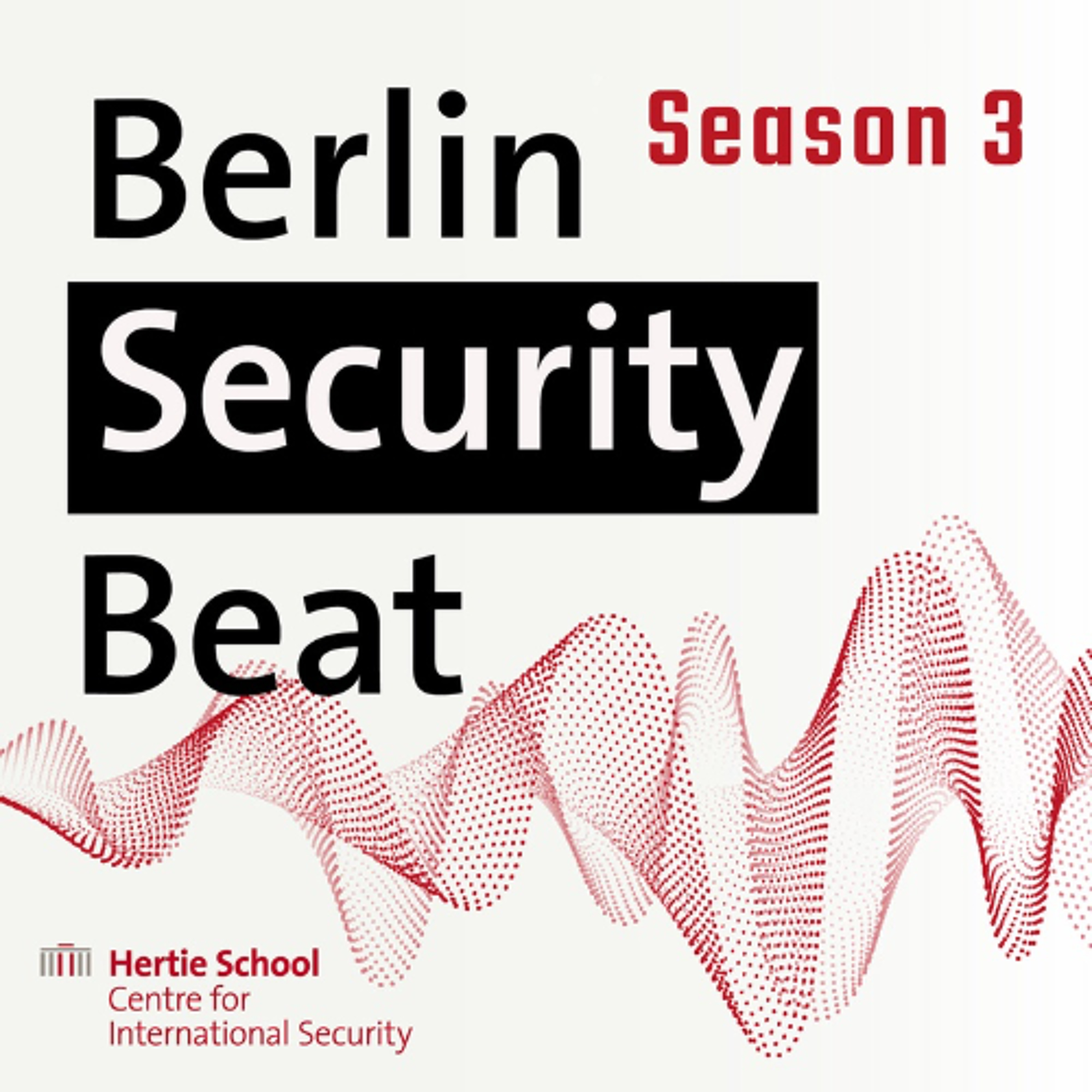 Hertie SchoolS3 Episode 06: On digital state repression with Anita GohdesIn this episode David Backovsky interviews with Anita Gohdes, Professor of International and Cyber Security at the Centre for International Security and the Hertie School. Anita has recently published, "Repression in the Digital Age: Surveillance, Censorship, and the Dynamics of State Violence" with Oxford University Press. They sat down to discuss what digital state repression looks like, how it operates, and how it complements traditional forms of violent state repression. Tune in to find out more!2025-06-2015 min
Hertie SchoolS3 Episode 06: On digital state repression with Anita GohdesIn this episode David Backovsky interviews with Anita Gohdes, Professor of International and Cyber Security at the Centre for International Security and the Hertie School. Anita has recently published, "Repression in the Digital Age: Surveillance, Censorship, and the Dynamics of State Violence" with Oxford University Press. They sat down to discuss what digital state repression looks like, how it operates, and how it complements traditional forms of violent state repression. Tune in to find out more!2025-06-2015 min Hertie SchoolS3 Episode 01: Entering Cyber Security with Kritika Roy & Finn HagemannIn the opening episode of the 3rd season, we interview two Hertie School alumni, Kritika Roy and Finn Hagemann on their transition to the industry, what their work in cybersecurity entails and what advice they'd have for newcomers on entering the industry. Tune in to find out more!2025-06-2018 min
Hertie SchoolS3 Episode 01: Entering Cyber Security with Kritika Roy & Finn HagemannIn the opening episode of the 3rd season, we interview two Hertie School alumni, Kritika Roy and Finn Hagemann on their transition to the industry, what their work in cybersecurity entails and what advice they'd have for newcomers on entering the industry. Tune in to find out more!2025-06-2018 min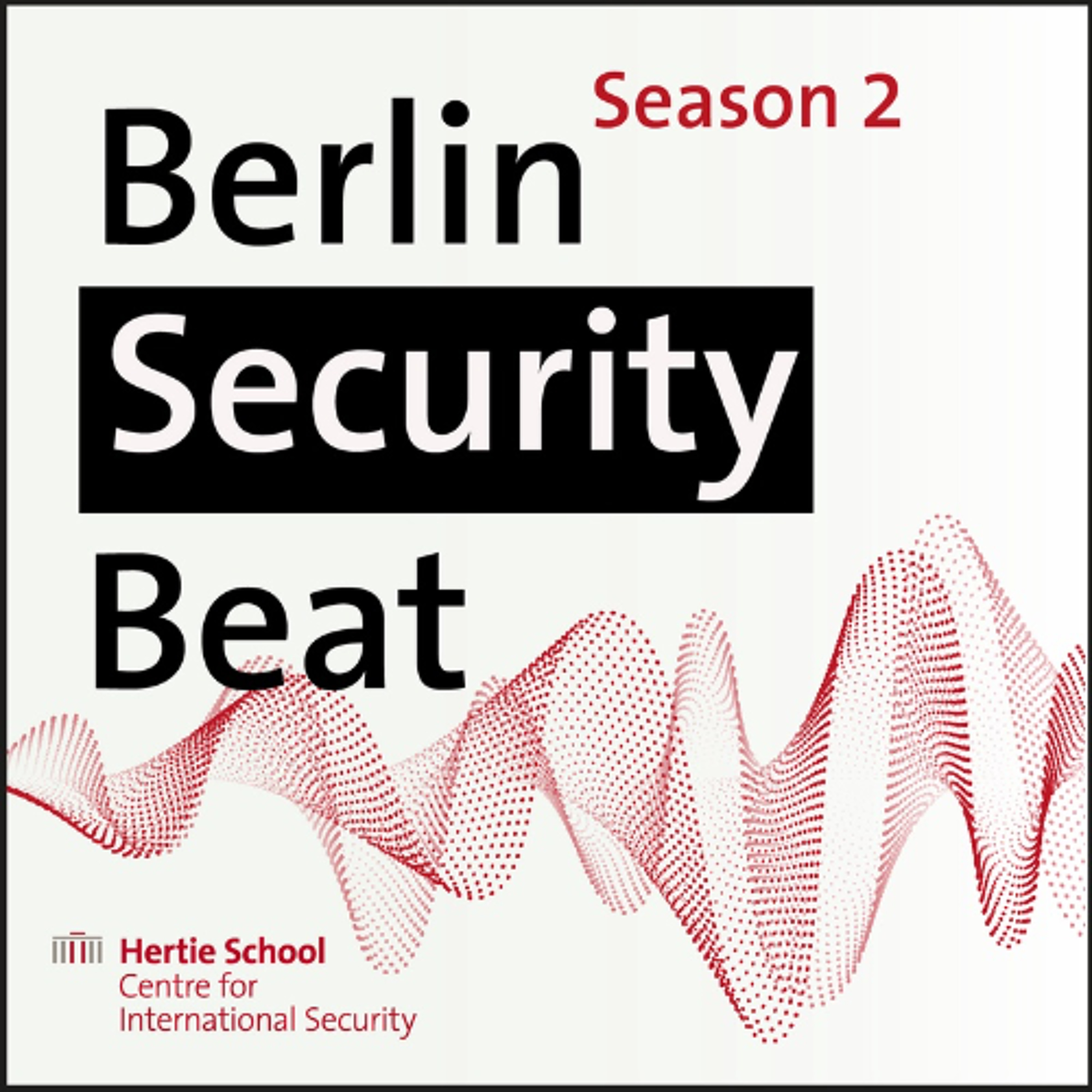 Hertie SchoolS2 Episode 02: Creating nuclear strategy with Brad RobertsIn this episode we speak with Brad Roberts, director of the Center for Global Security Research at Lawrence Livermore National Laboratory about what it takes to be part of the nuclear strategic community, his work for the Obama administration and some advice for future nuclear analysts.
For more information on the Center for Global Security Research, please visit: https://cgsr.llnl.gov/
For more information on the Centre for International Security visit: https://www.hertie-school.org/en/international-security2025-06-2024 min
Hertie SchoolS2 Episode 02: Creating nuclear strategy with Brad RobertsIn this episode we speak with Brad Roberts, director of the Center for Global Security Research at Lawrence Livermore National Laboratory about what it takes to be part of the nuclear strategic community, his work for the Obama administration and some advice for future nuclear analysts.
For more information on the Center for Global Security Research, please visit: https://cgsr.llnl.gov/
For more information on the Centre for International Security visit: https://www.hertie-school.org/en/international-security2025-06-2024 min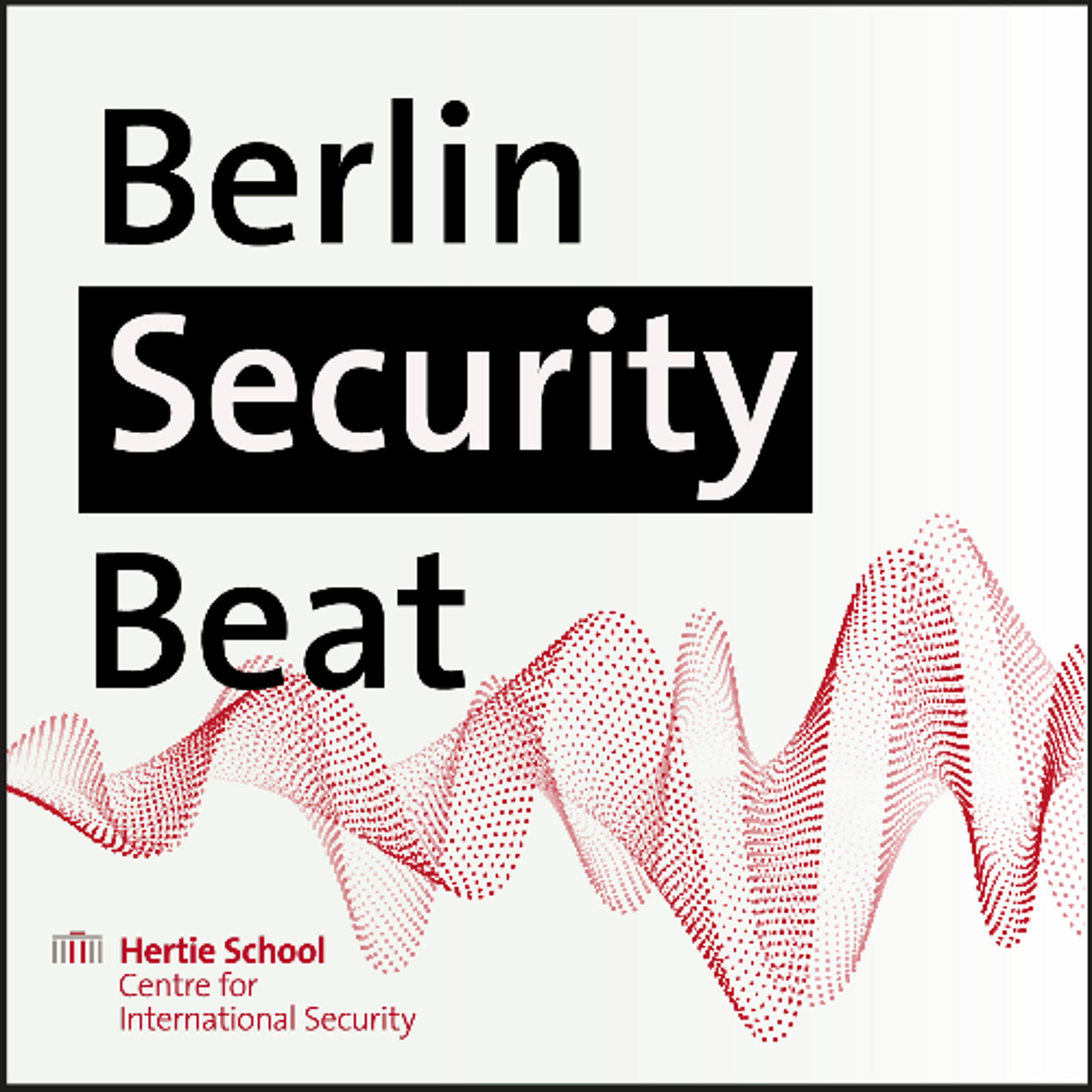 Hertie SchoolS1 Episode 13: “Sports and Autocrats”Dr. Christian Gläßel, postdoctoral researcher at the Centre for International Security at the Hertie School, and Dr. Adam Scharpf, incoming assistant professor at the Department of Political Science at the University of Copenhagen, both experts on authoritarian regimes, join Dr. Katharina Emschermann, Deputy Director at the Centre, to talk about “sportswashing”, i.e. the instrumentalization of sports, in light of the upcoming Olympic Games in Beijing and the FIFA World Cup in Qatar. They discuss:
• the scrutiny-publicity dilemma autocrats face when hosting international sports events,
• how the Argentine military junta disappeared and killed opponents before the 1978 World Cup,
• what the events o...2025-06-2022 min
Hertie SchoolS1 Episode 13: “Sports and Autocrats”Dr. Christian Gläßel, postdoctoral researcher at the Centre for International Security at the Hertie School, and Dr. Adam Scharpf, incoming assistant professor at the Department of Political Science at the University of Copenhagen, both experts on authoritarian regimes, join Dr. Katharina Emschermann, Deputy Director at the Centre, to talk about “sportswashing”, i.e. the instrumentalization of sports, in light of the upcoming Olympic Games in Beijing and the FIFA World Cup in Qatar. They discuss:
• the scrutiny-publicity dilemma autocrats face when hosting international sports events,
• how the Argentine military junta disappeared and killed opponents before the 1978 World Cup,
• what the events o...2025-06-2022 min Hertie SchoolS1 Episode 12: “Nobel Peace Prize Special: State Repression of Journalists”Anita Gohdes, Professor of International and Cyber Security at the Hertie School, and an expert on contentious politics in the cyber realm, joins Dr. Katharina Emschermann, Deputy Director at the Centre for International Security, to talk about journalist killings. They discuss:
- the conditions that put journalists in danger in institutional democracies,
- the instrumentalization of social media,
- the intersection between online and offline politics in the context of protests, and
- how to better protect journalists and freedom of expression.2025-06-2018 min
Hertie SchoolS1 Episode 12: “Nobel Peace Prize Special: State Repression of Journalists”Anita Gohdes, Professor of International and Cyber Security at the Hertie School, and an expert on contentious politics in the cyber realm, joins Dr. Katharina Emschermann, Deputy Director at the Centre for International Security, to talk about journalist killings. They discuss:
- the conditions that put journalists in danger in institutional democracies,
- the instrumentalization of social media,
- the intersection between online and offline politics in the context of protests, and
- how to better protect journalists and freedom of expression.2025-06-2018 min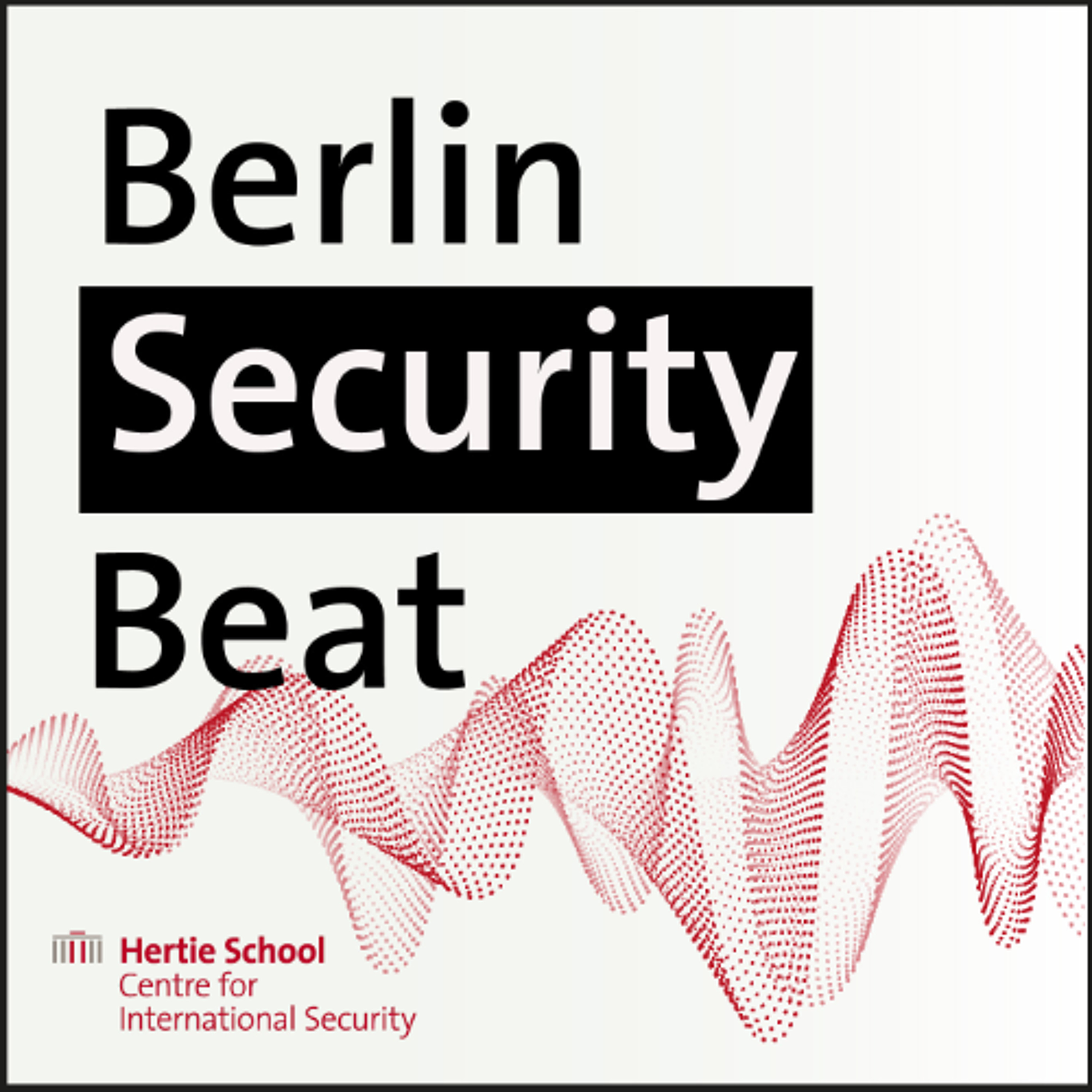 Hertie SchoolS1 Episode 11: “When Sanctions Do (Not) Work”Alistair Wellmann, a Practice Fellow at the Centre for International Security at the Hertie School, and an expert on sanctions implementation and effectiveness, joins Dr. Katharina Emschermann, Deputy Director at the Centre for International Security, to talk about sanctions. They discuss:
• why states impose sanctions,
• different sanction types,
• when sanctions work and when they don’t, and
• how to sharpen the tool.2025-06-2024 min
Hertie SchoolS1 Episode 11: “When Sanctions Do (Not) Work”Alistair Wellmann, a Practice Fellow at the Centre for International Security at the Hertie School, and an expert on sanctions implementation and effectiveness, joins Dr. Katharina Emschermann, Deputy Director at the Centre for International Security, to talk about sanctions. They discuss:
• why states impose sanctions,
• different sanction types,
• when sanctions work and when they don’t, and
• how to sharpen the tool.2025-06-2024 min Hertie SchoolS1 Episode 10: “20 Years of ‘War on Terror’”Julian Wucherpfennig, Professor of International Affairs and Security at the Hertie School, and an expert on ethnic civil war and terrorism, joins Dr. Katharina Emschermann, Deputy Director at the Centre for International Security, on the eve of the 20th anniversary of the 9/11 attacks to talk about terrorism. They discuss:
• what terrorists want,
• what went wrong in the so-called war on terror,
• the effects of domestic counter-terrorism measures, and
• the policy implications of terrorism research.2025-06-2024 min
Hertie SchoolS1 Episode 10: “20 Years of ‘War on Terror’”Julian Wucherpfennig, Professor of International Affairs and Security at the Hertie School, and an expert on ethnic civil war and terrorism, joins Dr. Katharina Emschermann, Deputy Director at the Centre for International Security, on the eve of the 20th anniversary of the 9/11 attacks to talk about terrorism. They discuss:
• what terrorists want,
• what went wrong in the so-called war on terror,
• the effects of domestic counter-terrorism measures, and
• the policy implications of terrorism research.2025-06-2024 min Hertie SchoolS1 Episode 09: “Nuclear Weapons, Then and Now”Marina Henke, Professor of International Relations at the Hertie School and Director of the Centre for International Security, an expert on nuclear security, military interventions and European defense policy, joins Dr. Katharina Emschermann, Deputy Director at the Centre for International Security, to talk about nuclear security. They discuss:
• the Centre’s newest research project “Understanding Nuclear Assurance,
Deterrence and Escalation in Europe”, funded by the Stanton Foundation,
• Marina Henke’s research into the psychology of limited nuclear war,
• nuclear weapons as signaling devices,
• strategic in-stability,
• arms control, and
• the controversy over nuclear sharing in Germany.2025-06-2021 min
Hertie SchoolS1 Episode 09: “Nuclear Weapons, Then and Now”Marina Henke, Professor of International Relations at the Hertie School and Director of the Centre for International Security, an expert on nuclear security, military interventions and European defense policy, joins Dr. Katharina Emschermann, Deputy Director at the Centre for International Security, to talk about nuclear security. They discuss:
• the Centre’s newest research project “Understanding Nuclear Assurance,
Deterrence and Escalation in Europe”, funded by the Stanton Foundation,
• Marina Henke’s research into the psychology of limited nuclear war,
• nuclear weapons as signaling devices,
• strategic in-stability,
• arms control, and
• the controversy over nuclear sharing in Germany.2025-06-2021 min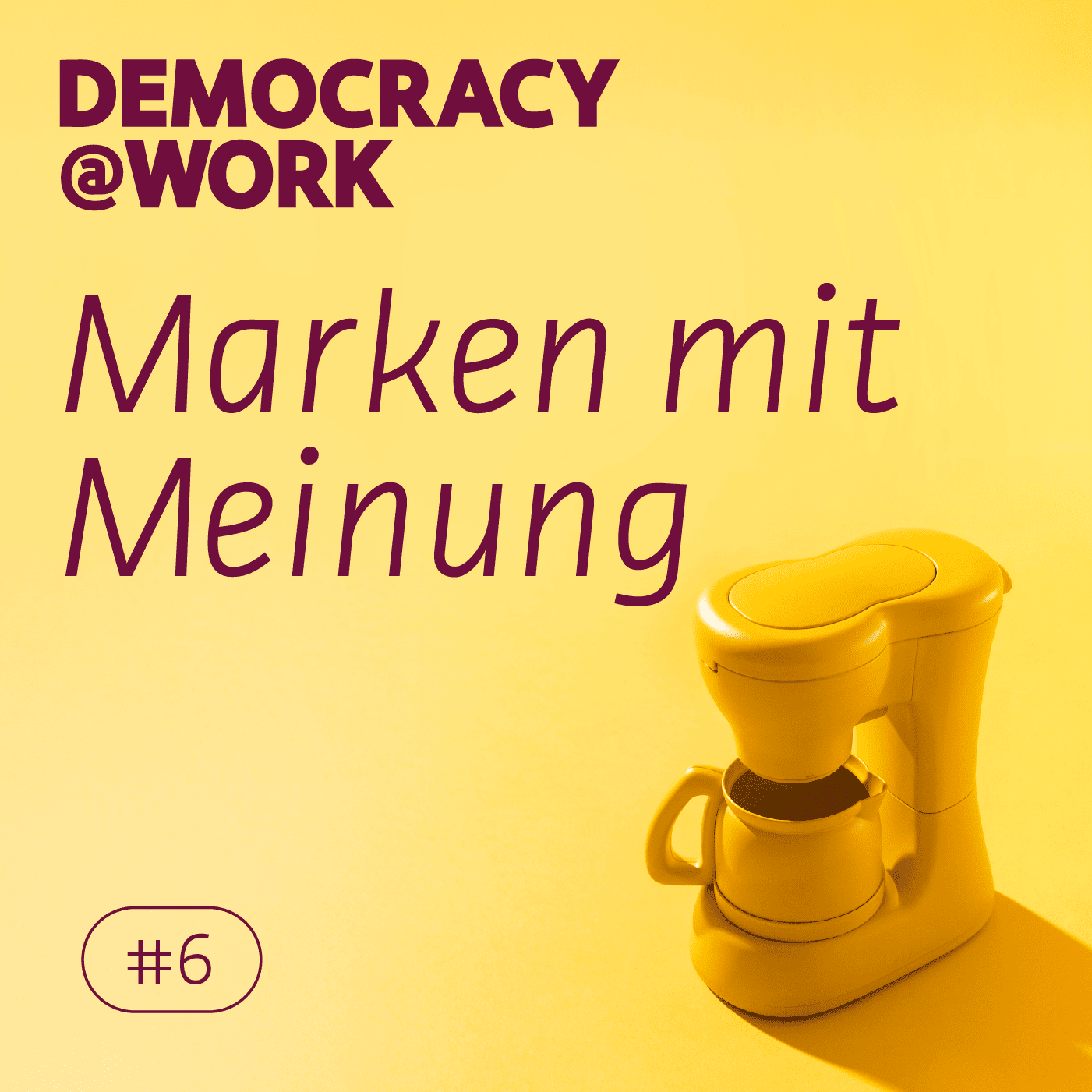 Democracy@WorkWie spricht man über Werte, Eva Christiansen?Wie kommunizieren Unternehmen ihre Haltung angemessen und warum ist das wichtig? Das erklärt Kommunikations- und Ex-Merkel-Beraterin Eva Christiansen im Interview.
Wie kommuniziert man als Unternehmen die eigene Haltung angemessen? Wo sollte man Meinung wagen und wo vielleicht nicht? Und welche Rollen spielen Führungspersonen und Mitarbeitende bei der Meinungsfindung und -äußerung? Diese Fragen stellen die Hosts Elisabeth Niejahr und Sophia Becker in dieser Folge an Eva Christiansen. Christiansen arbeitet bei FGS Global, einem Beratungsunternehmen mit Hauptsitz in New York. Vorher war sie Medienberaterin von Ex-Bundeskanzlerin Angela Merkel und hat unter anderem die Abteilung „Politische Planung, Innovation und Di...2025-04-1056 min
Democracy@WorkWie spricht man über Werte, Eva Christiansen?Wie kommunizieren Unternehmen ihre Haltung angemessen und warum ist das wichtig? Das erklärt Kommunikations- und Ex-Merkel-Beraterin Eva Christiansen im Interview.
Wie kommuniziert man als Unternehmen die eigene Haltung angemessen? Wo sollte man Meinung wagen und wo vielleicht nicht? Und welche Rollen spielen Führungspersonen und Mitarbeitende bei der Meinungsfindung und -äußerung? Diese Fragen stellen die Hosts Elisabeth Niejahr und Sophia Becker in dieser Folge an Eva Christiansen. Christiansen arbeitet bei FGS Global, einem Beratungsunternehmen mit Hauptsitz in New York. Vorher war sie Medienberaterin von Ex-Bundeskanzlerin Angela Merkel und hat unter anderem die Abteilung „Politische Planung, Innovation und Di...2025-04-1056 min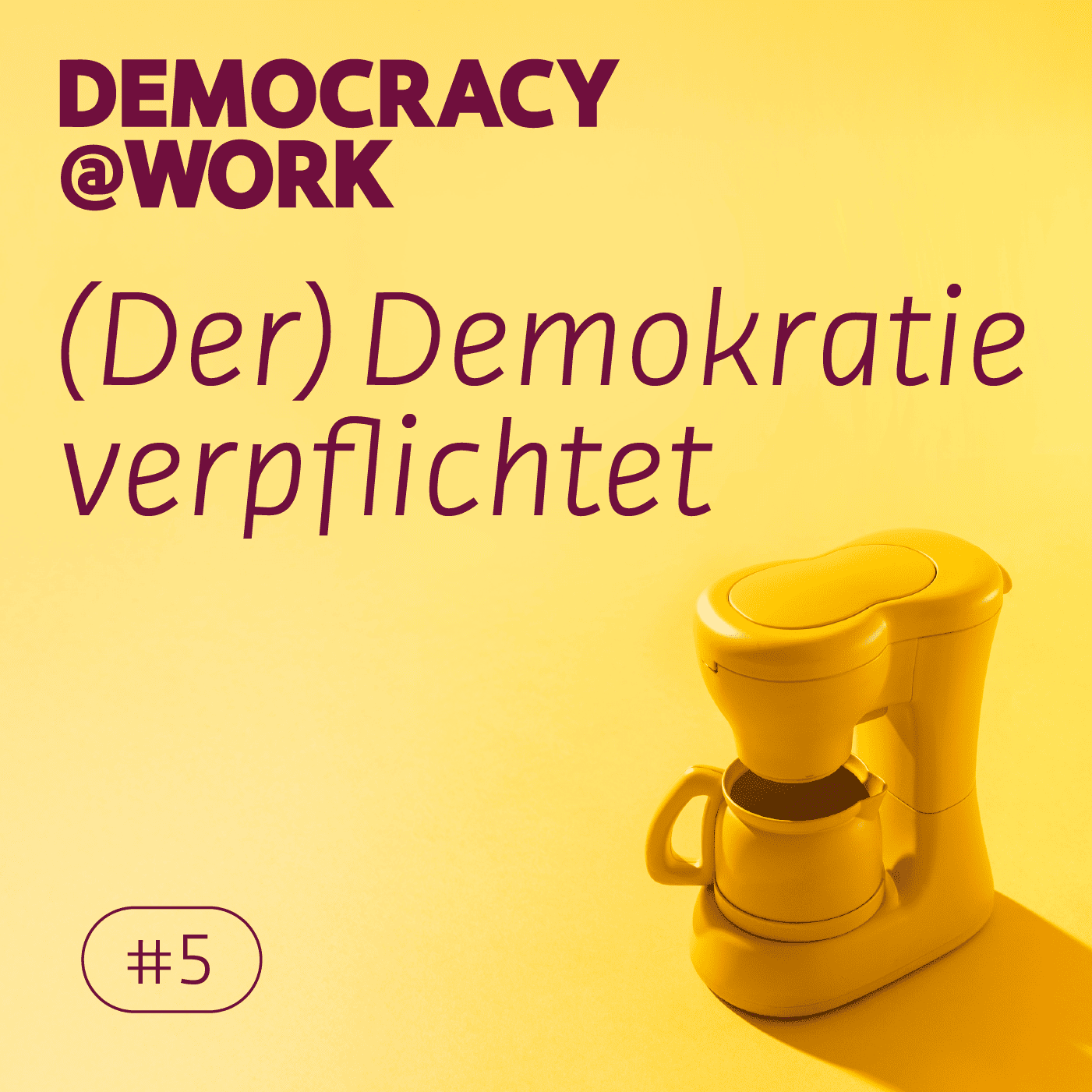 Democracy@WorkWarum ist Demokratie das Fundament von NOMOS Glashütte, Judith Borowski?So demokratisch tickt NOMOS: In dieser Folge erzählt Gesellschafterin Judith Borowski, weshalb das Unternehmen NOMOS Glashütte Demokratie schon früh zum Grundprinzip erklärt hat und wie es dieses noch heute mit Leben füllt.
Ein Jahr nach dem Mauerfall, 1990, wird NOMOS Glashütte im gleichnamigen Ort in Sachsen gegründet. Ohne Demokratie (und die Leidenschaft für Präzisionsuhren) gäbe es das Unternehmen also gar nicht, erzählt Gesellschafterin Judith Borowski. In dieser Folge von „Democracy@Work“ erklärt sie, wie NOMOS sein demokratisches Fundament seither wahrt und weiterentwickelt.
Zum Beispiel: Indem NOMOS Teil des Busines...2025-03-2154 min
Democracy@WorkWarum ist Demokratie das Fundament von NOMOS Glashütte, Judith Borowski?So demokratisch tickt NOMOS: In dieser Folge erzählt Gesellschafterin Judith Borowski, weshalb das Unternehmen NOMOS Glashütte Demokratie schon früh zum Grundprinzip erklärt hat und wie es dieses noch heute mit Leben füllt.
Ein Jahr nach dem Mauerfall, 1990, wird NOMOS Glashütte im gleichnamigen Ort in Sachsen gegründet. Ohne Demokratie (und die Leidenschaft für Präzisionsuhren) gäbe es das Unternehmen also gar nicht, erzählt Gesellschafterin Judith Borowski. In dieser Folge von „Democracy@Work“ erklärt sie, wie NOMOS sein demokratisches Fundament seither wahrt und weiterentwickelt.
Zum Beispiel: Indem NOMOS Teil des Busines...2025-03-2154 min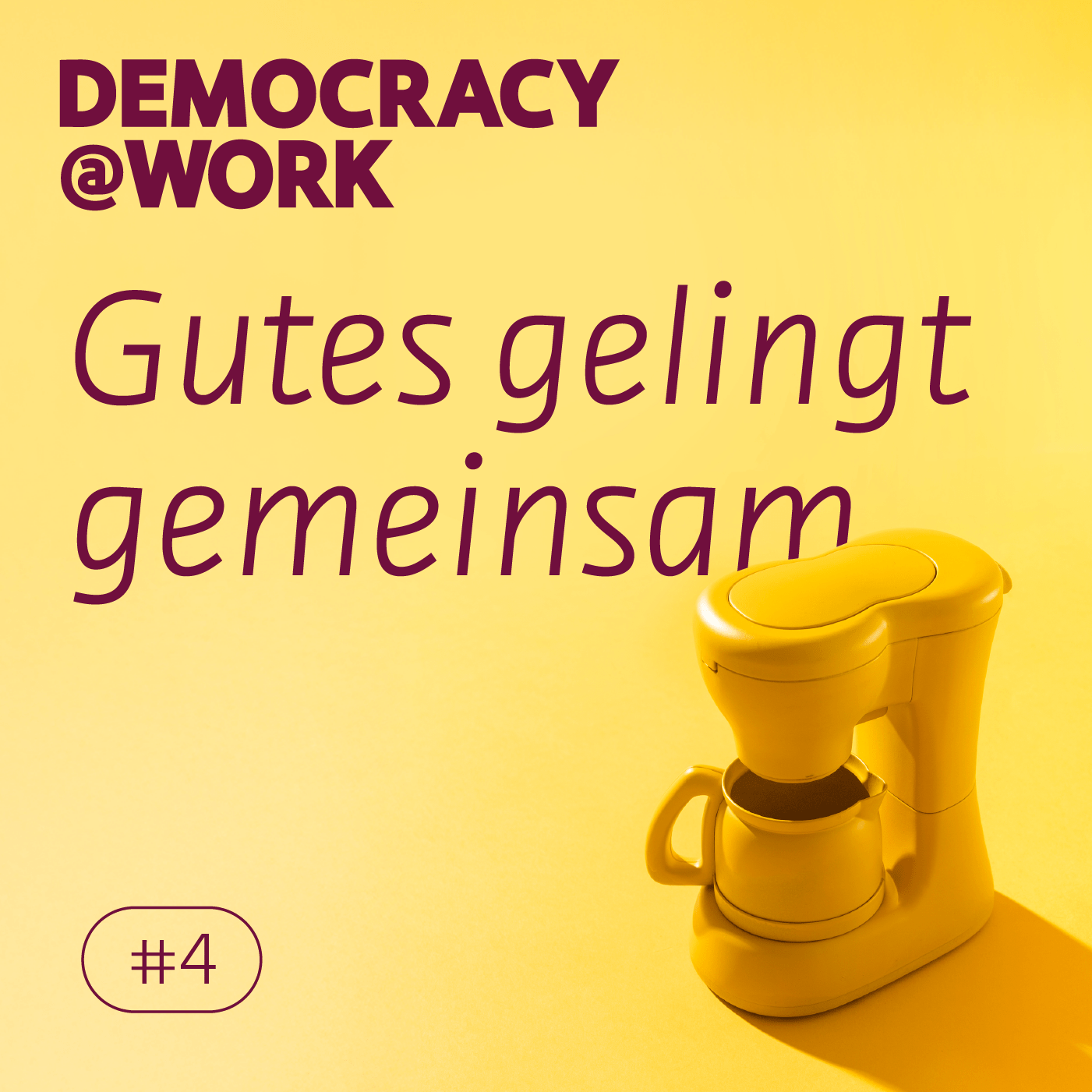 Democracy@WorkWie können Start-Ups die Demokratie stärken, Moritz Schlageter?Demokratie im eigenen Unternehmen stärken - wie wird aus Haltung Handlung? Der Managing Partner von torq.partners berichtet.
Anfang des Jahres 2024 sorgte die Correctiv-Recherche zum Treffen von hochrangigen AfD-Politikern, Rechtsextremen und Unternehmern für Massenproteste in ganz Deutschland. Auch bei Moritz Schlageter und seinem Team von torq.partners – einer Unternehmensberatung mit Fokus auf Finanzen und Personalfragen – löste sie einiges aus. Mitunter: den Wunsch, Demokratie im und mit dem eigenen Unternehmen zu stärken. In dieser Folge von „Democracy@Work“ berichtet Schlageter, welche Maßnahmen die Unternehmensberatung seither ergriffen hat, um diesen Wunsch Wirklichkeit werden zu lassen.
Außerdem erklärt...2025-03-0738 min
Democracy@WorkWie können Start-Ups die Demokratie stärken, Moritz Schlageter?Demokratie im eigenen Unternehmen stärken - wie wird aus Haltung Handlung? Der Managing Partner von torq.partners berichtet.
Anfang des Jahres 2024 sorgte die Correctiv-Recherche zum Treffen von hochrangigen AfD-Politikern, Rechtsextremen und Unternehmern für Massenproteste in ganz Deutschland. Auch bei Moritz Schlageter und seinem Team von torq.partners – einer Unternehmensberatung mit Fokus auf Finanzen und Personalfragen – löste sie einiges aus. Mitunter: den Wunsch, Demokratie im und mit dem eigenen Unternehmen zu stärken. In dieser Folge von „Democracy@Work“ berichtet Schlageter, welche Maßnahmen die Unternehmensberatung seither ergriffen hat, um diesen Wunsch Wirklichkeit werden zu lassen.
Außerdem erklärt...2025-03-0738 min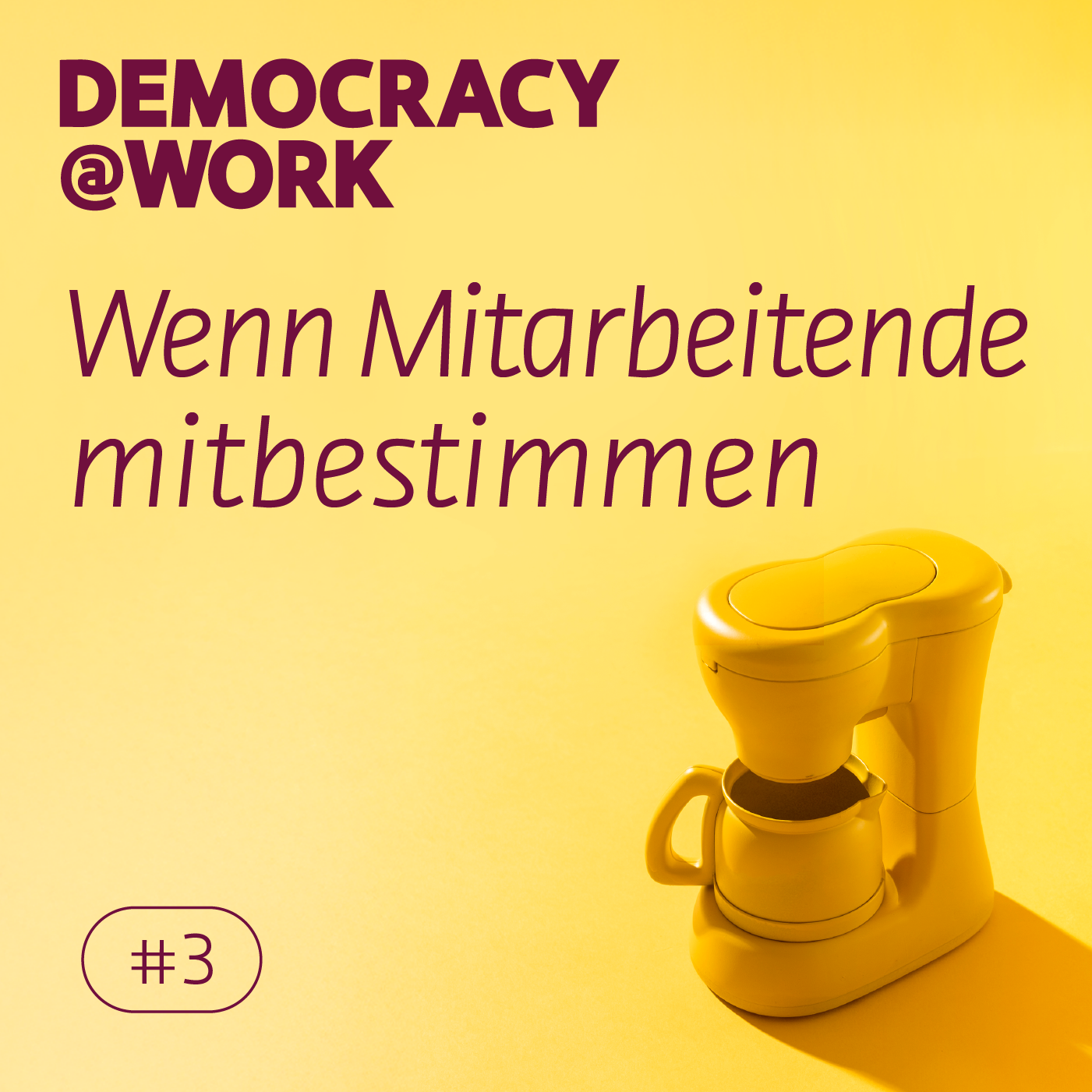 Democracy@WorkWarum gehört Demokratie zur Unternehmenskultur, Antje von Dewitz?Was passiert, wenn Mitarbeitende mitbestimmen, erklärt Antje von Dewitz, Geschäftsführerin von VAUDE.
Der Arbeitsplatz ist ein Ort der politischen und demokratischen Sozialisation. Hier werden Entscheidungen getroffen, Mitglieder des Betriebsrats gewählt, oder im Pausenraum Fragen diskutiert. Wie eine demokratische Unternehmenskultur aufgebaut, gelebt und weiterentwickelt wird, das erfahren wir in dieser Folge von „Democracy@Work“.
Die Hosts Elisabeth Niejahr und Sophia Becker sprechen dafür mit Antje von Dewitz, der Geschäftsführerin der Outdoormarke VAUDE. Das Unternehmen bezieht nach außen Stellung zu politischen Themen und arbeitet intern konsequent nach demokratischen Prinzipien.
Außerdem erl...2025-02-2142 min
Democracy@WorkWarum gehört Demokratie zur Unternehmenskultur, Antje von Dewitz?Was passiert, wenn Mitarbeitende mitbestimmen, erklärt Antje von Dewitz, Geschäftsführerin von VAUDE.
Der Arbeitsplatz ist ein Ort der politischen und demokratischen Sozialisation. Hier werden Entscheidungen getroffen, Mitglieder des Betriebsrats gewählt, oder im Pausenraum Fragen diskutiert. Wie eine demokratische Unternehmenskultur aufgebaut, gelebt und weiterentwickelt wird, das erfahren wir in dieser Folge von „Democracy@Work“.
Die Hosts Elisabeth Niejahr und Sophia Becker sprechen dafür mit Antje von Dewitz, der Geschäftsführerin der Outdoormarke VAUDE. Das Unternehmen bezieht nach außen Stellung zu politischen Themen und arbeitet intern konsequent nach demokratischen Prinzipien.
Außerdem erl...2025-02-2142 min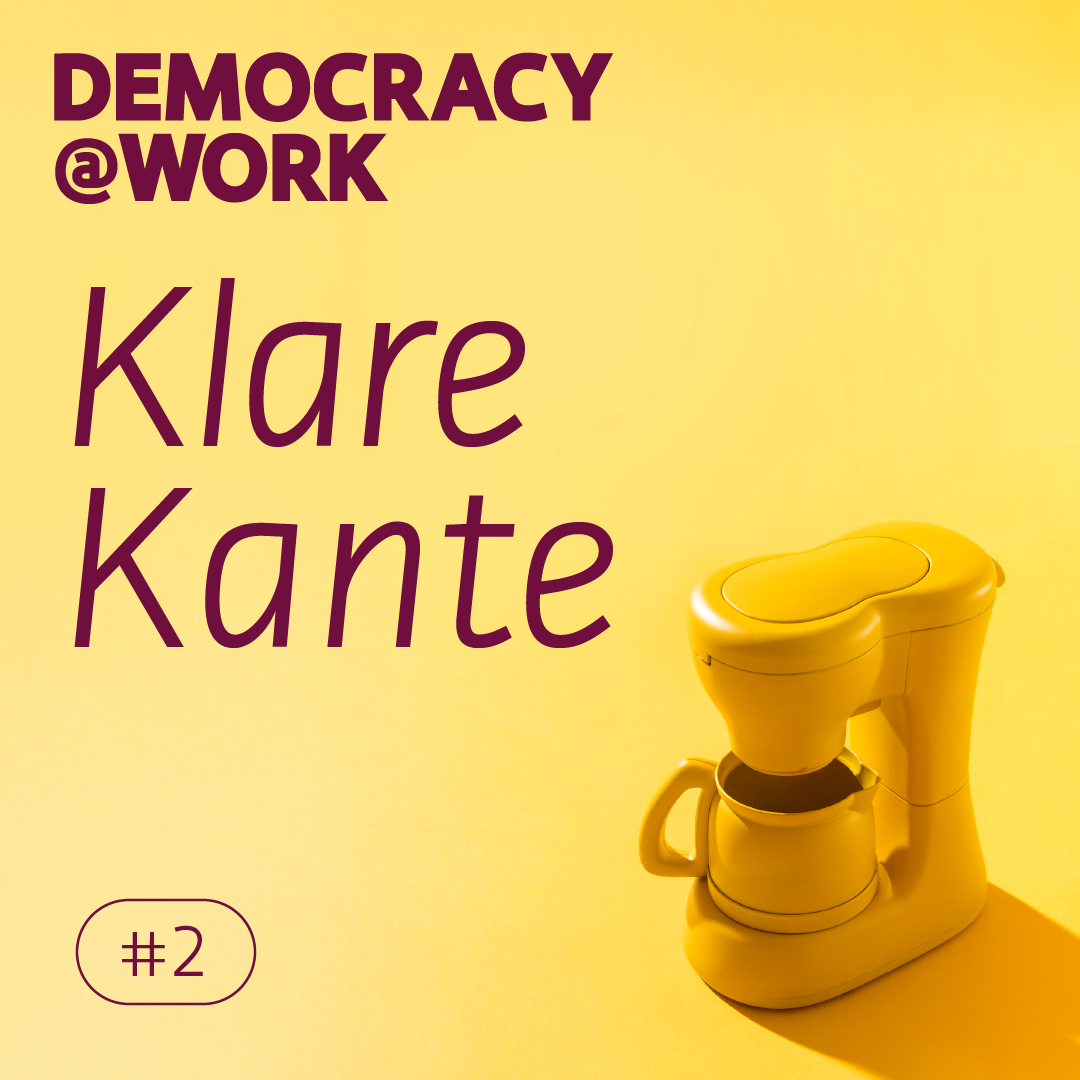 Democracy@WorkWie zeigt man Haltung, Christian Kullmann?Über Corporate Political Responsibilty und die Haltung von CEOs mit Christian Kullmann von Evonik
Unternehmerinnen und Unternehmer sollen ihr gesellschaftliches Engagement verstärken und der gesellschaftlichen Spaltung entgegenwirken – das wünschen sich die Befragten des 2023 veröffentlichten Edelman Trust Barometers. Wie Unternehmen und besonders ihre Führungspersonen das tun können, darum geht es in dieser Podcastfolge von „Democracy@Work“.
Wir sprechen zuerst mit Johannes Bohnen, Politologe und unter anderem Gründer von BOHNEN Public Affairs. Er erklärt, was es für Unternehmen und die Unternehmensführung bedeutet, Verantwortung zu tragen – also eine eigene „Corporate Political Responsibilty“ (kurz...2025-02-0750 min
Democracy@WorkWie zeigt man Haltung, Christian Kullmann?Über Corporate Political Responsibilty und die Haltung von CEOs mit Christian Kullmann von Evonik
Unternehmerinnen und Unternehmer sollen ihr gesellschaftliches Engagement verstärken und der gesellschaftlichen Spaltung entgegenwirken – das wünschen sich die Befragten des 2023 veröffentlichten Edelman Trust Barometers. Wie Unternehmen und besonders ihre Führungspersonen das tun können, darum geht es in dieser Podcastfolge von „Democracy@Work“.
Wir sprechen zuerst mit Johannes Bohnen, Politologe und unter anderem Gründer von BOHNEN Public Affairs. Er erklärt, was es für Unternehmen und die Unternehmensführung bedeutet, Verantwortung zu tragen – also eine eigene „Corporate Political Responsibilty“ (kurz...2025-02-0750 min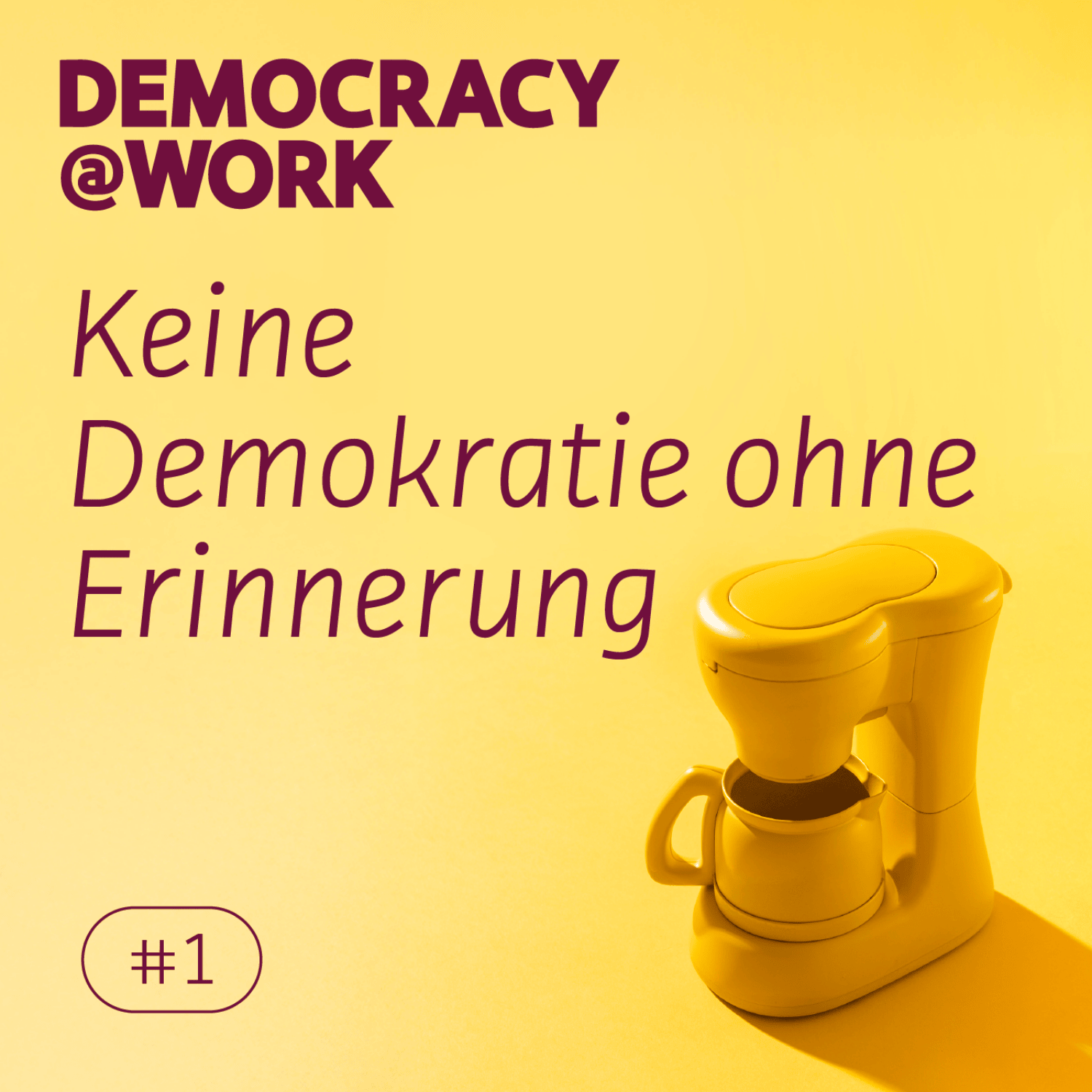 Democracy@WorkWie können Unternehmen aus ihrer Geschichte lernen, Matthias Berninger?Keine Demokratie ohne Erinnerung: Die Aufarbeitung der eigenen Unternehmensgeschichte
Nur knapp zwei Prozent der Unternehmen, die während der Zeit des Nationalsozialismus tätig waren, haben ihre Rolle und Geschichte aus dieser Epoche aufgearbeitet, wie eine Studie zeigt. Zu diesen wenigen Unternehmen zählt auch der Agrar- und Pharmakonzern Bayer AG. Für ihre Auseinandersetzung mit der eigenen Unternehmensgeschichte gründete die Bayer AG im Jahr 2023 die unabhängige Hans und Berthold Finkelstein Stiftung. Diese hat unter anderem das Ziel, die Erinnerungskultur innerhalb des Unternehmens zu stärken sowie Forschungs- und Erinnerungsprojekte zu den Verbrechen des Nationalsozialismus zu fördern un...2025-01-2448 min
Democracy@WorkWie können Unternehmen aus ihrer Geschichte lernen, Matthias Berninger?Keine Demokratie ohne Erinnerung: Die Aufarbeitung der eigenen Unternehmensgeschichte
Nur knapp zwei Prozent der Unternehmen, die während der Zeit des Nationalsozialismus tätig waren, haben ihre Rolle und Geschichte aus dieser Epoche aufgearbeitet, wie eine Studie zeigt. Zu diesen wenigen Unternehmen zählt auch der Agrar- und Pharmakonzern Bayer AG. Für ihre Auseinandersetzung mit der eigenen Unternehmensgeschichte gründete die Bayer AG im Jahr 2023 die unabhängige Hans und Berthold Finkelstein Stiftung. Diese hat unter anderem das Ziel, die Erinnerungskultur innerhalb des Unternehmens zu stärken sowie Forschungs- und Erinnerungsprojekte zu den Verbrechen des Nationalsozialismus zu fördern un...2025-01-2448 min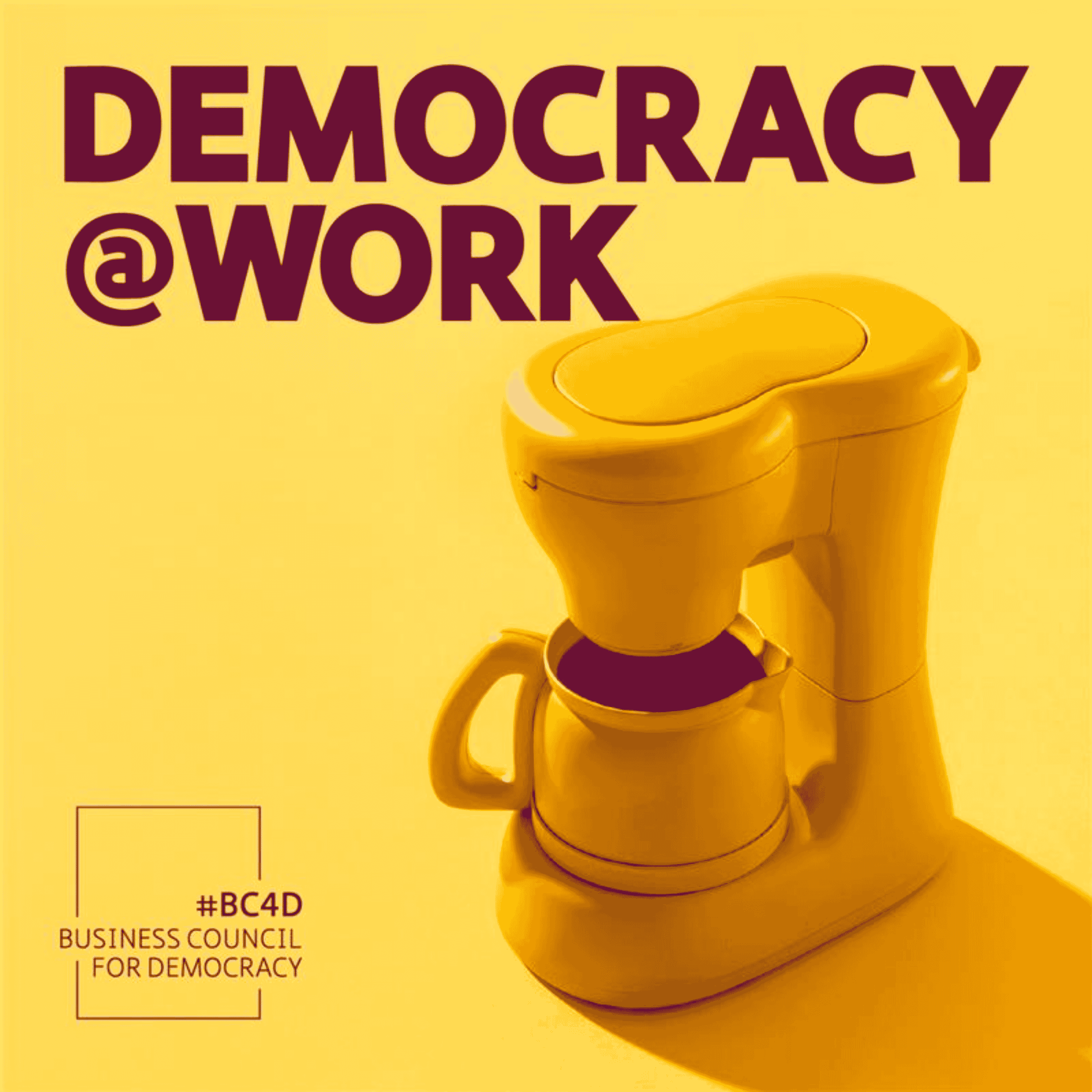 Democracy@WorkTrailer: Democracy@WorkDer neue Podcast des BC4D, dem Gemeinschaftsprojekt der gemeinnützigen Hertie-Stiftung, der Robert Bosch Stiftung und des Institute for Strategic Dialogue.
An der Kaffeemaschine im Büro kommen Menschen mit unterschiedlichsten. Meinungen und Hintergründen zusammen, um über Berufliches, Privates und Politik zu sprechen. Das macht Demokratie aus. Was passiert, wenn man die auch noch gezielt fördert? Wenn Unternehmen Räume und Möglichkeiten schaffen, in denen Demokratie aktiv gelebt und gestärkt wird? Genau darum geht es in diesem Podcast.
In sechs Folgen sprechen die beiden Hosts, Elisabeth Niejahr und Sophia Becker von der gemeinnü...2025-01-1702 min
Democracy@WorkTrailer: Democracy@WorkDer neue Podcast des BC4D, dem Gemeinschaftsprojekt der gemeinnützigen Hertie-Stiftung, der Robert Bosch Stiftung und des Institute for Strategic Dialogue.
An der Kaffeemaschine im Büro kommen Menschen mit unterschiedlichsten. Meinungen und Hintergründen zusammen, um über Berufliches, Privates und Politik zu sprechen. Das macht Demokratie aus. Was passiert, wenn man die auch noch gezielt fördert? Wenn Unternehmen Räume und Möglichkeiten schaffen, in denen Demokratie aktiv gelebt und gestärkt wird? Genau darum geht es in diesem Podcast.
In sechs Folgen sprechen die beiden Hosts, Elisabeth Niejahr und Sophia Becker von der gemeinnü...2025-01-1702 min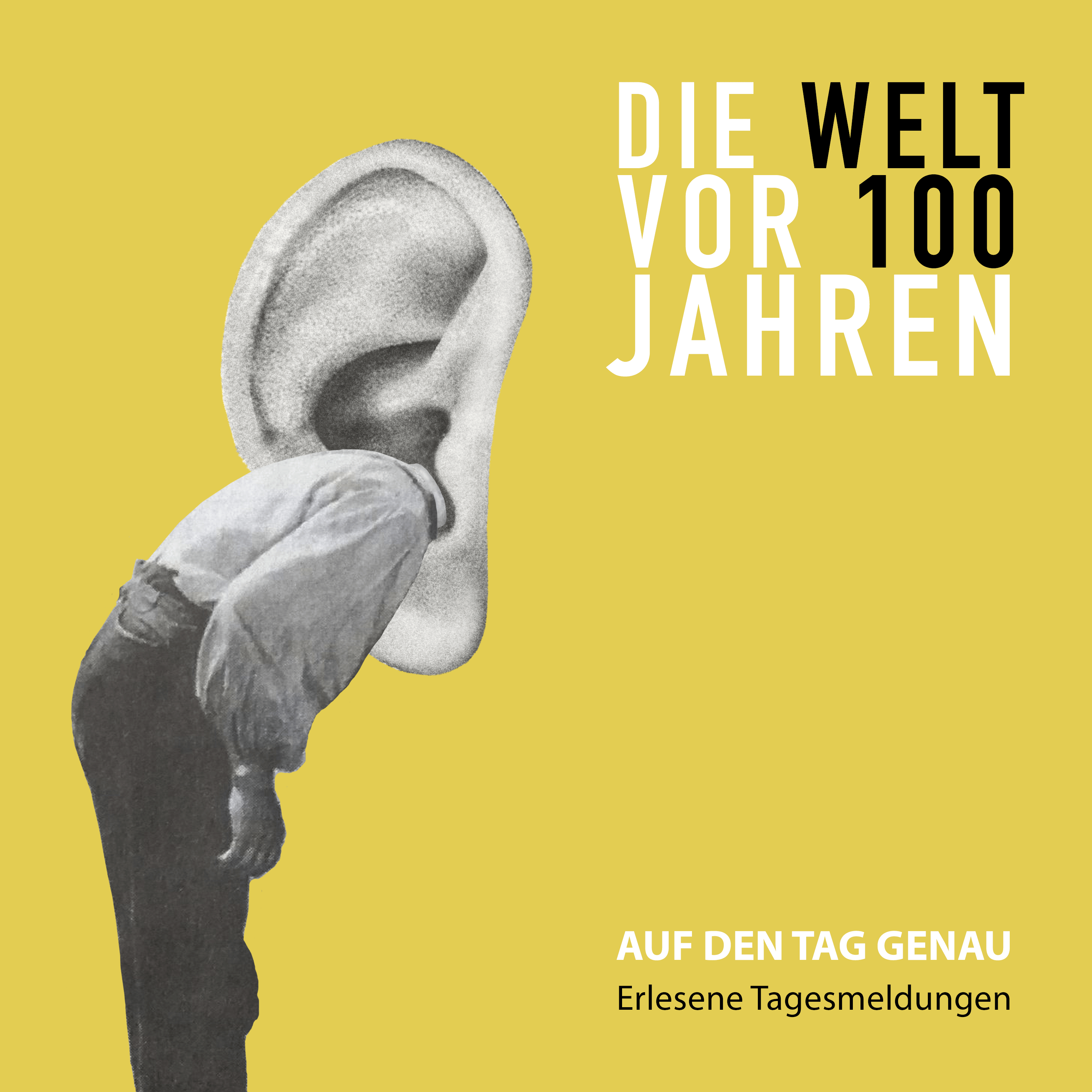 Auf den Tag genauZum Tode des Hertie-Gründers Oskar Tietz19. Januar 1923
Die Hertie Waren- und Kaufhaus GmbH war bis zur Übernahme durch Karstadt 1994 einer der führenden Konzerne in diesem Bereich in Deutschland. Ihr Name geht auf den des in Berlin auch heute noch geläufigen Posener Kaufmanns Hermann Tietz zurück, der mit seinem Kapital bei der Niederlassung des ersten gleichnamigen Warenhauses 1882 in Gera Pate stand. Als dessen eigentlicher Gründer und damit auch als Erfinder der Marke hat jedoch Hermanns Neffe Oskar Tietz zu gelten. Nach Filialbildungen in Weimar, Bamberg, München und Hamburg expandierte Hertie im Jahr 1900 schließlich auch in die Reichshauptstadt, wo man gemeinsam mit dem Hau...2023-01-1907 min
Auf den Tag genauZum Tode des Hertie-Gründers Oskar Tietz19. Januar 1923
Die Hertie Waren- und Kaufhaus GmbH war bis zur Übernahme durch Karstadt 1994 einer der führenden Konzerne in diesem Bereich in Deutschland. Ihr Name geht auf den des in Berlin auch heute noch geläufigen Posener Kaufmanns Hermann Tietz zurück, der mit seinem Kapital bei der Niederlassung des ersten gleichnamigen Warenhauses 1882 in Gera Pate stand. Als dessen eigentlicher Gründer und damit auch als Erfinder der Marke hat jedoch Hermanns Neffe Oskar Tietz zu gelten. Nach Filialbildungen in Weimar, Bamberg, München und Hamburg expandierte Hertie im Jahr 1900 schließlich auch in die Reichshauptstadt, wo man gemeinsam mit dem Hau...2023-01-1907 min Network CapitalCombining Data Science & Public Policy for Global Impact with Hertie School Professor Dr. Simon MunzertSimon Munzert is Professor of Data Science and Public Policy at the Hertie School and part of the Hertie School Data Science Lab. His research interests include opinion formation in the digital age, public opinion, and the use of online data in social research. He is the principal investigator of an international cooperation project funded by the VolkswagenStiftung entitled "Paying Attention to Attention: Media Exposure and Opinion Formation in an Age of Information Overload", and the recipient of a postdoctoral scholarship awarded by the Daimler and Benz Foundation. He received his Doctoral Degree in Political Science from the University o...2022-12-1228 min
Network CapitalCombining Data Science & Public Policy for Global Impact with Hertie School Professor Dr. Simon MunzertSimon Munzert is Professor of Data Science and Public Policy at the Hertie School and part of the Hertie School Data Science Lab. His research interests include opinion formation in the digital age, public opinion, and the use of online data in social research. He is the principal investigator of an international cooperation project funded by the VolkswagenStiftung entitled "Paying Attention to Attention: Media Exposure and Opinion Formation in an Age of Information Overload", and the recipient of a postdoctoral scholarship awarded by the Daimler and Benz Foundation. He received his Doctoral Degree in Political Science from the University o...2022-12-1228 min Network CapitalGlobal careers in International Relations & the Hertie School Experience with Dr. Shubha PrasadIn this podcast, we cover -
1. Dr. Prasad’s global career in International Relations and the importance of interdisciplinary thinking.
2. The Hertie School experience and pedagogy of discussion for a cohort of global students.
3. The art of debate and engaging with diverse ideas
Shubha Kamala Prasad is an Assistant Professor of International Relations at the Hertie School. Her research examines domestic sources of foreign policy, spanning substate conflict to diaspora mobilization. She was a Max Weber Postdoctoral Fellow at the European University Institute (2020-22), Fiesole, Italy. Shubha was awarded her PhD in Po...2022-11-1141 min
Network CapitalGlobal careers in International Relations & the Hertie School Experience with Dr. Shubha PrasadIn this podcast, we cover -
1. Dr. Prasad’s global career in International Relations and the importance of interdisciplinary thinking.
2. The Hertie School experience and pedagogy of discussion for a cohort of global students.
3. The art of debate and engaging with diverse ideas
Shubha Kamala Prasad is an Assistant Professor of International Relations at the Hertie School. Her research examines domestic sources of foreign policy, spanning substate conflict to diaspora mobilization. She was a Max Weber Postdoctoral Fellow at the European University Institute (2020-22), Fiesole, Italy. Shubha was awarded her PhD in Po...2022-11-1141 min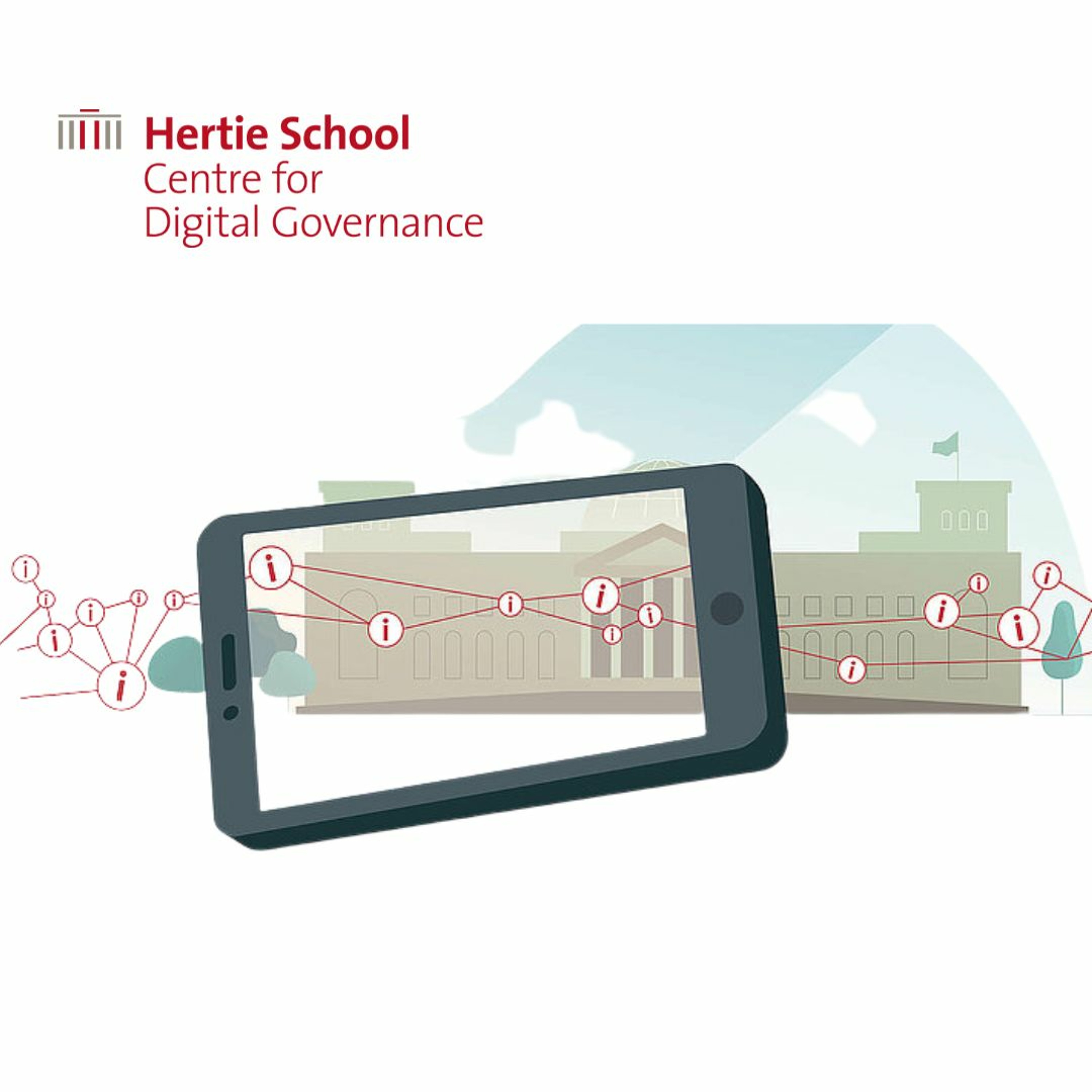 Hertie SchoolWhat does it take to be a digital transformation leader - in government and beyond?Listen to a discussion with Siim Sikkut, former government CIO of Estonia, about his new book 'Digital Government Excellence: Lessons from Effective Digital Leaders'. The event took place on September 23 at the Hertie School and was moderated by Luciana Cingolani with an introduction by Gerhard Hammerschmid.2022-10-131h 01
Hertie SchoolWhat does it take to be a digital transformation leader - in government and beyond?Listen to a discussion with Siim Sikkut, former government CIO of Estonia, about his new book 'Digital Government Excellence: Lessons from Effective Digital Leaders'. The event took place on September 23 at the Hertie School and was moderated by Luciana Cingolani with an introduction by Gerhard Hammerschmid.2022-10-131h 01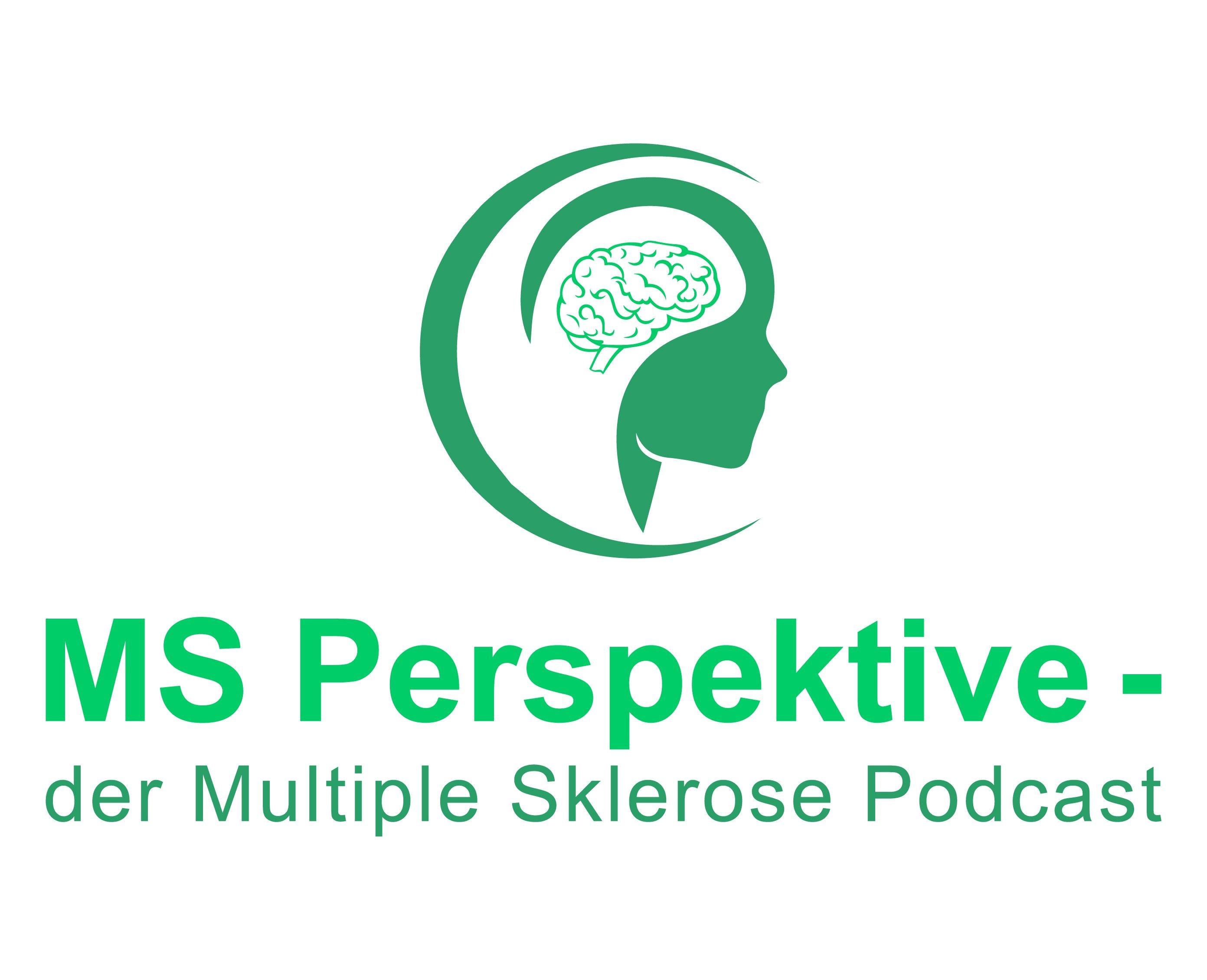 MS-Perspektive - der Multiple Sklerose Podcast#151: Interview mit Dr. Eva Koch zum finanziellen Engagement der Gemeinnützige Hertie-Stiftung für Menschen mit MS Dr. Eva Koch, zuständig für den Bereich Gehirn erforschen, gibt einen Einblick in das Wirken der Hertie-Stiftung zugunsten von MS-Betroffenen. Heute begrüße ich Dr. med. Eva Koch als Interviewgast. Sie arbeitet für die Gemeinnützige Hertie-Stiftung als Leiterin der Multiple-Sklerose-Projekte im Bereich Gehirn erforschen. Seit 1974 unterstützt die Hertie-Stiftung Projekte rund um das Thema Multiple Sklerose und hat bisher rund 70 Millionen Euro dafür ausgegeben. Dennoch habe ich erst vor wenigen Jahren von der Hertie-Stiftung erfahren und da ich bestimmt nicht die Einzige bin, möchte ich mit diesem Beitrag zu mehr Sichtbarkeit und Wertschätzung beitr...2022-08-0147 min
MS-Perspektive - der Multiple Sklerose Podcast#151: Interview mit Dr. Eva Koch zum finanziellen Engagement der Gemeinnützige Hertie-Stiftung für Menschen mit MS Dr. Eva Koch, zuständig für den Bereich Gehirn erforschen, gibt einen Einblick in das Wirken der Hertie-Stiftung zugunsten von MS-Betroffenen. Heute begrüße ich Dr. med. Eva Koch als Interviewgast. Sie arbeitet für die Gemeinnützige Hertie-Stiftung als Leiterin der Multiple-Sklerose-Projekte im Bereich Gehirn erforschen. Seit 1974 unterstützt die Hertie-Stiftung Projekte rund um das Thema Multiple Sklerose und hat bisher rund 70 Millionen Euro dafür ausgegeben. Dennoch habe ich erst vor wenigen Jahren von der Hertie-Stiftung erfahren und da ich bestimmt nicht die Einzige bin, möchte ich mit diesem Beitrag zu mehr Sichtbarkeit und Wertschätzung beitr...2022-08-0147 min Die PolitikerinnenSpezial #3, Dr. Sabine Rödel (Bürgermeisterin) und Hannah Beitzer (Hertie-Stiftung): Frauen in der KommunalpolitikWie Frauen die Politik von morgen gestalten
Seit vier Jahren ist Dr. Sabine Rödel in Bad Hindelang im Allgäu Bürgermeisterin. Als Quereinsteigerin – sie war zuvor als Steuerberaterin tätig – möchte die 54-Jährige die Verwaltung mit Sachkenntnis führen und möglichst viee Bürger*innen an der Politik beteiligen. Am Rande des Demokratie-Kongresses der Gemeinnützigen Hertie-Stiftung Anfang Juli habe ich mit ihr und Hannah Beitzer, Leiterin des Ghst-Projekts "Jugend Entscheidet" über Frauen in der Kommunalpolitik gesprochen: Welche Herausforderungen gibt es für Bürgermeisterinnen? Wo haben sie Vorteile? Wie netzwerken sie? Und was können Parteien t...2022-07-2237 min
Die PolitikerinnenSpezial #3, Dr. Sabine Rödel (Bürgermeisterin) und Hannah Beitzer (Hertie-Stiftung): Frauen in der KommunalpolitikWie Frauen die Politik von morgen gestalten
Seit vier Jahren ist Dr. Sabine Rödel in Bad Hindelang im Allgäu Bürgermeisterin. Als Quereinsteigerin – sie war zuvor als Steuerberaterin tätig – möchte die 54-Jährige die Verwaltung mit Sachkenntnis führen und möglichst viee Bürger*innen an der Politik beteiligen. Am Rande des Demokratie-Kongresses der Gemeinnützigen Hertie-Stiftung Anfang Juli habe ich mit ihr und Hannah Beitzer, Leiterin des Ghst-Projekts "Jugend Entscheidet" über Frauen in der Kommunalpolitik gesprochen: Welche Herausforderungen gibt es für Bürgermeisterinnen? Wo haben sie Vorteile? Wie netzwerken sie? Und was können Parteien t...2022-07-2237 min Berlin Security BeatEpisode 13: “Sports and Autocrats”
Dr. Christian Gläßel, postdoctoral researcher at the Centre for International Security at the Hertie School, and Dr. Adam Scharpf, incoming assistant professor at the Department of Political Science at the University of Copenhagen, both experts on authoritarian regimes, join Dr. Katharina Emschermann, Deputy Director at the Centre, to talk about “sportswashing”, i.e. the instrumentalization of sports, in light of the upcoming Olympic Games in Beijing and the FIFA World Cup in Qatar. They discuss:
the scrutiny-publicity dilemma autocrats face when hosting international sports events,
how the Argentine military junta disappeared and killed opponents before the 1978 World Cup,
w...2022-02-0222 min
Berlin Security BeatEpisode 13: “Sports and Autocrats”
Dr. Christian Gläßel, postdoctoral researcher at the Centre for International Security at the Hertie School, and Dr. Adam Scharpf, incoming assistant professor at the Department of Political Science at the University of Copenhagen, both experts on authoritarian regimes, join Dr. Katharina Emschermann, Deputy Director at the Centre, to talk about “sportswashing”, i.e. the instrumentalization of sports, in light of the upcoming Olympic Games in Beijing and the FIFA World Cup in Qatar. They discuss:
the scrutiny-publicity dilemma autocrats face when hosting international sports events,
how the Argentine military junta disappeared and killed opponents before the 1978 World Cup,
w...2022-02-0222 min Berlin Security BeatEpisode 12: “Nobel Peace Prize Special: State Repression of Journalists”
Anita Gohdes, Professor of International and Cyber Security at the Hertie School, and an expert on contentious politics in the cyber realm, joins Dr. Katharina Emschermann, Deputy Director at the Centre for International Security, to talk about journalist killings. They discuss:
the conditions that put journalists in danger in institutional democracies,
the instrumentalization of social media,
the intersection between online and offline politics in the context of protests, and
how to better protect journalists and freedom of expression.
Bibliography
Aguilar Jr., Filomeno V./ Mendoza, Meynardo P./ Candelaria, Anne Lan K. (2014): Keeping the State at Bay...2021-12-0918 min
Berlin Security BeatEpisode 12: “Nobel Peace Prize Special: State Repression of Journalists”
Anita Gohdes, Professor of International and Cyber Security at the Hertie School, and an expert on contentious politics in the cyber realm, joins Dr. Katharina Emschermann, Deputy Director at the Centre for International Security, to talk about journalist killings. They discuss:
the conditions that put journalists in danger in institutional democracies,
the instrumentalization of social media,
the intersection between online and offline politics in the context of protests, and
how to better protect journalists and freedom of expression.
Bibliography
Aguilar Jr., Filomeno V./ Mendoza, Meynardo P./ Candelaria, Anne Lan K. (2014): Keeping the State at Bay...2021-12-0918 min Berlin Security BeatEpisode 11: “When Sanctions Do (Not) Work”
Alistair Wellmann, a Practice Fellow at the Centre for International Security at the Hertie School, and an expert on sanctions implementation and effectiveness, joins Dr. Katharina Emschermann, Deputy Director at the Centre for International Security, to talk about sanctions. They discuss:
why states impose sanctions,
different sanction types,
when sanctions work and when they don’t, and
how to sharpen the tool.
Bibliography
Clifton, Morgan T./ Bapat, Navin/ Kobayashi, Yoshiharu (2014): Threat and Imposition of Economic Sanctions 1945–2005: Updating the TIES Dataset, in: Conflict Management and Peace Science, 31:5, 541–58, http://www.jstor.org/stable/26271378
Felbermayr Gabriel J./ Syropoulos, Consta...2021-11-2924 min
Berlin Security BeatEpisode 11: “When Sanctions Do (Not) Work”
Alistair Wellmann, a Practice Fellow at the Centre for International Security at the Hertie School, and an expert on sanctions implementation and effectiveness, joins Dr. Katharina Emschermann, Deputy Director at the Centre for International Security, to talk about sanctions. They discuss:
why states impose sanctions,
different sanction types,
when sanctions work and when they don’t, and
how to sharpen the tool.
Bibliography
Clifton, Morgan T./ Bapat, Navin/ Kobayashi, Yoshiharu (2014): Threat and Imposition of Economic Sanctions 1945–2005: Updating the TIES Dataset, in: Conflict Management and Peace Science, 31:5, 541–58, http://www.jstor.org/stable/26271378
Felbermayr Gabriel J./ Syropoulos, Consta...2021-11-2924 min Hertie SchoolChallenges in International Security: The limits of our understanding of cyber warfareScholars have become more interested in secret statecraft in global
politics, especially in its digital manifestations. Unfortunately, the
self-hiding nature of the phenomena make them hard to study.
Jon Lindsay, Associate Professor at the School of Cybersecurity and Privacy and Sam Nunn School of International Affairs at the Georgia Institute of Technology, points out that this is true in spades of the seminal case of Stuxnet, which has had more influence on our understanding of cyber warfare than cyber warfare ever had on Iranian enrichment. A decade on, new information and subsequent events provide additional context, but this unusual case...2021-11-1045 min
Hertie SchoolChallenges in International Security: The limits of our understanding of cyber warfareScholars have become more interested in secret statecraft in global
politics, especially in its digital manifestations. Unfortunately, the
self-hiding nature of the phenomena make them hard to study.
Jon Lindsay, Associate Professor at the School of Cybersecurity and Privacy and Sam Nunn School of International Affairs at the Georgia Institute of Technology, points out that this is true in spades of the seminal case of Stuxnet, which has had more influence on our understanding of cyber warfare than cyber warfare ever had on Iranian enrichment. A decade on, new information and subsequent events provide additional context, but this unusual case...2021-11-1045 min Berlin Security BeatEpisode 10: “20 Years of ‘War on Terror’”
Julian Wucherpfennig, Professor of International Affairs and Security at the Hertie School, and an expert on ethnic civil war and terrorism, joins Dr. Katharina Emschermann, Deputy Director at the Centre for International Security, on the eve of the 20th anniversary of the 9/11 attacks to talk about terrorism. They discuss:
• what terrorists want,
• what went wrong in the so-called war on terror,
• the effects of domestic counter-terrorism measures, and
• the policy implications of terrorism research.
Bibliography
Bapat, Navin A. (2019): Monsters to Destroy: Understanding the War on Terror, Oxford University Press, https://oxford.universitypressscholarship.com/view/10.1093/oso/9780190061456.001.0001/oso-9780...2021-09-1024 min
Berlin Security BeatEpisode 10: “20 Years of ‘War on Terror’”
Julian Wucherpfennig, Professor of International Affairs and Security at the Hertie School, and an expert on ethnic civil war and terrorism, joins Dr. Katharina Emschermann, Deputy Director at the Centre for International Security, on the eve of the 20th anniversary of the 9/11 attacks to talk about terrorism. They discuss:
• what terrorists want,
• what went wrong in the so-called war on terror,
• the effects of domestic counter-terrorism measures, and
• the policy implications of terrorism research.
Bibliography
Bapat, Navin A. (2019): Monsters to Destroy: Understanding the War on Terror, Oxford University Press, https://oxford.universitypressscholarship.com/view/10.1093/oso/9780190061456.001.0001/oso-9780...2021-09-1024 min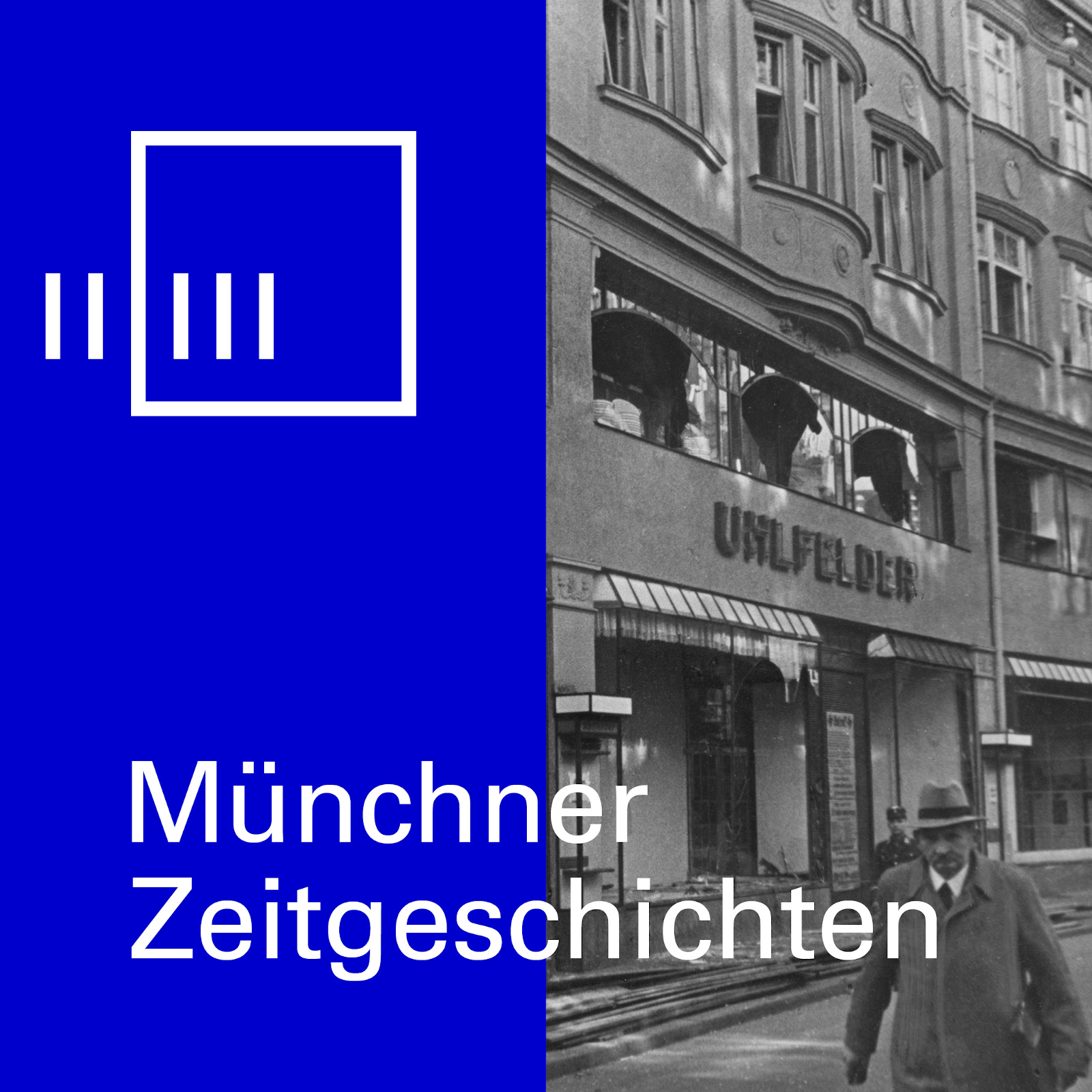 Münchner Zeitgeschichten‚Arisierung‘: Ohne Ende Hertie - aus Hermann Tietz wird Hertie
Das Warenhaus Tietz wurde 1904/05 am Hauptbahnhof errichtet. 1933 wurde ein „arischer“ Geschäftsführer eingesetzt und der Name in Hertie (Abkürzung für Hermann Tietz) geändert, da der jüdische Name Tietz nicht mehr geführt werden sollte. Die Familie Tietz emigrierte in die USA. Heute steht am Bahnhofplatz 7 das Kaufhaus Karstadt.
Anfang des Jahres 1938 existierten in München etwa 1.700 Geschäfte und andere Gewerbebetriebe mit jüdischen Besitzer*innen. Schon seit der Machtübernahme der Nationalsozialisten 1933 sahen sich diese Geschäftsleute dem Boykott ihrer Betriebe ausgesetzt. Ab 1938 wurden sie durch zahlreiche antisemitische Gesetze und Verordnungen systematisch aus dem Wirtschaftsleben...2021-08-3007 min
Münchner Zeitgeschichten‚Arisierung‘: Ohne Ende Hertie - aus Hermann Tietz wird Hertie
Das Warenhaus Tietz wurde 1904/05 am Hauptbahnhof errichtet. 1933 wurde ein „arischer“ Geschäftsführer eingesetzt und der Name in Hertie (Abkürzung für Hermann Tietz) geändert, da der jüdische Name Tietz nicht mehr geführt werden sollte. Die Familie Tietz emigrierte in die USA. Heute steht am Bahnhofplatz 7 das Kaufhaus Karstadt.
Anfang des Jahres 1938 existierten in München etwa 1.700 Geschäfte und andere Gewerbebetriebe mit jüdischen Besitzer*innen. Schon seit der Machtübernahme der Nationalsozialisten 1933 sahen sich diese Geschäftsleute dem Boykott ihrer Betriebe ausgesetzt. Ab 1938 wurden sie durch zahlreiche antisemitische Gesetze und Verordnungen systematisch aus dem Wirtschaftsleben...2021-08-3007 min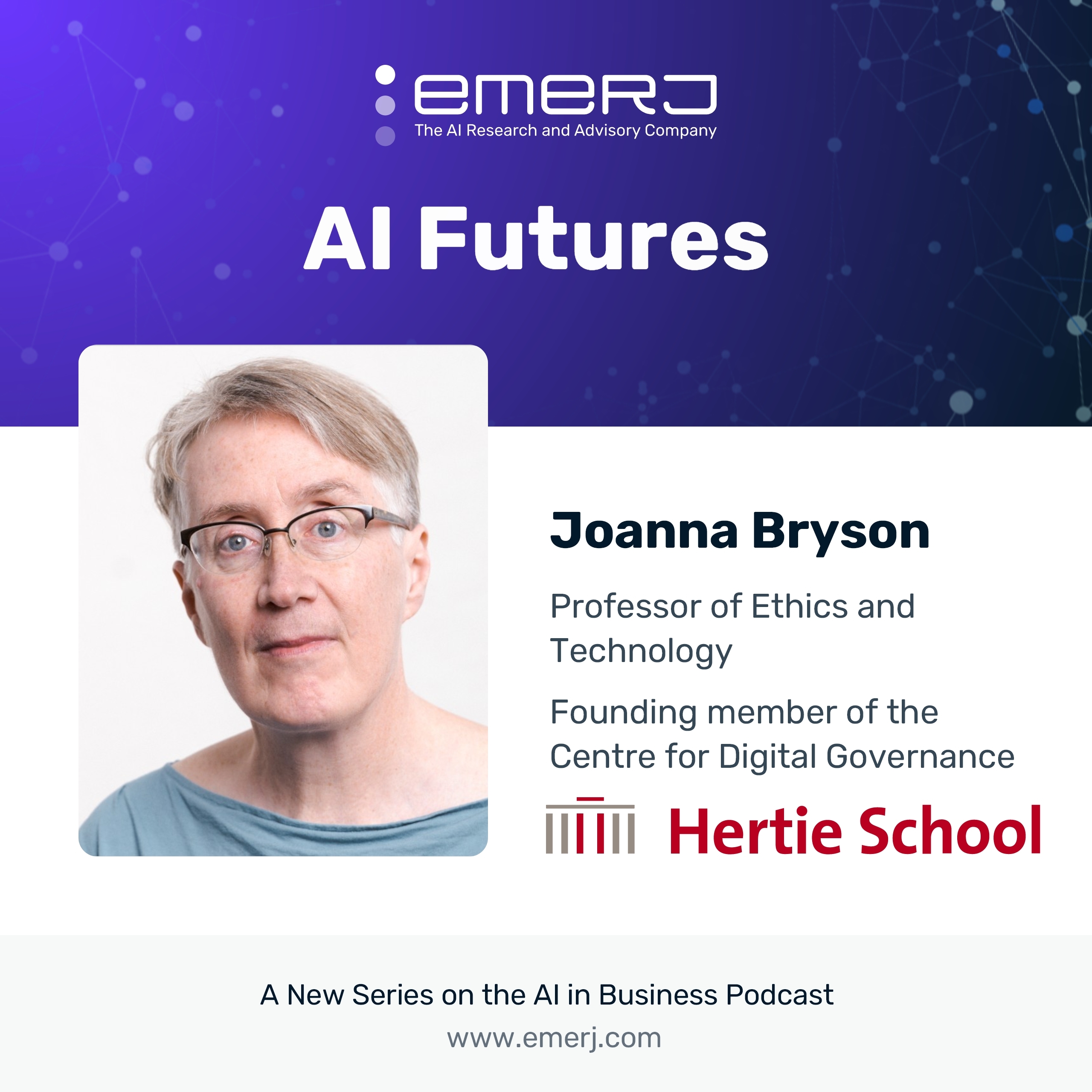 The AI in Business Podcast[AI Futures - S2E6] The Future of Security and Privacy in an AI-Enabled World - with Dr. Joanna Bryson of the Hertie SchoolToday’s guest is Dr. Joanna Bryson, Professor of Ethics and Technology at the Hertie School in Berlin. Previously a faculty member of the Computer Science department at the University of Bath, Joanna was one of nine experts nominated by Germany to the Global Partnership for Artificial Intelligence. Today, Joanna speaks about some of the business applications and implications of AI with specific use-cases. She also shares her perspective on how AI could be practically managed in terms of security and privacy and how these technologies might have ramifications in the future. Discover more AI use-cases, best practice guides, wh...2021-07-2437 min
The AI in Business Podcast[AI Futures - S2E6] The Future of Security and Privacy in an AI-Enabled World - with Dr. Joanna Bryson of the Hertie SchoolToday’s guest is Dr. Joanna Bryson, Professor of Ethics and Technology at the Hertie School in Berlin. Previously a faculty member of the Computer Science department at the University of Bath, Joanna was one of nine experts nominated by Germany to the Global Partnership for Artificial Intelligence. Today, Joanna speaks about some of the business applications and implications of AI with specific use-cases. She also shares her perspective on how AI could be practically managed in terms of security and privacy and how these technologies might have ramifications in the future. Discover more AI use-cases, best practice guides, wh...2021-07-2437 min Berlin Security BeatEpisode 09: “Nuclear Weapons, Then and Now”
Marina Henke, Professor of International Relations at the Hertie School and Director of the Centre for International Security, an expert on nuclear security, military interventions and European defense policy, joins Dr. Katharina Emschermann, Deputy Director at the Centre for International Security, to talk about nuclear security. They discuss:
the Centre’s newest research project “Understanding Nuclear Assurance, Deterrence and Escalation in Europe”, funded by the Stanton Foundation,
Marina Henke’s research into the psychology of limited nuclear war,
nuclear weapons as signaling devices,
strategic in-stability,
arms control, and
the controversy over nuclear sharing in Germany.
Where to start? M...2021-07-2221 min
Berlin Security BeatEpisode 09: “Nuclear Weapons, Then and Now”
Marina Henke, Professor of International Relations at the Hertie School and Director of the Centre for International Security, an expert on nuclear security, military interventions and European defense policy, joins Dr. Katharina Emschermann, Deputy Director at the Centre for International Security, to talk about nuclear security. They discuss:
the Centre’s newest research project “Understanding Nuclear Assurance, Deterrence and Escalation in Europe”, funded by the Stanton Foundation,
Marina Henke’s research into the psychology of limited nuclear war,
nuclear weapons as signaling devices,
strategic in-stability,
arms control, and
the controversy over nuclear sharing in Germany.
Where to start? M...2021-07-2221 min Social StepsStudying Public Policy Abroad, Hertie School in Berlin, Germany - Social Steps #02This month I catch up with Vincent Ramos, a Filipino economist who decided to study public policy at the Hertie School in Berlin, one of the most prestigious schools of governance in the world. We talk about how to get into Hertie School, life as an international student in Berlin, the German culture shocks as a Filipino, and more.
Host:
Luiz Guilherme Natalio de Mello, host
Guest:
Vincent Jerald Ramos, Master of Public Policy (MPP) from the Hertie School of Governance in Berlin, and Bachelor of Science in Economics (cum laude) from the University...2021-07-1536 min
Social StepsStudying Public Policy Abroad, Hertie School in Berlin, Germany - Social Steps #02This month I catch up with Vincent Ramos, a Filipino economist who decided to study public policy at the Hertie School in Berlin, one of the most prestigious schools of governance in the world. We talk about how to get into Hertie School, life as an international student in Berlin, the German culture shocks as a Filipino, and more.
Host:
Luiz Guilherme Natalio de Mello, host
Guest:
Vincent Jerald Ramos, Master of Public Policy (MPP) from the Hertie School of Governance in Berlin, and Bachelor of Science in Economics (cum laude) from the University...2021-07-1536 min Berlin Security BeatEpisode 08: “Cyber (In-)Security”
Tarah Wheeler, a Cyber Project Fellow at the Belfer Center for Science and International Affairs at Harvard University’s Kennedy School of Government, and an expert on information security and international conflict, joins Dr. Katharina Emschermann, Deputy Director at the Centre for International Security, to talk about cyber security. They discuss:
• the difference between cyber espionage and cyber war,
• whether deterrence can work in cyberspace,
• what the cyber future of warfare will look like,
• and what that entails for military planning and procurement.
Bibliography
Egloff, Florian J./ Smeets, Max (2021): Publicly attributing cyber attacks: a framework, in: Journal of Strateg...2021-06-2922 min
Berlin Security BeatEpisode 08: “Cyber (In-)Security”
Tarah Wheeler, a Cyber Project Fellow at the Belfer Center for Science and International Affairs at Harvard University’s Kennedy School of Government, and an expert on information security and international conflict, joins Dr. Katharina Emschermann, Deputy Director at the Centre for International Security, to talk about cyber security. They discuss:
• the difference between cyber espionage and cyber war,
• whether deterrence can work in cyberspace,
• what the cyber future of warfare will look like,
• and what that entails for military planning and procurement.
Bibliography
Egloff, Florian J./ Smeets, Max (2021): Publicly attributing cyber attacks: a framework, in: Journal of Strateg...2021-06-2922 min Hertie SchoolPreventing nuclear proliferation and reassuring America's allies - 10 May, 2021In recent years, questions about the credibility of the US nuclear guarantee have re-emerged, leading to debates among some US allies about potential alternatives to US extended deterrence. A new task force report, chaired by Chuck Hagel, Malcolm Rifkind and Kevin Rudd with Ivo Daalder, analyzes the risk of potential nuclear proliferation among US allies and provides a set of policy recommendations to confront it. In this public event, Ivo Daalder, President of the Chicago Council, former US Permanent Representative to NATO and project director of the task force, and Wolfgang Ischinger who served as a member of the task...2021-06-011h 00
Hertie SchoolPreventing nuclear proliferation and reassuring America's allies - 10 May, 2021In recent years, questions about the credibility of the US nuclear guarantee have re-emerged, leading to debates among some US allies about potential alternatives to US extended deterrence. A new task force report, chaired by Chuck Hagel, Malcolm Rifkind and Kevin Rudd with Ivo Daalder, analyzes the risk of potential nuclear proliferation among US allies and provides a set of policy recommendations to confront it. In this public event, Ivo Daalder, President of the Chicago Council, former US Permanent Representative to NATO and project director of the task force, and Wolfgang Ischinger who served as a member of the task...2021-06-011h 00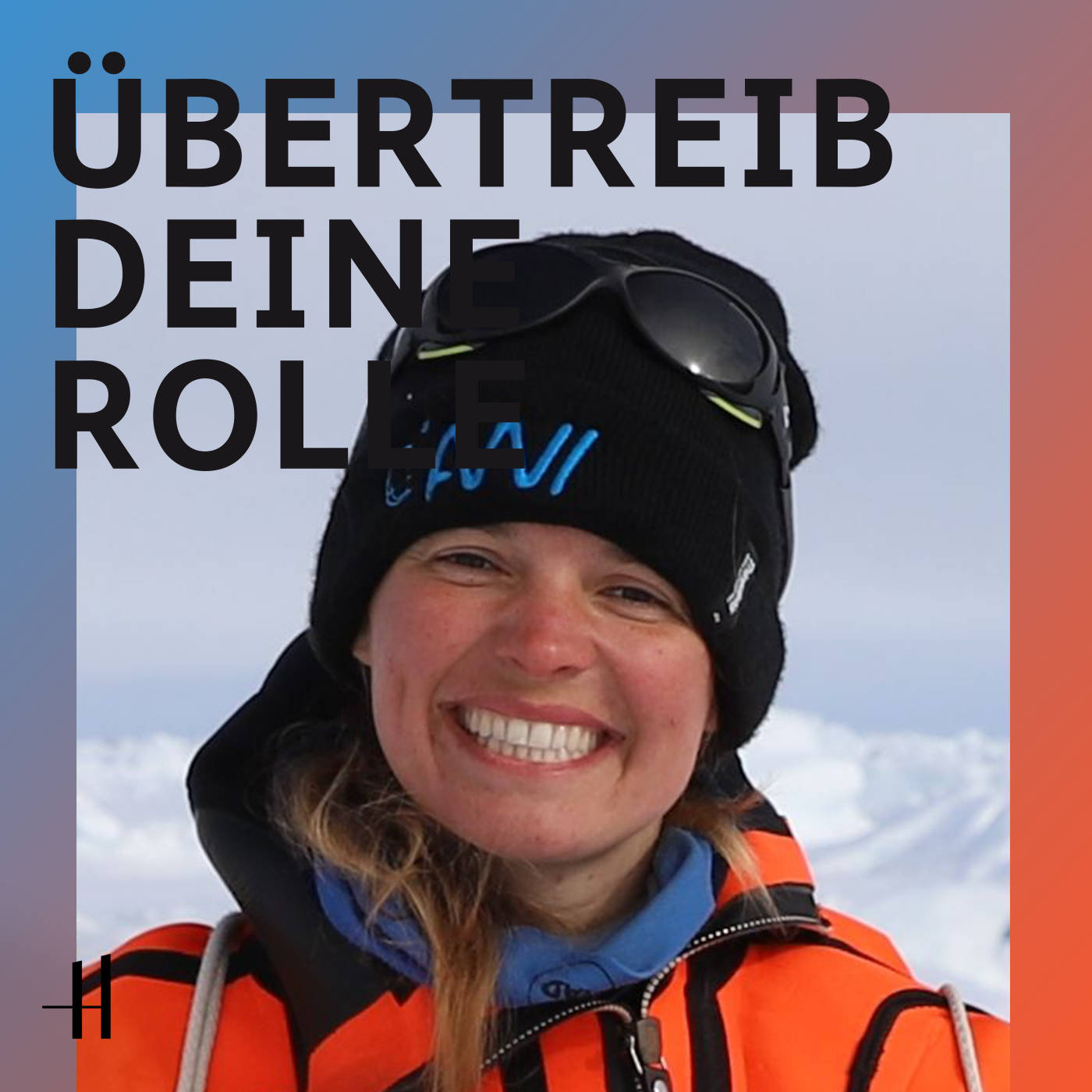 Übertreib deine RolleLuisa von Albedyll – Auf Klima-Mission in der ArktisUnser Gast war an Bord des Forschungsschiffes der größten Arktisexpedition der Geschichte: Wir sprechen mit Luisa von Albedyll über Eisbären, Klima und Abenteuer.
>
Mehr Podcasts der Hertie-Stiftung gibt es hier:
Beruf:Politik. Wie ist es, im 21. Jahrhundert Politik zu machen? > https://berufpolitik.podigee.io/
Hertie-Interviews. Menschen und Themen, die uns bewegen > https://hertie-interviews.podigee.io/
Mit Bleistift gelesen. Demokratiebücher im Gespräch > https://mit-bleistift-gelesen.podigee.io/2021-05-3124 min
Übertreib deine RolleLuisa von Albedyll – Auf Klima-Mission in der ArktisUnser Gast war an Bord des Forschungsschiffes der größten Arktisexpedition der Geschichte: Wir sprechen mit Luisa von Albedyll über Eisbären, Klima und Abenteuer.
>
Mehr Podcasts der Hertie-Stiftung gibt es hier:
Beruf:Politik. Wie ist es, im 21. Jahrhundert Politik zu machen? > https://berufpolitik.podigee.io/
Hertie-Interviews. Menschen und Themen, die uns bewegen > https://hertie-interviews.podigee.io/
Mit Bleistift gelesen. Demokratiebücher im Gespräch > https://mit-bleistift-gelesen.podigee.io/2021-05-3124 min Berlin Security BeatEpisode 07: "Peacekeeping - Politics. Practice. Impact."
Andrea Ruggeri, Professor of Political Science and International Relations at the University of Oxford, and an expert on peacekeeping and civil wars, joins Dr. Katharina Emschermann, Deputy Director at the Centre for International Security, to talk about UN peacekeeping. They discuss:
why and how peacekeeping works,
when to deploy peacekeepers – and when not to,
how to use diversity in mission composition as an asset,
how geopolitics influences decision-making at the UN Security Council,
and, finally, where to get the best coffee.
Bibliography
Blair, Robert (2021): UN Peacekeeping and the Rule of Law, in: American Political Science Re...2021-05-2524 min
Berlin Security BeatEpisode 07: "Peacekeeping - Politics. Practice. Impact."
Andrea Ruggeri, Professor of Political Science and International Relations at the University of Oxford, and an expert on peacekeeping and civil wars, joins Dr. Katharina Emschermann, Deputy Director at the Centre for International Security, to talk about UN peacekeeping. They discuss:
why and how peacekeeping works,
when to deploy peacekeepers – and when not to,
how to use diversity in mission composition as an asset,
how geopolitics influences decision-making at the UN Security Council,
and, finally, where to get the best coffee.
Bibliography
Blair, Robert (2021): UN Peacekeeping and the Rule of Law, in: American Political Science Re...2021-05-2524 min Hertie SchoolDoes NATO’s nuclear sharing arrangement in Europe have a future?NATO's nuclear sharing arrangement – the deployment of some 200 U.S. nuclear weapons in five European NATO member states as part of NATO's nuclear deterrence strategy – has come under pressure. Some analysts see the current nuclear-sharing arrangement as technologically outdated and no longer capable of deterring possible aggression against NATO. For others, the immediate elimination of these weapons would be an important step toward nuclear disarmament, while still others warn that ending NATO's nuclear sharing arrangement would severely harm the alliance's defense strategy and cohesion. This panel explores these perspectives and discuss what the future of NATO’s nuclear sharing arrangement in Eur...2021-05-0741 min
Hertie SchoolDoes NATO’s nuclear sharing arrangement in Europe have a future?NATO's nuclear sharing arrangement – the deployment of some 200 U.S. nuclear weapons in five European NATO member states as part of NATO's nuclear deterrence strategy – has come under pressure. Some analysts see the current nuclear-sharing arrangement as technologically outdated and no longer capable of deterring possible aggression against NATO. For others, the immediate elimination of these weapons would be an important step toward nuclear disarmament, while still others warn that ending NATO's nuclear sharing arrangement would severely harm the alliance's defense strategy and cohesion. This panel explores these perspectives and discuss what the future of NATO’s nuclear sharing arrangement in Eur...2021-05-0741 min Berlin Security BeatEpisode 06: “Power Struggles in the South China Sea”
Sara Mitchell, Professor of Political Science at the University of Iowa, and an expert on international conflict, esp. territorial, river and maritime issues, joins Dr. Katharina Emschermann, Deputy Director at the Centre for International Security, to talk about maritime disputes. They discuss:
the ins and outs of the disputes in the South China Sea,
how climate change increases the risk of maritime conflict,
why some of those conflicts turn violent while others are resolved peacefully,
whether the United States needs a larger fleet,
and, finally, what maritime conflicts to worry about.
Bibliography:
Caverly, Jonathan/ Mitchell...2021-04-1921 min
Berlin Security BeatEpisode 06: “Power Struggles in the South China Sea”
Sara Mitchell, Professor of Political Science at the University of Iowa, and an expert on international conflict, esp. territorial, river and maritime issues, joins Dr. Katharina Emschermann, Deputy Director at the Centre for International Security, to talk about maritime disputes. They discuss:
the ins and outs of the disputes in the South China Sea,
how climate change increases the risk of maritime conflict,
why some of those conflicts turn violent while others are resolved peacefully,
whether the United States needs a larger fleet,
and, finally, what maritime conflicts to worry about.
Bibliography:
Caverly, Jonathan/ Mitchell...2021-04-1921 min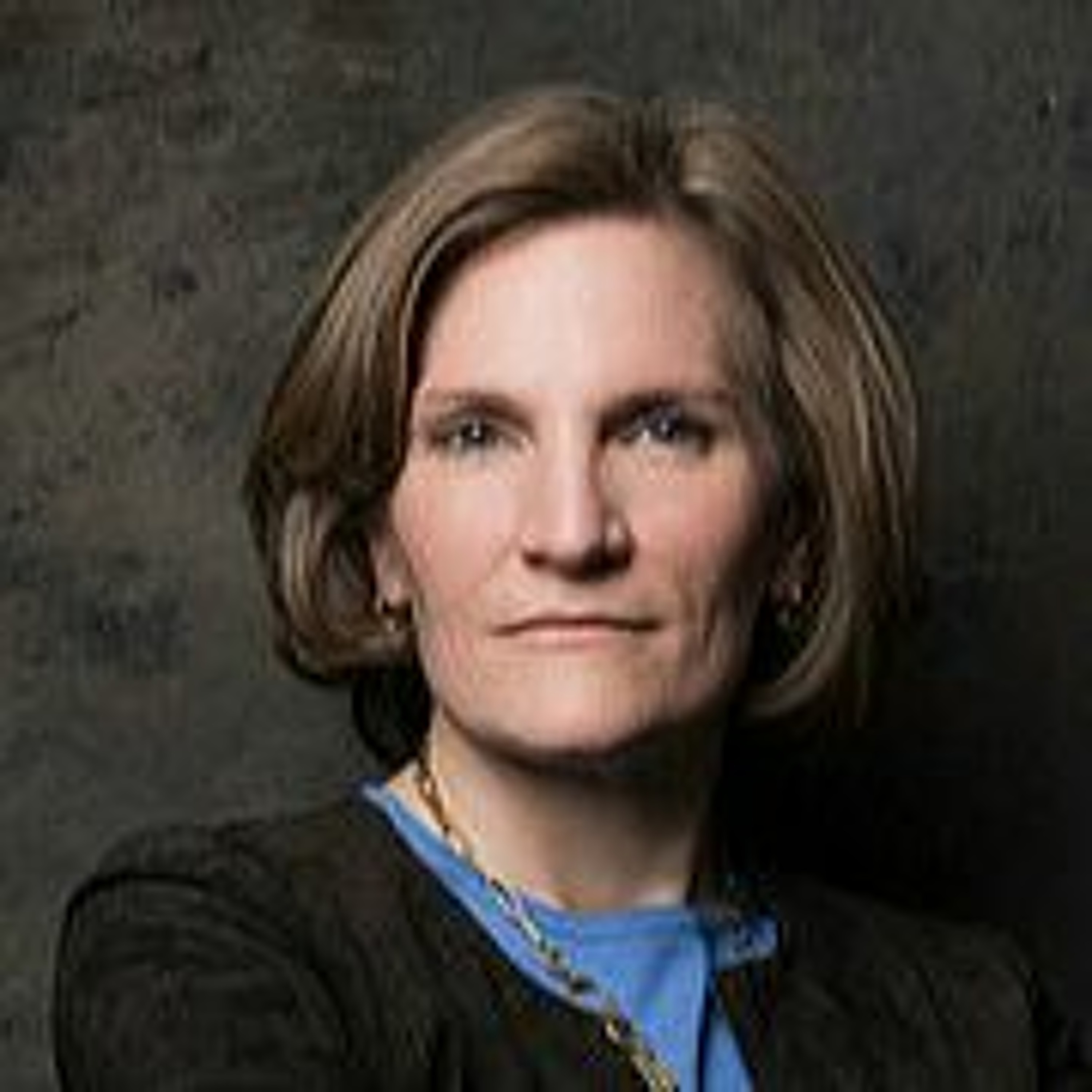 Hertie SchoolChallenges in International Security: Far-right extremism in the world todayThe signs of growing far-right extremism are all around us, and communities across the globe are struggling to understand how so many people are being radicalized and why they are increasingly attracted to violent movements. In this talk, Cynthia Miller-Idriss argues that instead of focusing on the how and why of far-right radicalization, we might seek answers in the physical and virtual spaces where hate is cultivated. She shows how far-right groups are swelling their ranks and developing their cultural, intellectual, and financial capacities in a variety of mainstream settings. She discusses how young people on the margins of our...2021-03-2232 min
Hertie SchoolChallenges in International Security: Far-right extremism in the world todayThe signs of growing far-right extremism are all around us, and communities across the globe are struggling to understand how so many people are being radicalized and why they are increasingly attracted to violent movements. In this talk, Cynthia Miller-Idriss argues that instead of focusing on the how and why of far-right radicalization, we might seek answers in the physical and virtual spaces where hate is cultivated. She shows how far-right groups are swelling their ranks and developing their cultural, intellectual, and financial capacities in a variety of mainstream settings. She discusses how young people on the margins of our...2021-03-2232 min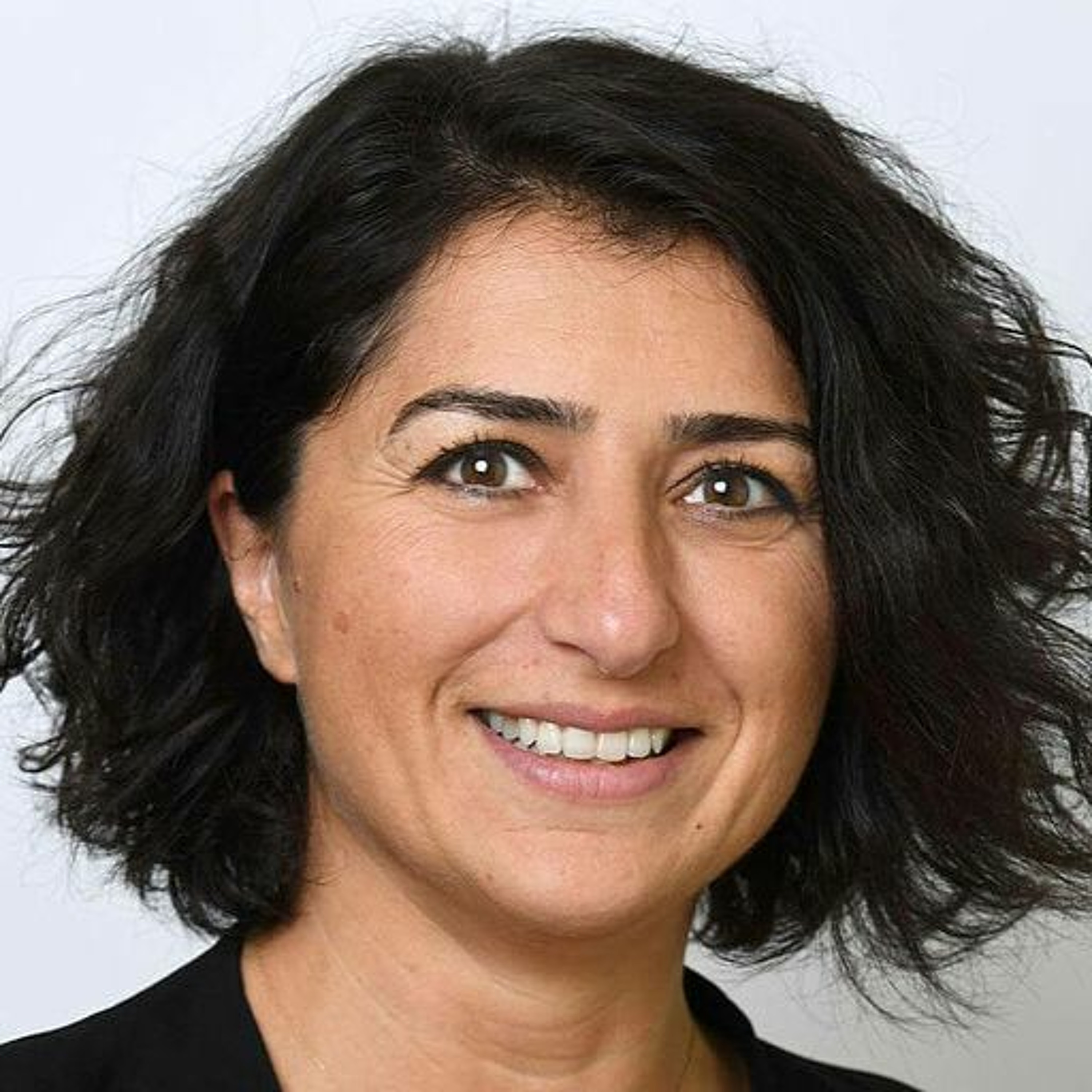 Hertie SchoolBook launch: "Limits of Supranational Justice"With its contextualised analysis of the European Court of Human Rights' (ECtHR) engagement in Turkey's Kurdish conflict since the early 1990s, "Limits of Supranational Justice" makes a much-needed contribution to scholarships on supranational courts and legal mobilisation. Based on a socio-legal account of the efforts of Kurdish lawyers in mobilising the ECtHR on behalf of abducted, executed, tortured and displaced civilians under emergency rule, and a doctrinal legal analysis of the ECtHR's jurisprudence in these cases, this book powerfully demonstrates the Strasbourg court's failure to end gross violations in the Kurdish region. It brings together legal, political, sociological and historical...2021-03-1838 min
Hertie SchoolBook launch: "Limits of Supranational Justice"With its contextualised analysis of the European Court of Human Rights' (ECtHR) engagement in Turkey's Kurdish conflict since the early 1990s, "Limits of Supranational Justice" makes a much-needed contribution to scholarships on supranational courts and legal mobilisation. Based on a socio-legal account of the efforts of Kurdish lawyers in mobilising the ECtHR on behalf of abducted, executed, tortured and displaced civilians under emergency rule, and a doctrinal legal analysis of the ECtHR's jurisprudence in these cases, this book powerfully demonstrates the Strasbourg court's failure to end gross violations in the Kurdish region. It brings together legal, political, sociological and historical...2021-03-1838 min Berlin Security BeatEpisode 05: “Libya, 10 Years Later”
Bibliography
Badi, Emadeddin/ Lacher, Wolfram (2021): Agree to Disagree: Libya’s New Unity Government, in: Sada, Carnegie Endowment for International Peace, https://carnegieendowment.org/sada/83839
Cole, Peter/ McQuinn, Brian (eds) (2015): The Libyan Revolution and its Aftermath, London: Hurst Publishers, https://oxford.universitypressscholarship.com/view/10.1093/acprof:oso/9780190210960.001.0001/acprof-9780190210960
Costantini, Irene (2016): Conflict Dynamics in Post-2011 Libya: A Political Economy Perspective, in: Conflict, Security & Development, 16(5), 405-422, https://www.tandfonline.com/doi/abs/10.1080/14678802.2016.1212534
Dassù, Marta (2020): Why the War in Libya is a Test for Italy – and for a Geopolitical European Commission, https://ecfr.eu/article/commentary_why_t...2021-03-1526 min
Berlin Security BeatEpisode 05: “Libya, 10 Years Later”
Bibliography
Badi, Emadeddin/ Lacher, Wolfram (2021): Agree to Disagree: Libya’s New Unity Government, in: Sada, Carnegie Endowment for International Peace, https://carnegieendowment.org/sada/83839
Cole, Peter/ McQuinn, Brian (eds) (2015): The Libyan Revolution and its Aftermath, London: Hurst Publishers, https://oxford.universitypressscholarship.com/view/10.1093/acprof:oso/9780190210960.001.0001/acprof-9780190210960
Costantini, Irene (2016): Conflict Dynamics in Post-2011 Libya: A Political Economy Perspective, in: Conflict, Security & Development, 16(5), 405-422, https://www.tandfonline.com/doi/abs/10.1080/14678802.2016.1212534
Dassù, Marta (2020): Why the War in Libya is a Test for Italy – and for a Geopolitical European Commission, https://ecfr.eu/article/commentary_why_t...2021-03-1526 min Berlin Security BeatEpisode 04: "Grand Strategy for the Global Disorder"
Bibliography
Biden, Joseph R. (2021): Remarks by President Biden on America’s Place in the World, (02/04/2021), U.S. Department of State Headquarters, Washington DC., https://www.whitehouse.gov/briefing-room/speeches-remarks/2021/02/04/remarks-by-president-biden-on-americas-place-in-the-world/
Brands, Hal (2017): The Unexceptional Superpower: American Grand Strategy in the Age of Trump, Survival, 59:6, 7-40, https://www.tandfonline.com/doi/full/10.1080/00396338.2017.1399722
Drezner, Daniel W./ Krebs, Ronald R./ Schweller, Randall (2020): The End of Grand Strategy: America Must Think Small, in: Foreign Affairs, May/June 2020, https://www.foreignaffairs.com/articles/world/2020-04-13/end-grand-strategy
Ehrhardt, Andrew/ Ryan, Maeve (2020): Grand Strategy is no Silver Bu...2021-02-1524 min
Berlin Security BeatEpisode 04: "Grand Strategy for the Global Disorder"
Bibliography
Biden, Joseph R. (2021): Remarks by President Biden on America’s Place in the World, (02/04/2021), U.S. Department of State Headquarters, Washington DC., https://www.whitehouse.gov/briefing-room/speeches-remarks/2021/02/04/remarks-by-president-biden-on-americas-place-in-the-world/
Brands, Hal (2017): The Unexceptional Superpower: American Grand Strategy in the Age of Trump, Survival, 59:6, 7-40, https://www.tandfonline.com/doi/full/10.1080/00396338.2017.1399722
Drezner, Daniel W./ Krebs, Ronald R./ Schweller, Randall (2020): The End of Grand Strategy: America Must Think Small, in: Foreign Affairs, May/June 2020, https://www.foreignaffairs.com/articles/world/2020-04-13/end-grand-strategy
Ehrhardt, Andrew/ Ryan, Maeve (2020): Grand Strategy is no Silver Bu...2021-02-1524 min Berlin Security BeatEpisode 03: “Germany’s Post-Merkel Foreign Policy”
Bibliography
Bremmer, Ian/ Kupchan, Cliff (2021): Risk 9: Europe after Merkel, in: Eurasia Group: Top Risks 2021, https://www.eurasiagroup.net/live-post/top-risks-2021-risk-9-europe-after-merkel
Brummer, Klaus/ Oppermann, Kai (2014): Patterns of Junior Partner Influence on the Foreign Policy of Coalition Governments, in: British Journal of Politics and International Relations, 16 (4), 555-571. https://journals.sagepub.com/doi/abs/10.1111/1467-856X.12025?journalCode=bpia
Bulmer, Simon/ Paterson, William E. (2019): Germany and the European Union: Europe's Reluctant Hegemon? Macmillan International Higher Education, London. https://www.tandfonline.com/doi/abs/10.1080/09644008.2019.1572958
Collier, David (2011): Understanding Process Tracing, in: Political Science and Politics, 4 (2011), 823...2021-01-2921 min
Berlin Security BeatEpisode 03: “Germany’s Post-Merkel Foreign Policy”
Bibliography
Bremmer, Ian/ Kupchan, Cliff (2021): Risk 9: Europe after Merkel, in: Eurasia Group: Top Risks 2021, https://www.eurasiagroup.net/live-post/top-risks-2021-risk-9-europe-after-merkel
Brummer, Klaus/ Oppermann, Kai (2014): Patterns of Junior Partner Influence on the Foreign Policy of Coalition Governments, in: British Journal of Politics and International Relations, 16 (4), 555-571. https://journals.sagepub.com/doi/abs/10.1111/1467-856X.12025?journalCode=bpia
Bulmer, Simon/ Paterson, William E. (2019): Germany and the European Union: Europe's Reluctant Hegemon? Macmillan International Higher Education, London. https://www.tandfonline.com/doi/abs/10.1080/09644008.2019.1572958
Collier, David (2011): Understanding Process Tracing, in: Political Science and Politics, 4 (2011), 823...2021-01-2921 min Berlin Security BeatEpisode 02: “Conflicts We Can (Not) Predict”
ACLED (2019): Ten Conflicts to Worry About in 2020, https://acleddata.com/2020/01/23/ten-conflicts-to-worry-about-in-2020/
ACLED (2020): Mid-Year Update: Ten Conflicts to Worry About in 2020, https://acleddata.com/2020/08/18/mid-year-update-10-conflicts-to-worry-about-in-2020/#1597759395479-dd34f4e9-c05f
Cedermann, Lars-Erik, Nils B. Weidmann (2017): Predicting Armed Conflict: Time to Adjust Our Expectations? In: Science, 355(6324), 474-476, https://science.sciencemag.org/content/355/6324/474
Chiba, Daina, Metternich, Nils W., & Ward, Michael D. (2015): Every Story Has a Beginning, Middle, and an End (But Not Always in That Order): Predicting Duration Dynamics in a Unified Framework, in: Political Science Research and Methods, 3(3), 515-541, https://www.cambridge.org/core...2020-12-1819 min
Berlin Security BeatEpisode 02: “Conflicts We Can (Not) Predict”
ACLED (2019): Ten Conflicts to Worry About in 2020, https://acleddata.com/2020/01/23/ten-conflicts-to-worry-about-in-2020/
ACLED (2020): Mid-Year Update: Ten Conflicts to Worry About in 2020, https://acleddata.com/2020/08/18/mid-year-update-10-conflicts-to-worry-about-in-2020/#1597759395479-dd34f4e9-c05f
Cedermann, Lars-Erik, Nils B. Weidmann (2017): Predicting Armed Conflict: Time to Adjust Our Expectations? In: Science, 355(6324), 474-476, https://science.sciencemag.org/content/355/6324/474
Chiba, Daina, Metternich, Nils W., & Ward, Michael D. (2015): Every Story Has a Beginning, Middle, and an End (But Not Always in That Order): Predicting Duration Dynamics in a Unified Framework, in: Political Science Research and Methods, 3(3), 515-541, https://www.cambridge.org/core...2020-12-1819 min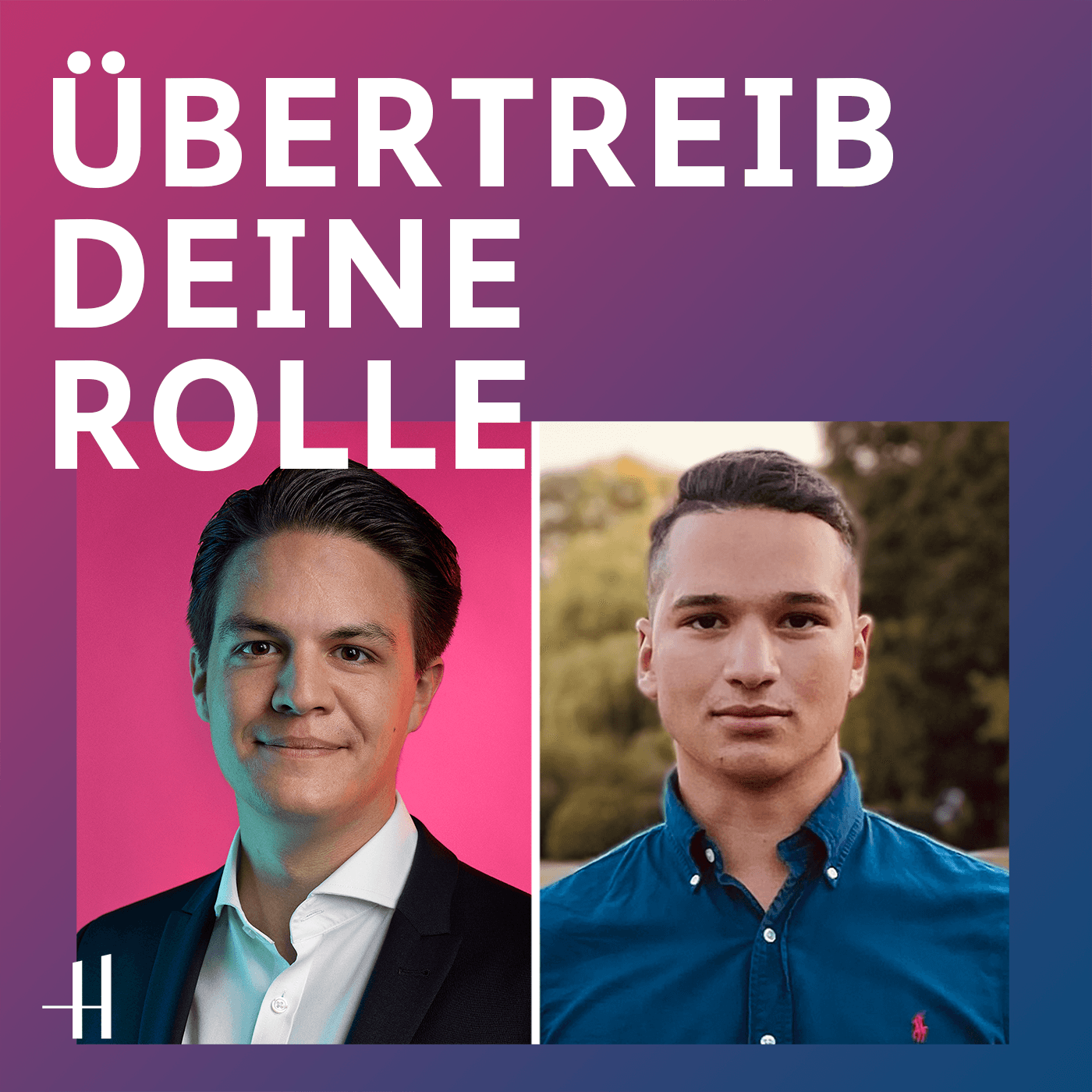 Übertreib deine RolleMarian Schreier & Florian Bieder – Wie hart ist jung sein in der Politik?Marian Schreier ist erst 30 Jahre alt. Trotzdem kandidiert er als Oberbürgermeister seiner Heimatstadt Stuttgart - und das ohne Unterstützung einer Partei. Kann das gut gehen? Wir treffen ihn im Wahlkampf. Welche Vor- und Nachteile hat sein Alter? Was macht er anders als ältere Kolleg*innen? Und vor allem: Schafft er es am Ende ins Rathaus?
750 Kilometer weiter nördlich, in Kiel, treffen wir Florian Bieder. Flo ist sogar erst 19 Jahre alt, aber auf Twitter schon mehrfach aufgefallen. Er sagt seine Meinung und hat keine Angst, sich auch mit der eigenen Blase anzulegen. Seine Partei ist die FDP – doch als Ar...2020-12-1041 min
Übertreib deine RolleMarian Schreier & Florian Bieder – Wie hart ist jung sein in der Politik?Marian Schreier ist erst 30 Jahre alt. Trotzdem kandidiert er als Oberbürgermeister seiner Heimatstadt Stuttgart - und das ohne Unterstützung einer Partei. Kann das gut gehen? Wir treffen ihn im Wahlkampf. Welche Vor- und Nachteile hat sein Alter? Was macht er anders als ältere Kolleg*innen? Und vor allem: Schafft er es am Ende ins Rathaus?
750 Kilometer weiter nördlich, in Kiel, treffen wir Florian Bieder. Flo ist sogar erst 19 Jahre alt, aber auf Twitter schon mehrfach aufgefallen. Er sagt seine Meinung und hat keine Angst, sich auch mit der eigenen Blase anzulegen. Seine Partei ist die FDP – doch als Ar...2020-12-1041 min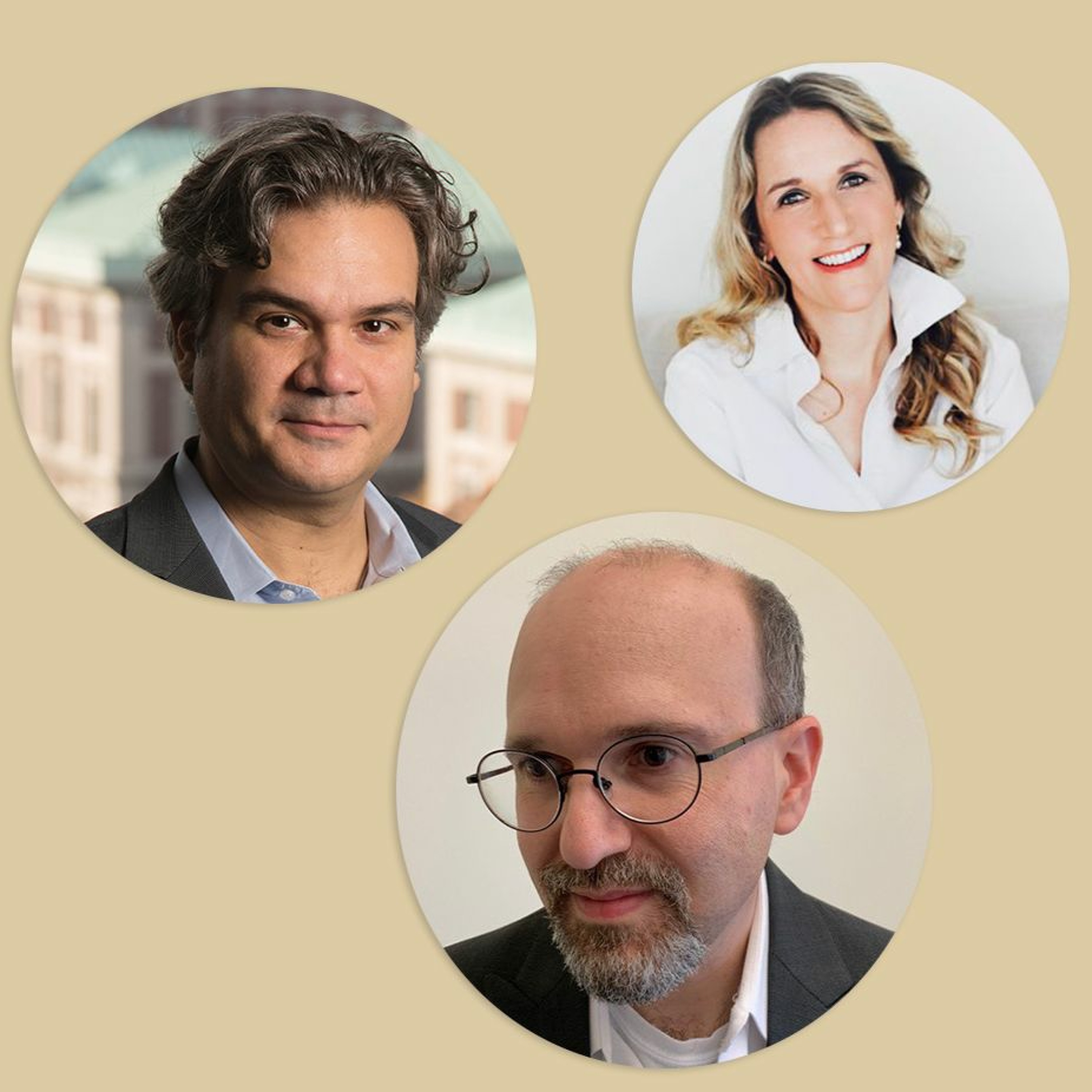 Hertie SchoolChallenges in international security: Why Biden can’t restore US global hegemonyListen to a presentation by Daniel Nexon and Alexander Cooley based on their recent book Exit from Hegemony: The Unravelling of American Global Order.
In Exit from Hegemony, Cooley and Nexon explore three processes that have eroded US leadership: exit from above via great-power challengers, exit from below via weaker states leveraging the availability of new patrons, and exit from within via counter-order movements and political parties. They argue that Trump has been both a symptom and accelerant of these processes and discuss what a new Biden administration can and can’t do to alter the trajectory of change in th...2020-12-0832 min
Hertie SchoolChallenges in international security: Why Biden can’t restore US global hegemonyListen to a presentation by Daniel Nexon and Alexander Cooley based on their recent book Exit from Hegemony: The Unravelling of American Global Order.
In Exit from Hegemony, Cooley and Nexon explore three processes that have eroded US leadership: exit from above via great-power challengers, exit from below via weaker states leveraging the availability of new patrons, and exit from within via counter-order movements and political parties. They argue that Trump has been both a symptom and accelerant of these processes and discuss what a new Biden administration can and can’t do to alter the trajectory of change in th...2020-12-0832 min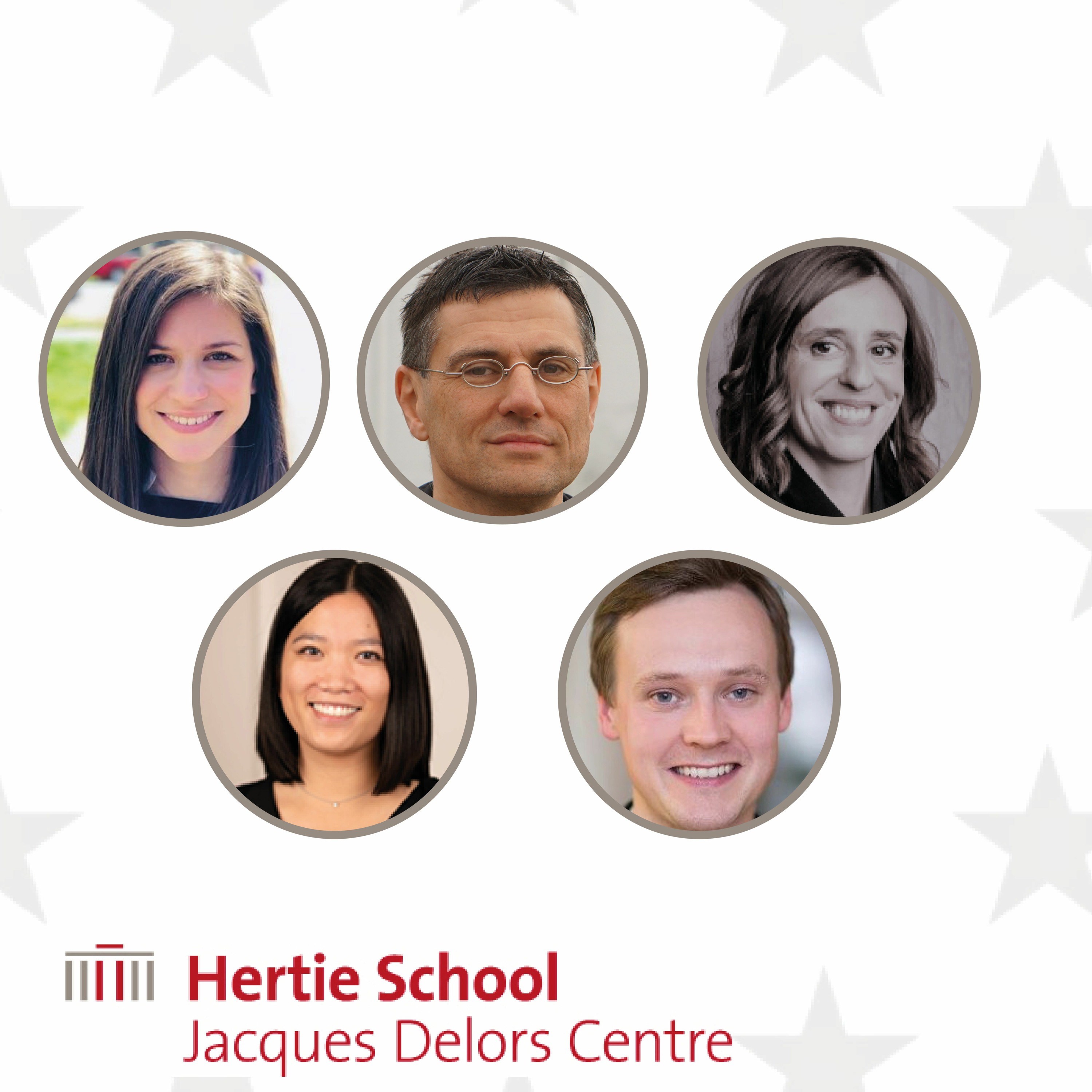 Hertie SchoolThe German Constitutional Court: A Threat to European Unity?Germany’s Constitutional Court has long been a powerful actor within the German political system. Recent decisions of the Court, however, indicate its increasing willingness to flex its muscles in European politics too. The German Court’s action have received a torrent of criticism: that it is undermining EU law, overstepping its judicial mandate and even lending implicit support to governments undermining rule of law standards. Others have defended the Court, arguing that its decision challenges important deficiencies in the way the Eurozone is organised. Teresa Violante, Ana Bobić and Franz Mayer present both sides of this debate which is hoste...2020-12-081h 03
Hertie SchoolThe German Constitutional Court: A Threat to European Unity?Germany’s Constitutional Court has long been a powerful actor within the German political system. Recent decisions of the Court, however, indicate its increasing willingness to flex its muscles in European politics too. The German Court’s action have received a torrent of criticism: that it is undermining EU law, overstepping its judicial mandate and even lending implicit support to governments undermining rule of law standards. Others have defended the Court, arguing that its decision challenges important deficiencies in the way the Eurozone is organised. Teresa Violante, Ana Bobić and Franz Mayer present both sides of this debate which is hoste...2020-12-081h 03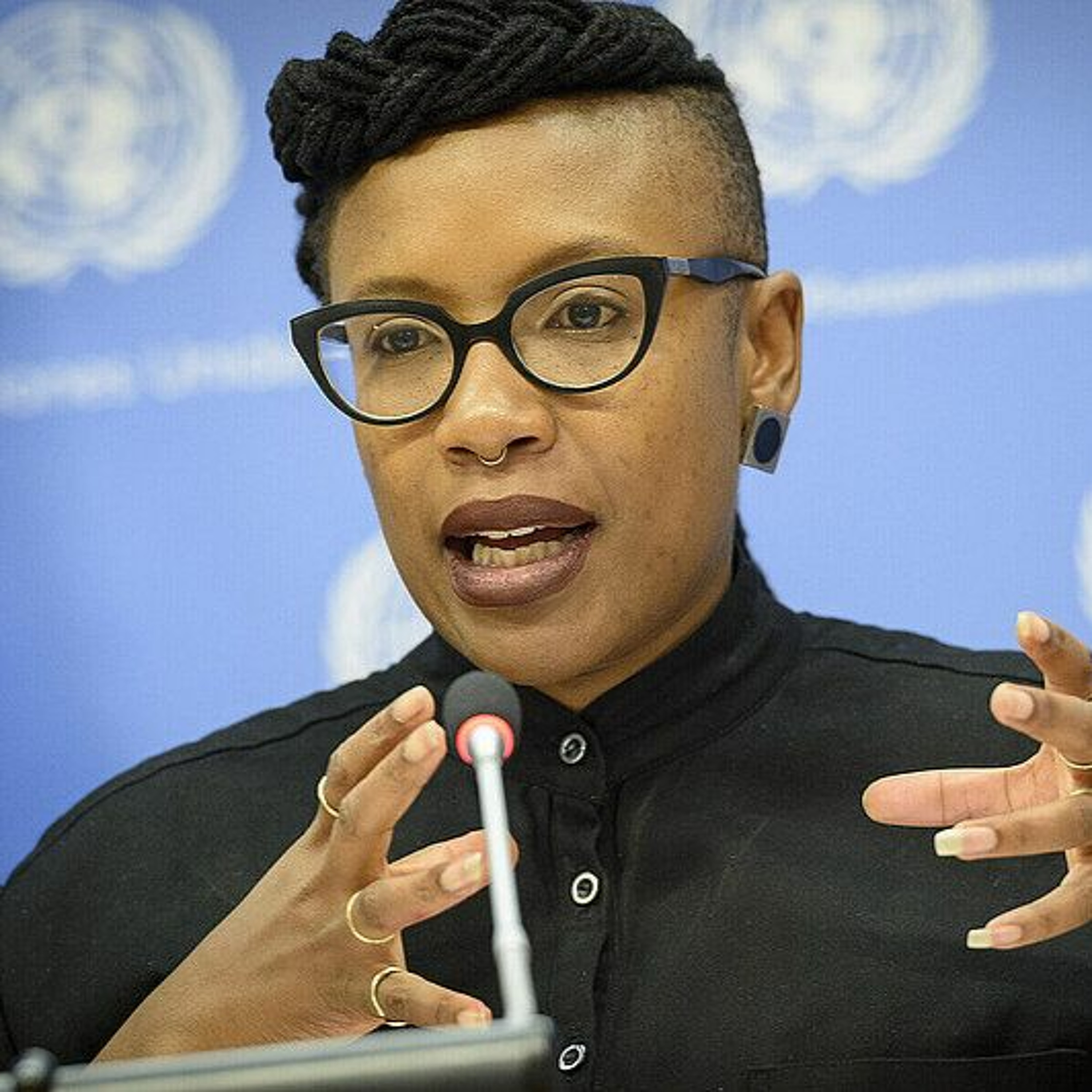 Hertie SchoolRacial borders - a presentation by Tendayi Achiumehe Centre for Fundamental Rights is honoured to welcome Tendayi Achiume for a talk on racial borders. This presentation will aim to discuss the intersection between racial injustice and migration governance from international law perspective.
Tendayi Achiume is Professor of Law at the University of California, Los Angeles School of Law, and a research associate of the African Center for Migration and Society at the University of Witwatersrand in South Africa. She is also the UN Special Rapporteur on Contemporary Forms of Racism, Racial Discrimination, Xenophobia and Related Intolerance and is the first woman to serve in this role since...2020-12-0248 min
Hertie SchoolRacial borders - a presentation by Tendayi Achiumehe Centre for Fundamental Rights is honoured to welcome Tendayi Achiume for a talk on racial borders. This presentation will aim to discuss the intersection between racial injustice and migration governance from international law perspective.
Tendayi Achiume is Professor of Law at the University of California, Los Angeles School of Law, and a research associate of the African Center for Migration and Society at the University of Witwatersrand in South Africa. She is also the UN Special Rapporteur on Contemporary Forms of Racism, Racial Discrimination, Xenophobia and Related Intolerance and is the first woman to serve in this role since...2020-12-0248 min Berlin Security BeatEpisode 01: "What Joe Biden's Win Means for the World"
Bibliography
Becker, Jordan/ Kreps, Sarah E./Poast, Paul Daniel/ Terman, Rochelle (2019): Transatlantic Shakedown: Does Presidential ‘Naming and Shaming’ Affect NATO Burden-Sharing? Available at SSRN: https://ssrn.com/abstract=3493570
Douglas Lute/Nicholas Burns (2019): NATO at Seventy. An Alliance in Crisis. Cambridge, MA: Harvard University, Kennedy School, Belfer Center for Science and International Affairs, https://www.belfercenter.org/publication/nato-seventy-alliance-crisis
Kupchan, Charles (2020): Isolationism: A History of America’s Efforts to Shield Itself From the World, New York, N.Y.
Waltz, Kenneth (1993): The Emerging Structure of International Politics, in: International Security (Vol. 18, No. 2), 44-79. https...2020-11-2320 min
Berlin Security BeatEpisode 01: "What Joe Biden's Win Means for the World"
Bibliography
Becker, Jordan/ Kreps, Sarah E./Poast, Paul Daniel/ Terman, Rochelle (2019): Transatlantic Shakedown: Does Presidential ‘Naming and Shaming’ Affect NATO Burden-Sharing? Available at SSRN: https://ssrn.com/abstract=3493570
Douglas Lute/Nicholas Burns (2019): NATO at Seventy. An Alliance in Crisis. Cambridge, MA: Harvard University, Kennedy School, Belfer Center for Science and International Affairs, https://www.belfercenter.org/publication/nato-seventy-alliance-crisis
Kupchan, Charles (2020): Isolationism: A History of America’s Efforts to Shield Itself From the World, New York, N.Y.
Waltz, Kenneth (1993): The Emerging Structure of International Politics, in: International Security (Vol. 18, No. 2), 44-79. https...2020-11-2320 min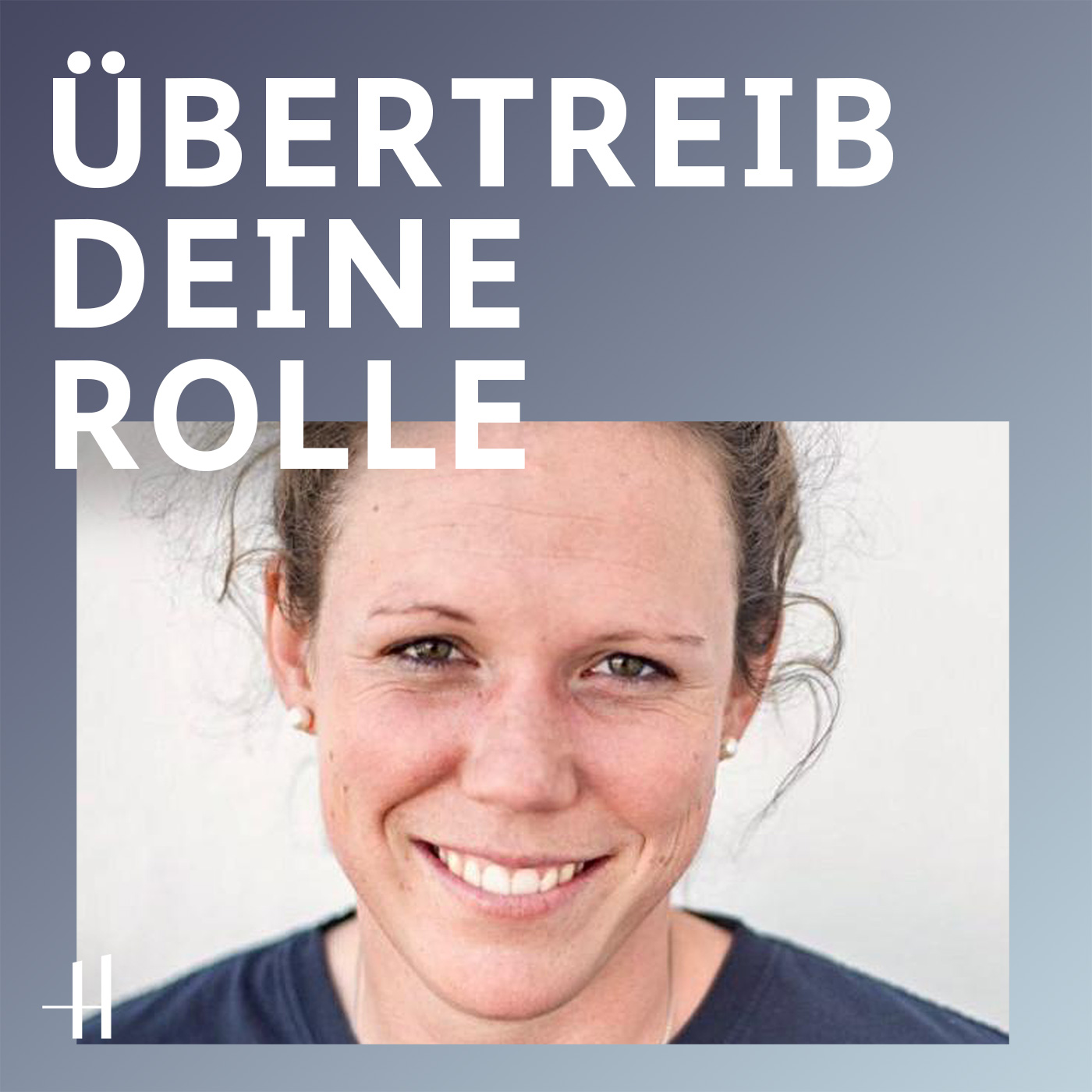 Übertreib deine RolleVerena Würz – In der Notaufnahme von MoriaVerena ist keine Idealistin. Aber sie rettet Menschenleben – als Medizinerin in Moria und auf der Seawatch 3 hat sie sich um besonders schutzbedürftige Menschen gekümmert.
Verena Würz wollte nie Ärztin werden, denn den Beruf hatte sich ihre Mutter für sie gewünscht. Am Ende ist sie trotzdem in der Medizin gelandet und liebt seitdem nichts so sehr. Noch im Studium hat sie mit einem Kollegen die Notaufnahme von Europas größtem Flüchtlingslager geleitet. In Moria hat sie den Ausbruch von Covid19 und den verheerenden Großbrand erlebt.
Plötzlich war ihr Arbeitsplatz in den Schlagzei...2020-11-1933 min
Übertreib deine RolleVerena Würz – In der Notaufnahme von MoriaVerena ist keine Idealistin. Aber sie rettet Menschenleben – als Medizinerin in Moria und auf der Seawatch 3 hat sie sich um besonders schutzbedürftige Menschen gekümmert.
Verena Würz wollte nie Ärztin werden, denn den Beruf hatte sich ihre Mutter für sie gewünscht. Am Ende ist sie trotzdem in der Medizin gelandet und liebt seitdem nichts so sehr. Noch im Studium hat sie mit einem Kollegen die Notaufnahme von Europas größtem Flüchtlingslager geleitet. In Moria hat sie den Ausbruch von Covid19 und den verheerenden Großbrand erlebt.
Plötzlich war ihr Arbeitsplatz in den Schlagzei...2020-11-1933 min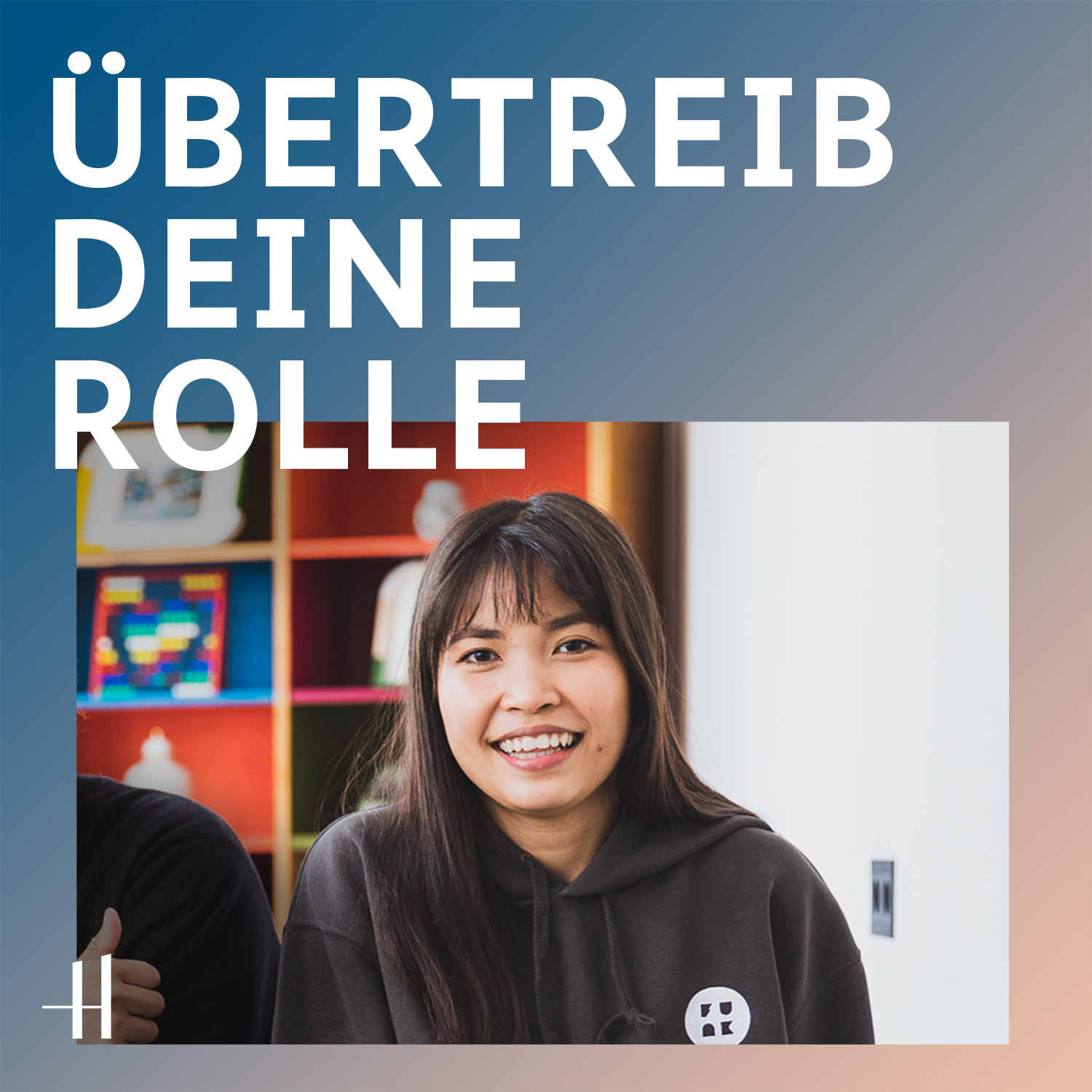 Übertreib deine RollePocket Hazel – YouTube über GeldDie YouTuberin Hazel hat einen Kanal, auf dem es ausdrücklich um Finanzen geht. Nur ohne das Märchen vom schnellen Geld. Was sie stattdessen macht und wie man damit auf YouTube Erfolg hat, erfahrt ihr in dieser Folge #ÜbertreibDeineRolle.
Sind wir ehrlich: Die allermeisten von uns haben von Finanzen keine Ahnung. Was kein Wunder ist, denn in der Schule wird uns kaum was über Geld beigebracht. Darum googeln wir – und stoßen auf windige „Experten“ und vollmundige Versprechungen vom großen Abkassieren.
Aber es geht besser: Die YouTuberin Hazel hat einen Kanal, auf dem es ausdrücklich um Fin...2020-10-2921 min
Übertreib deine RollePocket Hazel – YouTube über GeldDie YouTuberin Hazel hat einen Kanal, auf dem es ausdrücklich um Finanzen geht. Nur ohne das Märchen vom schnellen Geld. Was sie stattdessen macht und wie man damit auf YouTube Erfolg hat, erfahrt ihr in dieser Folge #ÜbertreibDeineRolle.
Sind wir ehrlich: Die allermeisten von uns haben von Finanzen keine Ahnung. Was kein Wunder ist, denn in der Schule wird uns kaum was über Geld beigebracht. Darum googeln wir – und stoßen auf windige „Experten“ und vollmundige Versprechungen vom großen Abkassieren.
Aber es geht besser: Die YouTuberin Hazel hat einen Kanal, auf dem es ausdrücklich um Fin...2020-10-2921 min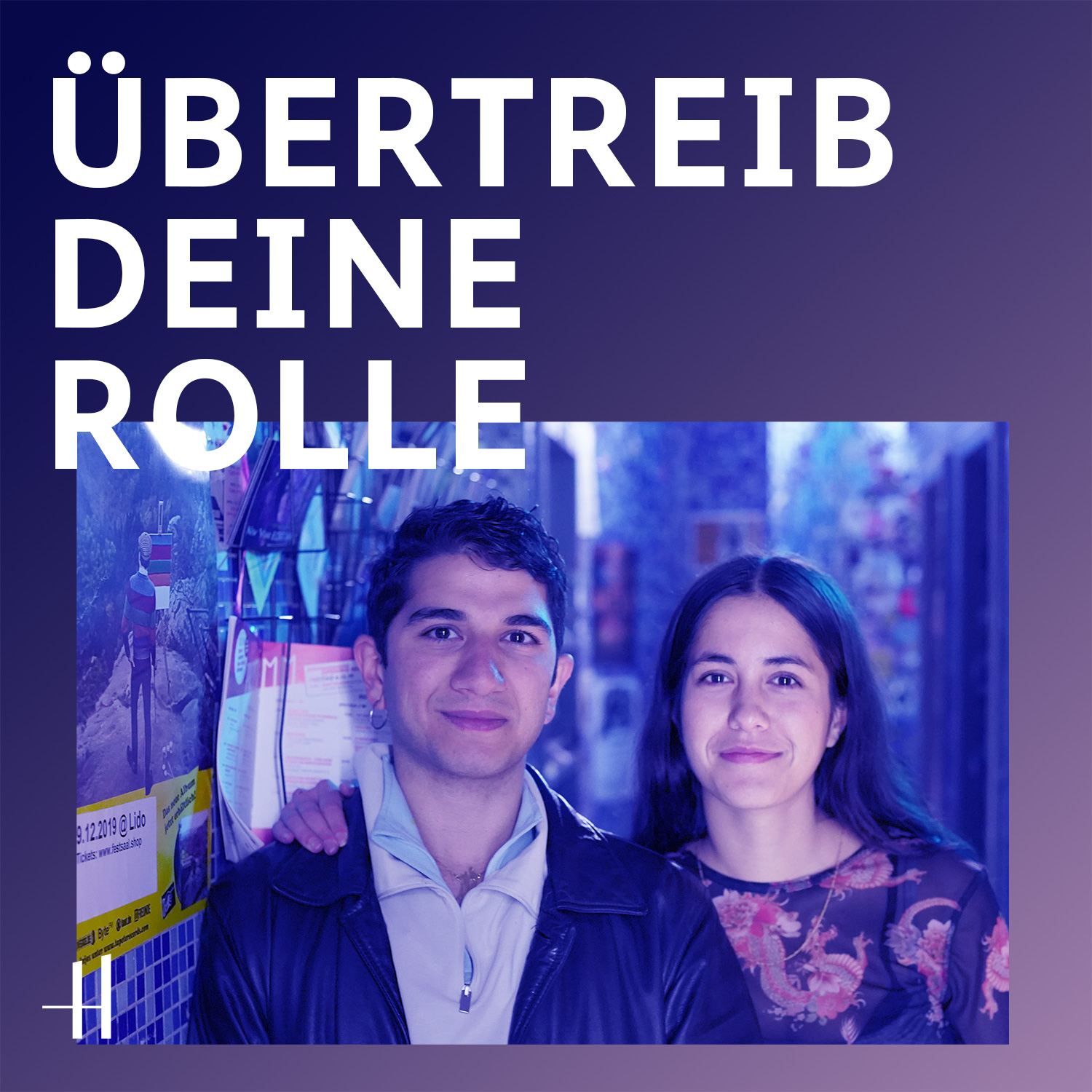 Übertreib deine RolleFaraz Shariat & Raquel Molt – Mehr Diversität im deutschen Film!Warum ist der deutsche Filme so weiß? Und warum ist die Rolle von Migrantinnen und Migranten oft begrenzt auf lustige Sidekicks und Clan-Kriminelle? Diese Fragen stellen die jungen Filmemacher Faraz und Raquel.
Warum ist der deutsche Filme so weiß? Und warum ist die Rolle von Migrantinnen und Migranten oft begrenzt auf lustige Sidekicks und Clan-Kriminelle? Diese Fragen stellen die jungen Filmemacher Faraz und Raquel. Wenn’s sein muss, legen sie sich dabei auch mit den Größen ihrer Branche an.
Mehr Podcasts der Hertie-Stiftung gibt es hier:
Beruf:Politik > https://berufpolitik.podigee.io/
Hertie-Interviews > https://hertie-interviews.podigee.io/2020-10-2123 min
Übertreib deine RolleFaraz Shariat & Raquel Molt – Mehr Diversität im deutschen Film!Warum ist der deutsche Filme so weiß? Und warum ist die Rolle von Migrantinnen und Migranten oft begrenzt auf lustige Sidekicks und Clan-Kriminelle? Diese Fragen stellen die jungen Filmemacher Faraz und Raquel.
Warum ist der deutsche Filme so weiß? Und warum ist die Rolle von Migrantinnen und Migranten oft begrenzt auf lustige Sidekicks und Clan-Kriminelle? Diese Fragen stellen die jungen Filmemacher Faraz und Raquel. Wenn’s sein muss, legen sie sich dabei auch mit den Größen ihrer Branche an.
Mehr Podcasts der Hertie-Stiftung gibt es hier:
Beruf:Politik > https://berufpolitik.podigee.io/
Hertie-Interviews > https://hertie-interviews.podigee.io/2020-10-2123 min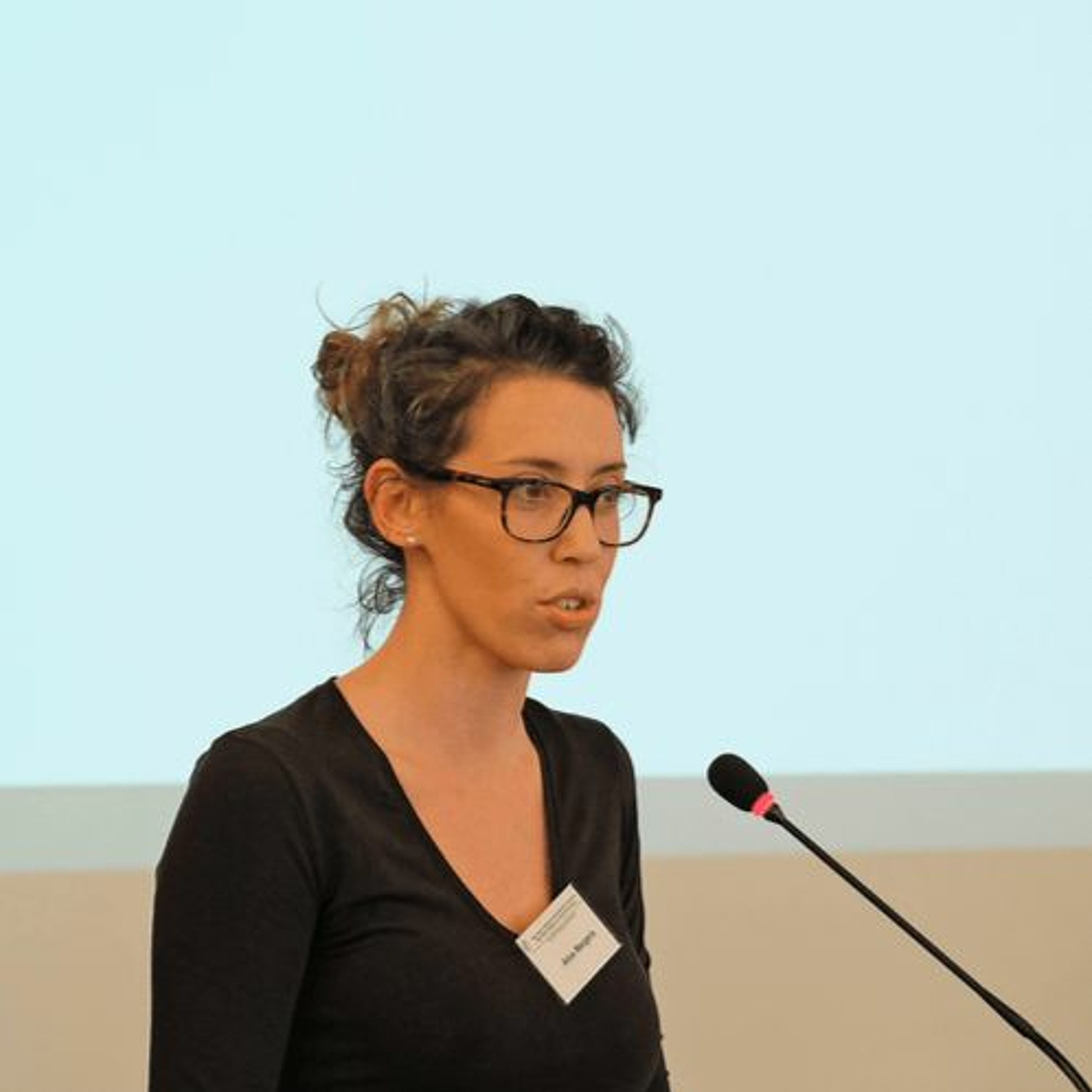 Hertie SchoolBook launch: "The Construction of Fatherhood"On 16 September, Alice Margaria opened the programme of the Fundamental Rights Research Colloquium for the new academic year with a presentation of her book, The Construction of Fatherhood: The Jurisprudence of the European Court of Human Rights (Cambridge University Press, 2019). Michaela Kreyenfeld will be a discussant of the book.2020-10-1531 min
Hertie SchoolBook launch: "The Construction of Fatherhood"On 16 September, Alice Margaria opened the programme of the Fundamental Rights Research Colloquium for the new academic year with a presentation of her book, The Construction of Fatherhood: The Jurisprudence of the European Court of Human Rights (Cambridge University Press, 2019). Michaela Kreyenfeld will be a discussant of the book.2020-10-1531 min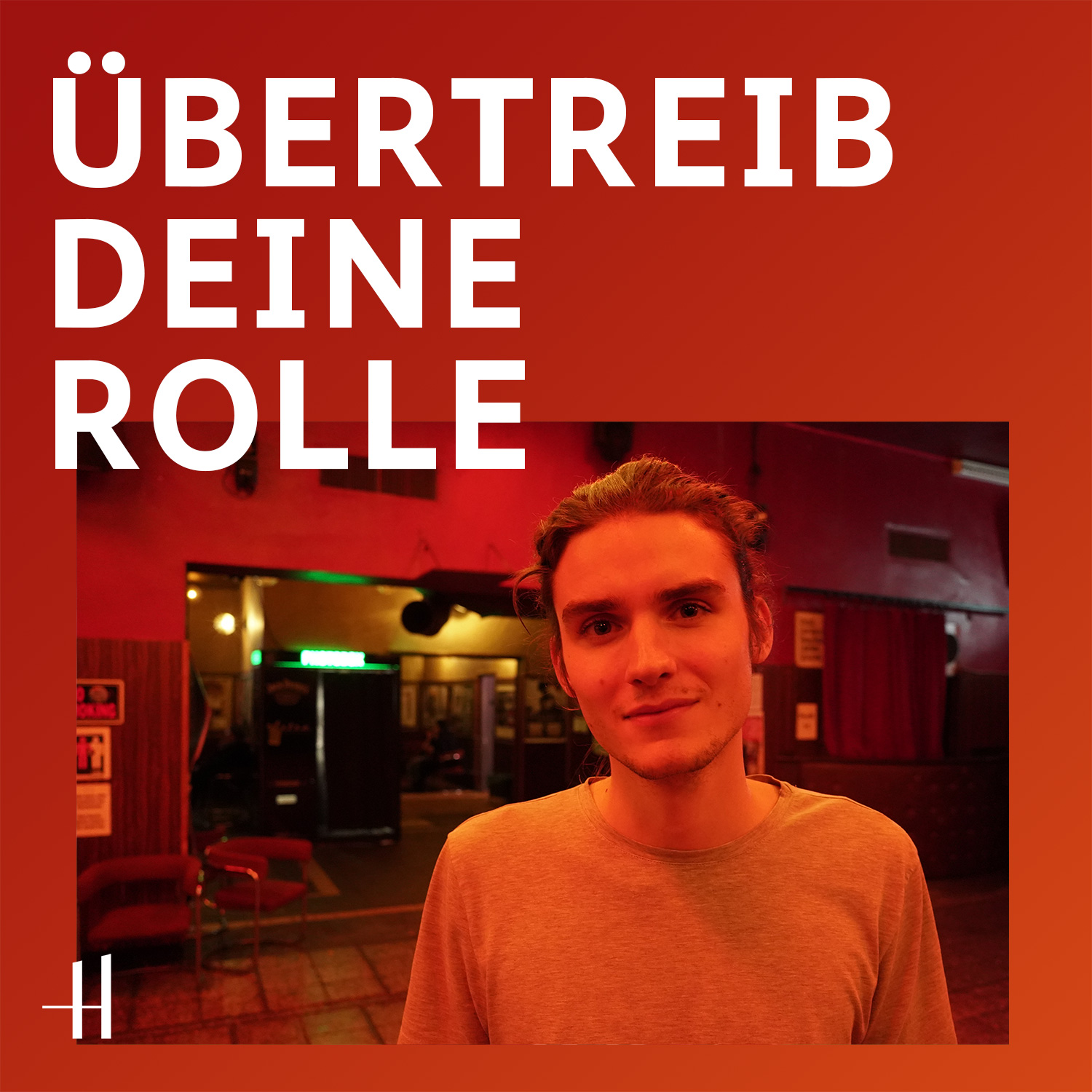 Übertreib deine RolleMikesh – Battle-Rap, Sprache und VerantwortungBattle-Rap ist mehr als stumpfes Beleidigen. Einer, der diese Kunstform beherrscht wie kaum jemand, ist Mikesh. Er entspricht so gar nicht dem Klischee des Mütter-beleidigenden Holzkopfs.
Battle-Rap ist mehr als stumpfes Beleidigen. "Es geht um maximale Zerstörung durch Lyrik." (Rap-Expertin Jule Wasabi). Einer, der diese Kunstform beherrscht wie kaum jemand, ist Mikesh. Mikesh ist amtierender Champion bei DLTLLY, der wichtigsten Battle-Rap-Liga Deutschlands. Er entspricht so gar nicht dem Klischee des Mütter-beleidigenden Holzkopfs. Seine Texte sind intelligent, um die Ecke gedacht – und manchmal sind sie sogar mitreißende Statements gegen Diskriminierung.
Warum er trotzdem nicht der Po...2020-10-1524 min
Übertreib deine RolleMikesh – Battle-Rap, Sprache und VerantwortungBattle-Rap ist mehr als stumpfes Beleidigen. Einer, der diese Kunstform beherrscht wie kaum jemand, ist Mikesh. Er entspricht so gar nicht dem Klischee des Mütter-beleidigenden Holzkopfs.
Battle-Rap ist mehr als stumpfes Beleidigen. "Es geht um maximale Zerstörung durch Lyrik." (Rap-Expertin Jule Wasabi). Einer, der diese Kunstform beherrscht wie kaum jemand, ist Mikesh. Mikesh ist amtierender Champion bei DLTLLY, der wichtigsten Battle-Rap-Liga Deutschlands. Er entspricht so gar nicht dem Klischee des Mütter-beleidigenden Holzkopfs. Seine Texte sind intelligent, um die Ecke gedacht – und manchmal sind sie sogar mitreißende Statements gegen Diskriminierung.
Warum er trotzdem nicht der Po...2020-10-1524 min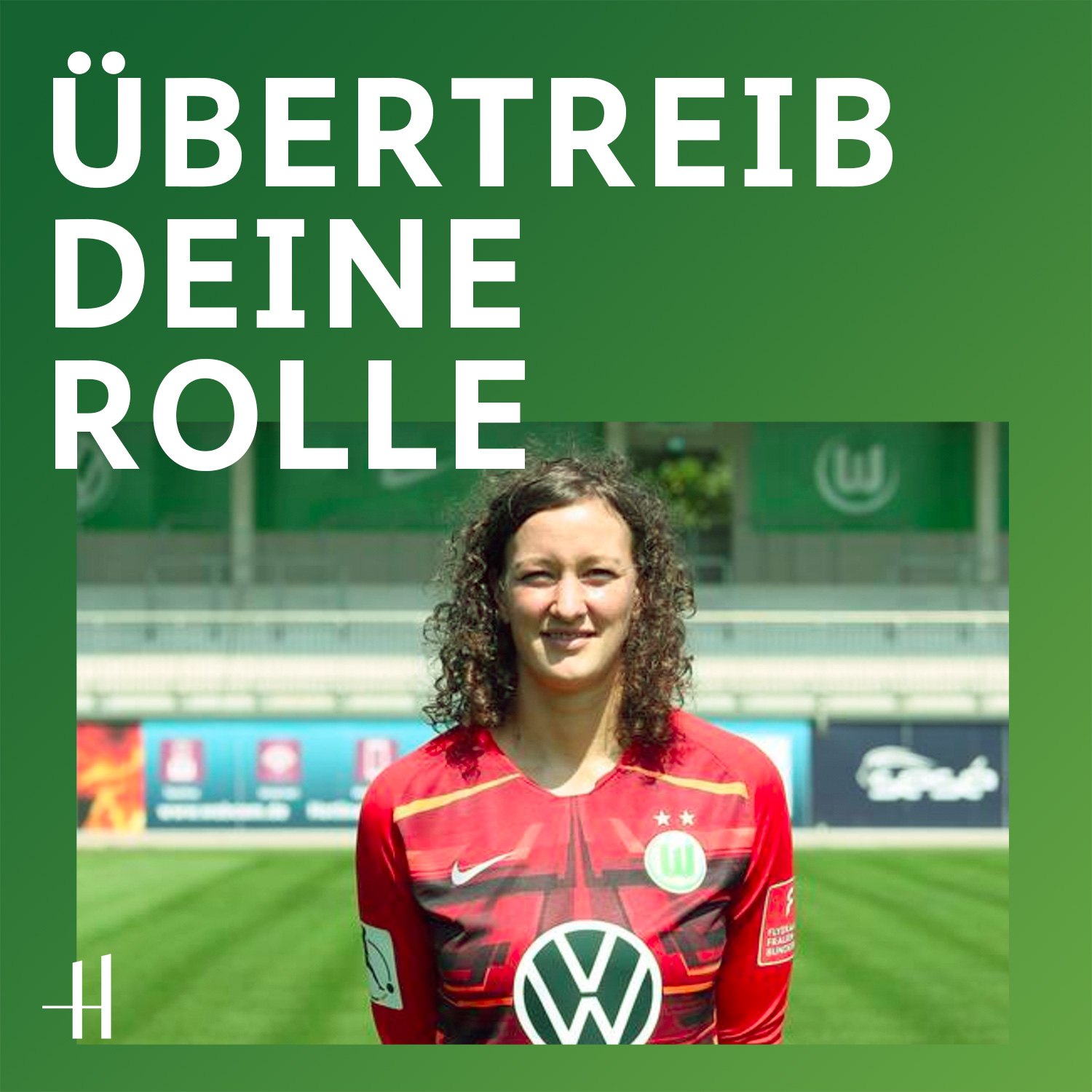 Übertreib deine RolleAlmuth Schult – Gleichberechtigung im FußballWie steht es um die Gleichberechtigung im Profi-Fußball? Rik spricht mit der DFB-Frauen Nationalspielerin und Torhüterin des VfL Wolfsburg Almuth Schult.
Warum bekommt Frauenfußball trotz großer Erfolge weniger Aufmerksamkeit? In Folge 1 des Podcast erforscht Reporter Rik, wie es um die Gleichberechtigung in einer vermeintlich absoluten Männerdomäne steht: dem Profi-Fußball. Dazu spricht er mit der DFB-Frauen Nationalspielerin und Torhüterin des VfL Wolfsburg Almuth Schult. Almuth kennt alle gängigen Klischees und widerlegt sie mühelos.
Mehr Podcasts der Hertie-Stiftung gibt es hier:
Beruf:Politik > https://berufpolitik.podigee.io/
Hertie-Interviews > https://hertie-int...2020-10-0721 min
Übertreib deine RolleAlmuth Schult – Gleichberechtigung im FußballWie steht es um die Gleichberechtigung im Profi-Fußball? Rik spricht mit der DFB-Frauen Nationalspielerin und Torhüterin des VfL Wolfsburg Almuth Schult.
Warum bekommt Frauenfußball trotz großer Erfolge weniger Aufmerksamkeit? In Folge 1 des Podcast erforscht Reporter Rik, wie es um die Gleichberechtigung in einer vermeintlich absoluten Männerdomäne steht: dem Profi-Fußball. Dazu spricht er mit der DFB-Frauen Nationalspielerin und Torhüterin des VfL Wolfsburg Almuth Schult. Almuth kennt alle gängigen Klischees und widerlegt sie mühelos.
Mehr Podcasts der Hertie-Stiftung gibt es hier:
Beruf:Politik > https://berufpolitik.podigee.io/
Hertie-Interviews > https://hertie-int...2020-10-0721 min Übertreib deine RolleÜbertreib deine Rolle – Worum geht's?Hier kommt was auf euch zu!
Trailer2020-10-0101 min
Übertreib deine RolleÜbertreib deine Rolle – Worum geht's?Hier kommt was auf euch zu!
Trailer2020-10-0101 min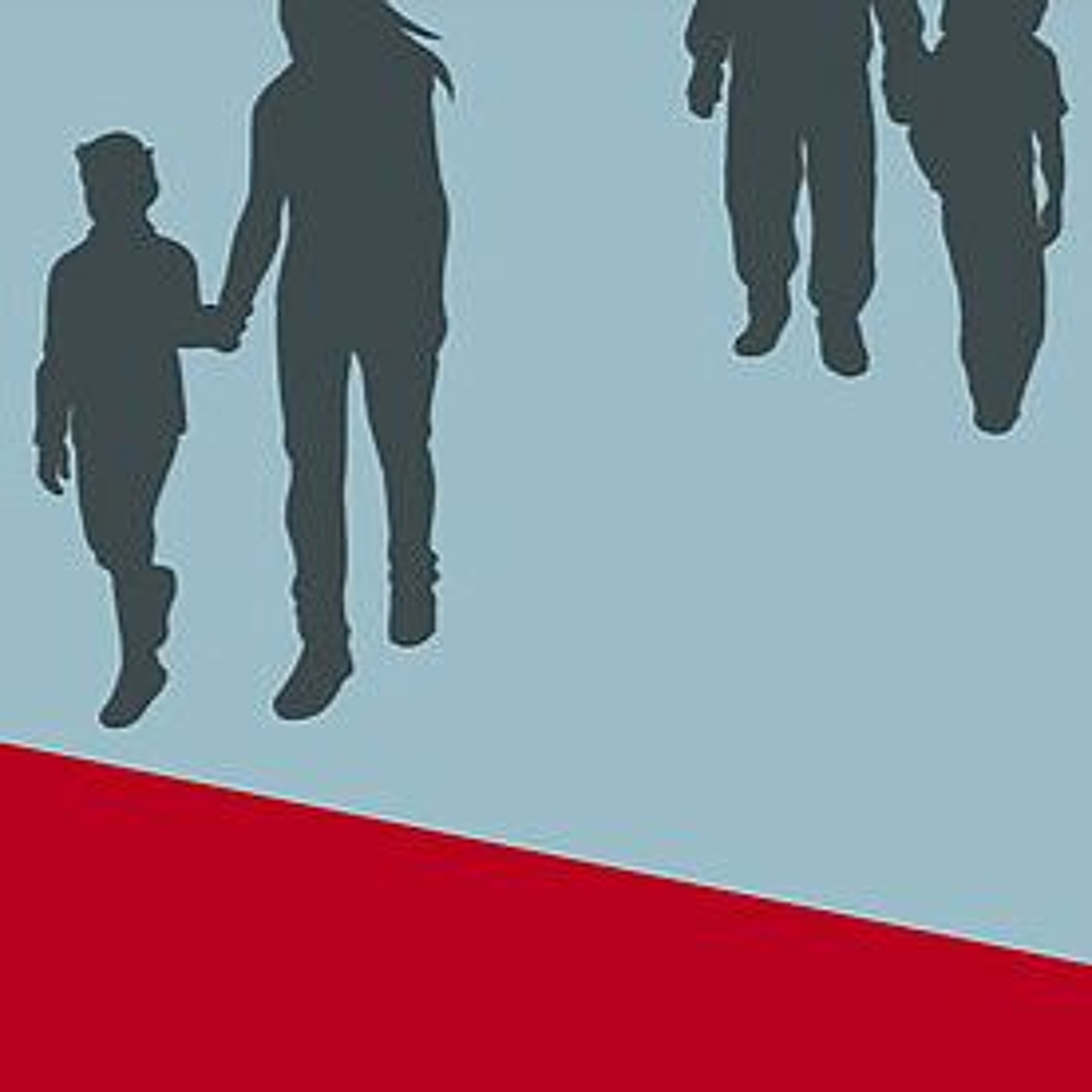 Hertie SchoolSpotlight on hotspots and the new EU Migration PactIn November 2019, the head of the EU Fundamental Rights Agency described the EU ‘hotspot’ in Moria, Lesbos, Greece, as “the single most worrying fundamental rights issue that we are confronting anywhere in the European Union.” An overcrowded place of confinement for those seeking refuge in the EU, it was destroyed in a devastating fire days ago, leaving nearly 13,000 men, women, and children without shelter or access to basic services.
In an apparently reaction to this tragedy, the European Commission brought forward the publication date of its new ‘Pact on Migration’ to Wed 23 September, with Commission President Von der Leyen promising ‘We'll take a h...2020-09-2555 min
Hertie SchoolSpotlight on hotspots and the new EU Migration PactIn November 2019, the head of the EU Fundamental Rights Agency described the EU ‘hotspot’ in Moria, Lesbos, Greece, as “the single most worrying fundamental rights issue that we are confronting anywhere in the European Union.” An overcrowded place of confinement for those seeking refuge in the EU, it was destroyed in a devastating fire days ago, leaving nearly 13,000 men, women, and children without shelter or access to basic services.
In an apparently reaction to this tragedy, the European Commission brought forward the publication date of its new ‘Pact on Migration’ to Wed 23 September, with Commission President Von der Leyen promising ‘We'll take a h...2020-09-2555 min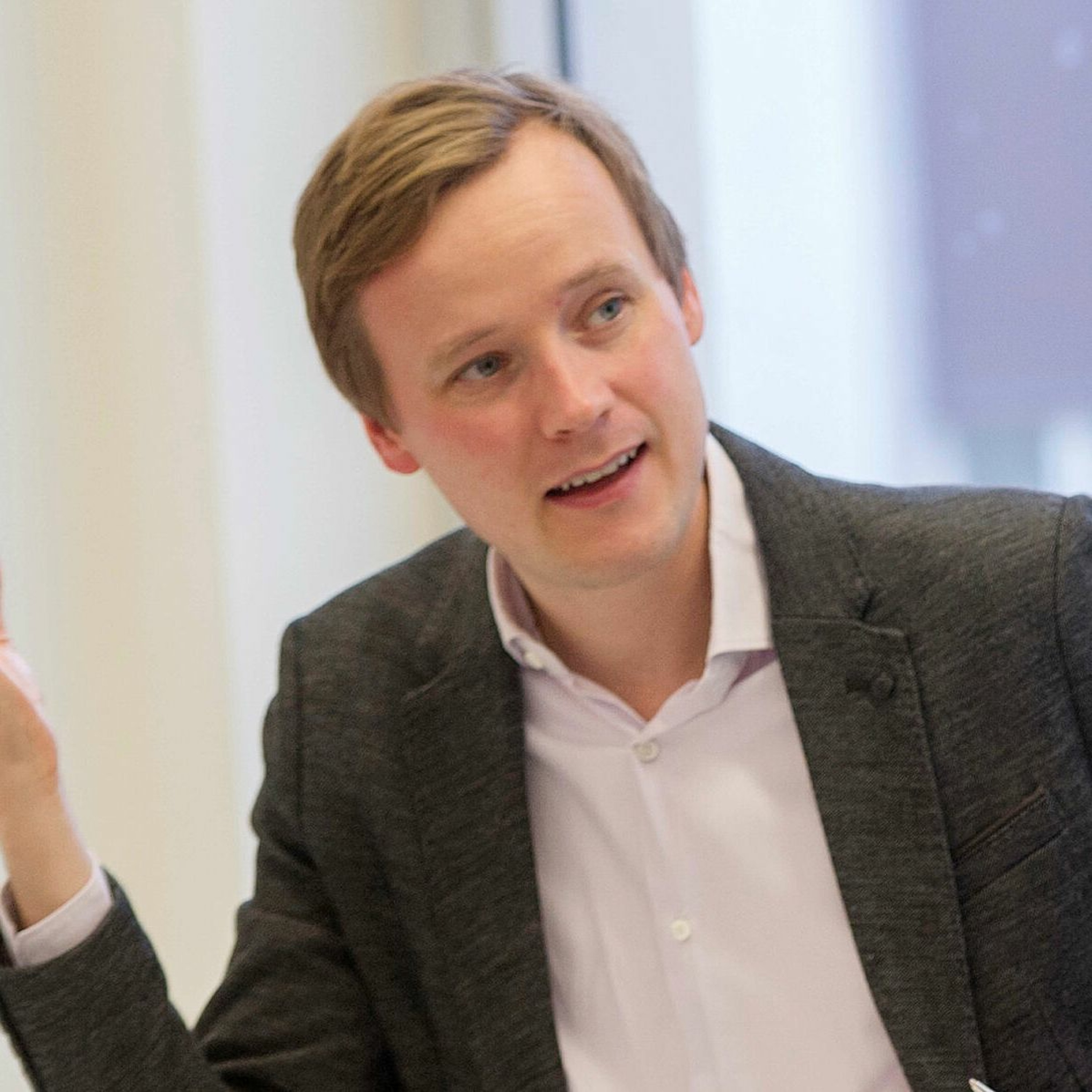 Hertie SchoolFundamental rights in EU policy-making: The effects and advantages of institutional diversityIn an online presentation on 20 May, Mark Dawson, Professor of European Law and Governance at the Hertie School, discussed how the EU’s political process affects the level of rights protection afforded by EU law. During the presentation the two stages of the political process affects were discussed: first, the analysis of how institutional politics plays an important role in the evolution of the EU fundamental rights framework, and second, an empiric display of how legislative interaction affects the level of protection provided by three important EU legislative acts.2020-05-2525 min
Hertie SchoolFundamental rights in EU policy-making: The effects and advantages of institutional diversityIn an online presentation on 20 May, Mark Dawson, Professor of European Law and Governance at the Hertie School, discussed how the EU’s political process affects the level of rights protection afforded by EU law. During the presentation the two stages of the political process affects were discussed: first, the analysis of how institutional politics plays an important role in the evolution of the EU fundamental rights framework, and second, an empiric display of how legislative interaction affects the level of protection provided by three important EU legislative acts.2020-05-2525 min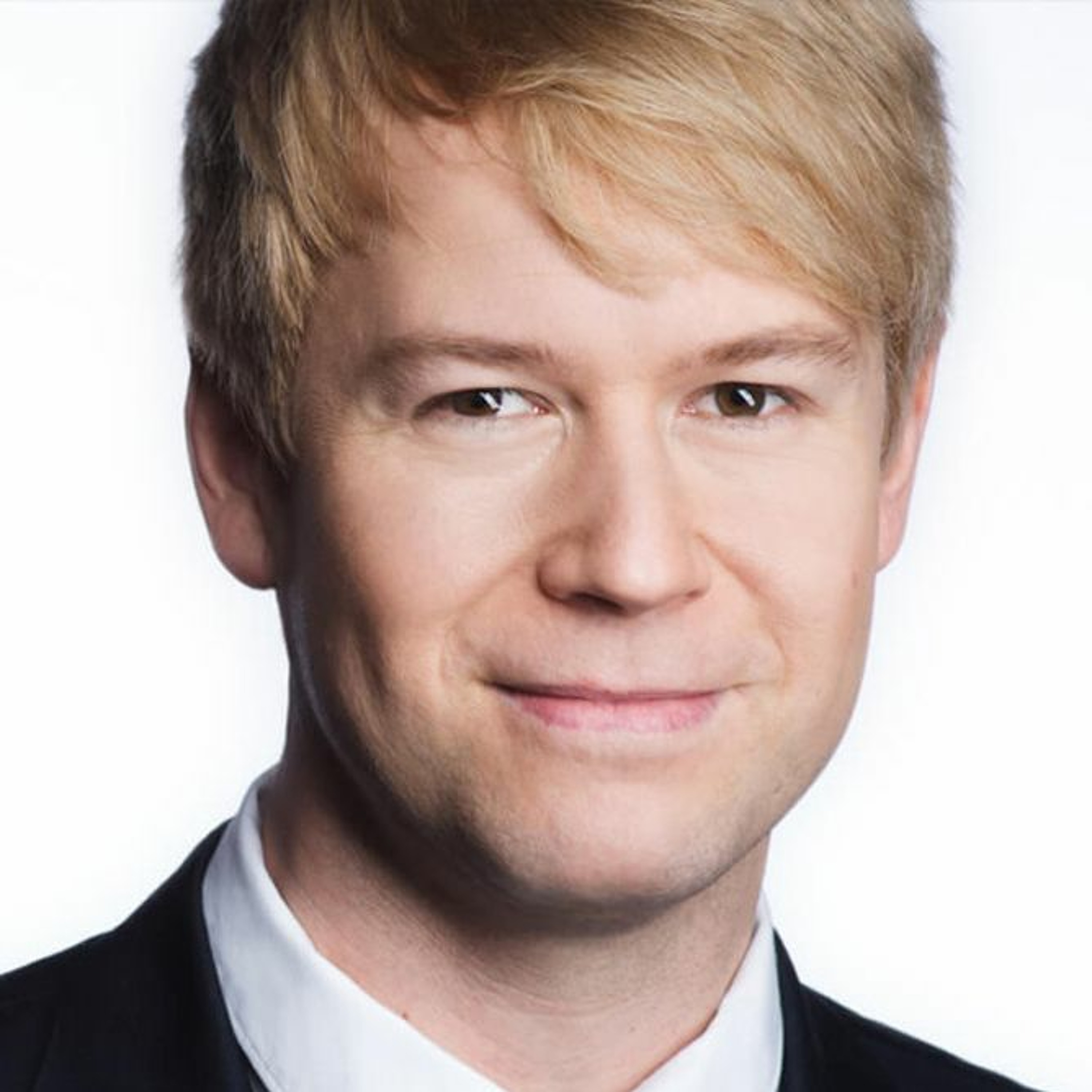 Hertie SchoolCovid-19 and the German ConstitutionHow far does the German constitution, compared to other legal orders, allow for fundamental rights to be restricted in times of crises? How far can the German State change its institutional set-up as well as its legislative procedure to adjust to crisis mode? Where are the constitutional limits to restrictions such as curfews, social distancing and forced closure of businesses and has the German State in its COVID-19 response observed them?
A presentation by Pierre Thielbörger (Ruhr University Bochum/Hertie School). This webinar is part of the Fundamental Rights Research colloquium hosted by the Centre for Fundamental Rights2020-05-0731 min
Hertie SchoolCovid-19 and the German ConstitutionHow far does the German constitution, compared to other legal orders, allow for fundamental rights to be restricted in times of crises? How far can the German State change its institutional set-up as well as its legislative procedure to adjust to crisis mode? Where are the constitutional limits to restrictions such as curfews, social distancing and forced closure of businesses and has the German State in its COVID-19 response observed them?
A presentation by Pierre Thielbörger (Ruhr University Bochum/Hertie School). This webinar is part of the Fundamental Rights Research colloquium hosted by the Centre for Fundamental Rights2020-05-0731 min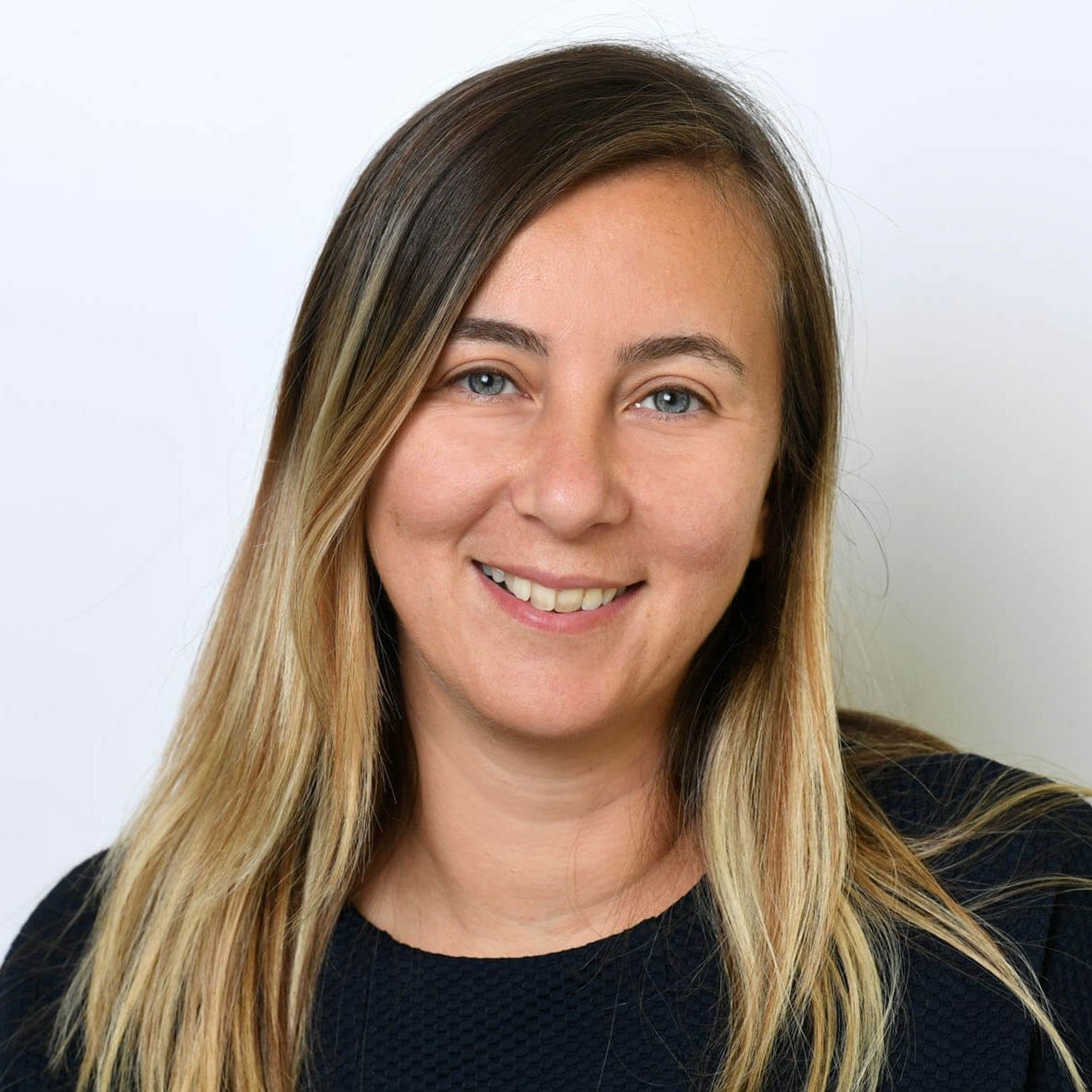 Hertie SchoolFundamental rights during and after the COVID-19 pandemicA webinar presentation by Başak Çalı, Professor of International Law and Director of the Centre for Fundamental Rights at the Hertie School.
Fundamental rights-based analysis offers an important legal and ethical yardstick to evaluate the responses of states to the COVID-19 pandemic: Have states around the world tackled the pandemic through rights-protecting and rights-respecting policies? Have they offered timely responses to protect the right to life of the populations at risk? Have they struck the right balance between competing rights at stake, such as the right to health and right to life versus the right to privacy, social and eco...2020-04-2332 min
Hertie SchoolFundamental rights during and after the COVID-19 pandemicA webinar presentation by Başak Çalı, Professor of International Law and Director of the Centre for Fundamental Rights at the Hertie School.
Fundamental rights-based analysis offers an important legal and ethical yardstick to evaluate the responses of states to the COVID-19 pandemic: Have states around the world tackled the pandemic through rights-protecting and rights-respecting policies? Have they offered timely responses to protect the right to life of the populations at risk? Have they struck the right balance between competing rights at stake, such as the right to health and right to life versus the right to privacy, social and eco...2020-04-2332 min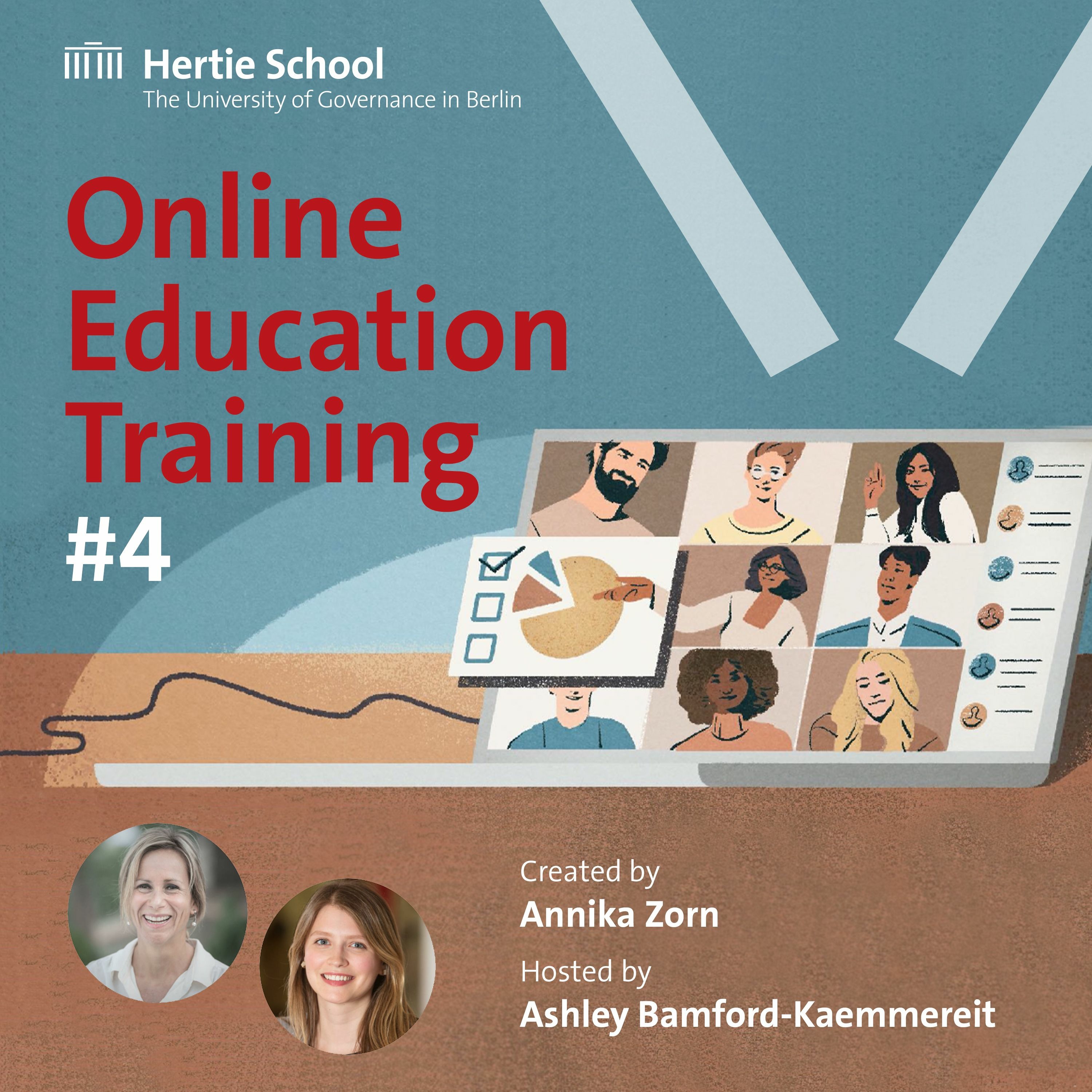 Hertie SchoolWhat are the positive aspects of moving online? | Online Education Training Series #4In Episode 4 of our Hertie School Online Education Training Series, we talk about why it can be a good thing to be online and take the innovation with us back on campus
This podcast series is created by Annika Zorn, Director Digital Learning and PhD Programmes at the Hertie School. Annika is the founder of the Florence Online School of Regulation, trainer of early-career researchers in teaching at the higher education level and trainer of professional trainers. She is editor and author of the book "Higher Eduction in the Digital Age" (links below) with Jeff Haywood and Jean-Michel Glachant (open-access...2020-04-1504 min
Hertie SchoolWhat are the positive aspects of moving online? | Online Education Training Series #4In Episode 4 of our Hertie School Online Education Training Series, we talk about why it can be a good thing to be online and take the innovation with us back on campus
This podcast series is created by Annika Zorn, Director Digital Learning and PhD Programmes at the Hertie School. Annika is the founder of the Florence Online School of Regulation, trainer of early-career researchers in teaching at the higher education level and trainer of professional trainers. She is editor and author of the book "Higher Eduction in the Digital Age" (links below) with Jeff Haywood and Jean-Michel Glachant (open-access...2020-04-1504 min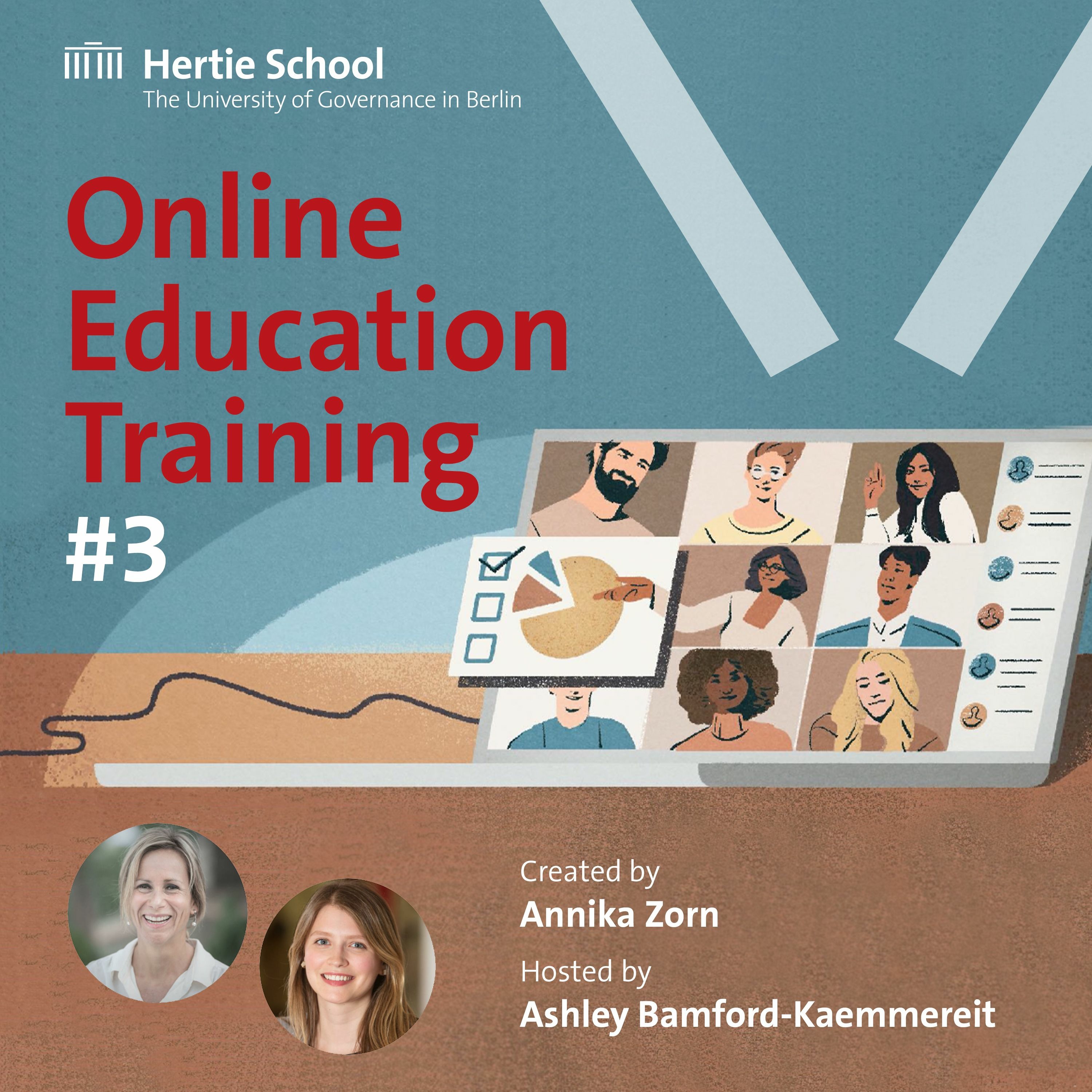 Hertie SchoolOut of sight, out of mind. How to stay in touch. | Online Education Training Series #3In Episode 3 of our Online Education Training Series, we talk about how to stay in touch with your students.
+++ Formative feedback to get a better insight into what is happening in class +++
In your course, you assess the learning of your students - often at the end of the semester or, for example, as a mid-term exam. Students might have to give a presentation or submit other graded assignments. These types of graded assessments that give a summary of what a student has learned are called ‘summative feedback’.
A second type of feedback is called ‘formative feedback’ and is usually not grad...2020-04-0604 min
Hertie SchoolOut of sight, out of mind. How to stay in touch. | Online Education Training Series #3In Episode 3 of our Online Education Training Series, we talk about how to stay in touch with your students.
+++ Formative feedback to get a better insight into what is happening in class +++
In your course, you assess the learning of your students - often at the end of the semester or, for example, as a mid-term exam. Students might have to give a presentation or submit other graded assignments. These types of graded assessments that give a summary of what a student has learned are called ‘summative feedback’.
A second type of feedback is called ‘formative feedback’ and is usually not grad...2020-04-0604 min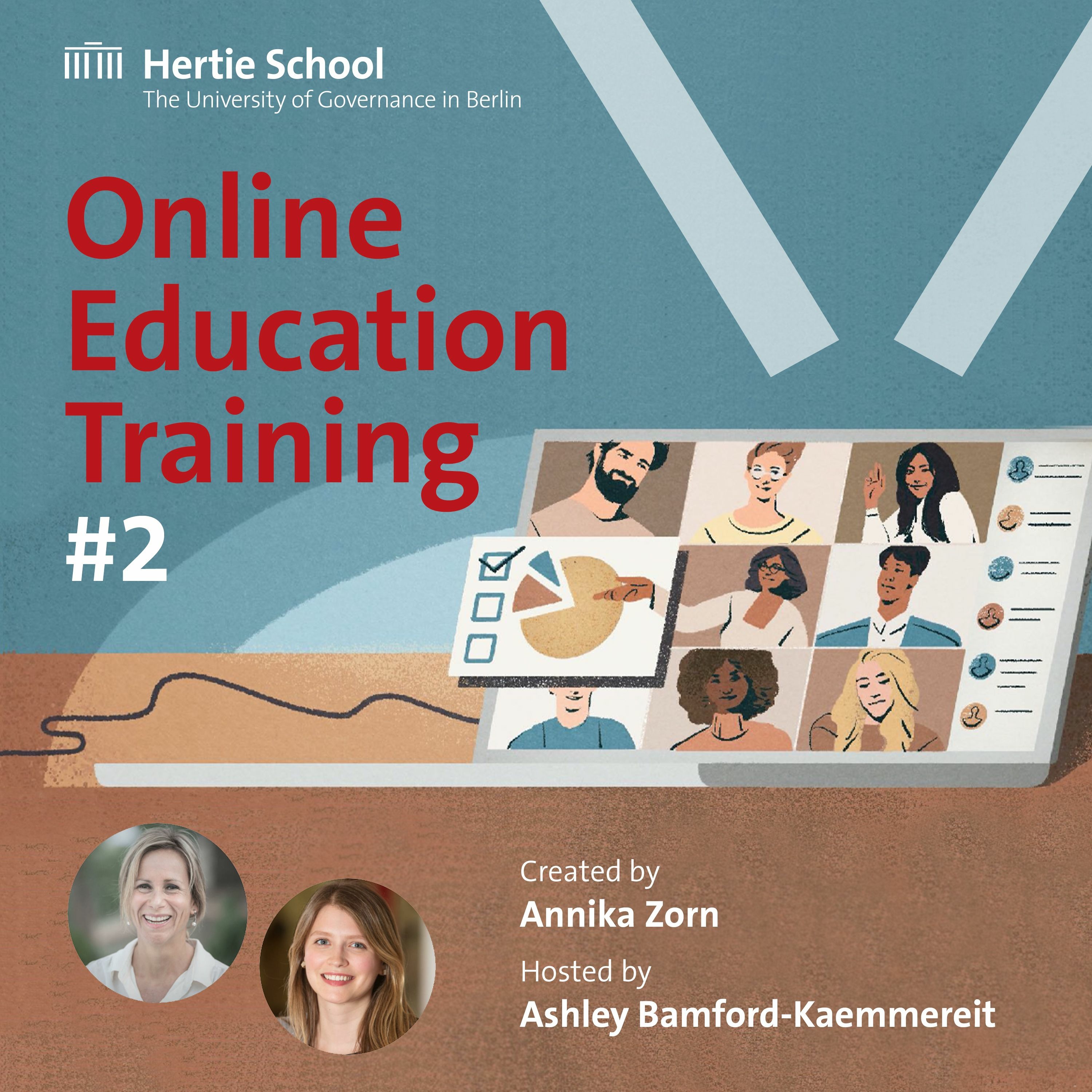 Hertie SchoolWhy it is a good idea to pre-record your lecture | Online Education Training Series #2In Episode 2 of our Hertie School Online Education Training Series, we talk about why it is a good idea to pre-record your lecture (anyway).
+++ Tools and ideas in this podcast +++
Warm-up your voice before you start recording your lecture:
Many professional speakers use tongue twisters to do so. Find some examples here that warm up your voice and mouth for different sounds: https://www.ef.com/wwen/english-resources/tongue-twisters-english/
Recording a slide presentation:
PowerPoint has a powerful built-in recording tool. This video from Microsoft explains how it works: https://support.office.com/en-us/article/record-a-slide-show-with-narration-and-slide-timings-0b9502c6-5f6c-40...2020-04-0606 min
Hertie SchoolWhy it is a good idea to pre-record your lecture | Online Education Training Series #2In Episode 2 of our Hertie School Online Education Training Series, we talk about why it is a good idea to pre-record your lecture (anyway).
+++ Tools and ideas in this podcast +++
Warm-up your voice before you start recording your lecture:
Many professional speakers use tongue twisters to do so. Find some examples here that warm up your voice and mouth for different sounds: https://www.ef.com/wwen/english-resources/tongue-twisters-english/
Recording a slide presentation:
PowerPoint has a powerful built-in recording tool. This video from Microsoft explains how it works: https://support.office.com/en-us/article/record-a-slide-show-with-narration-and-slide-timings-0b9502c6-5f6c-40...2020-04-0606 min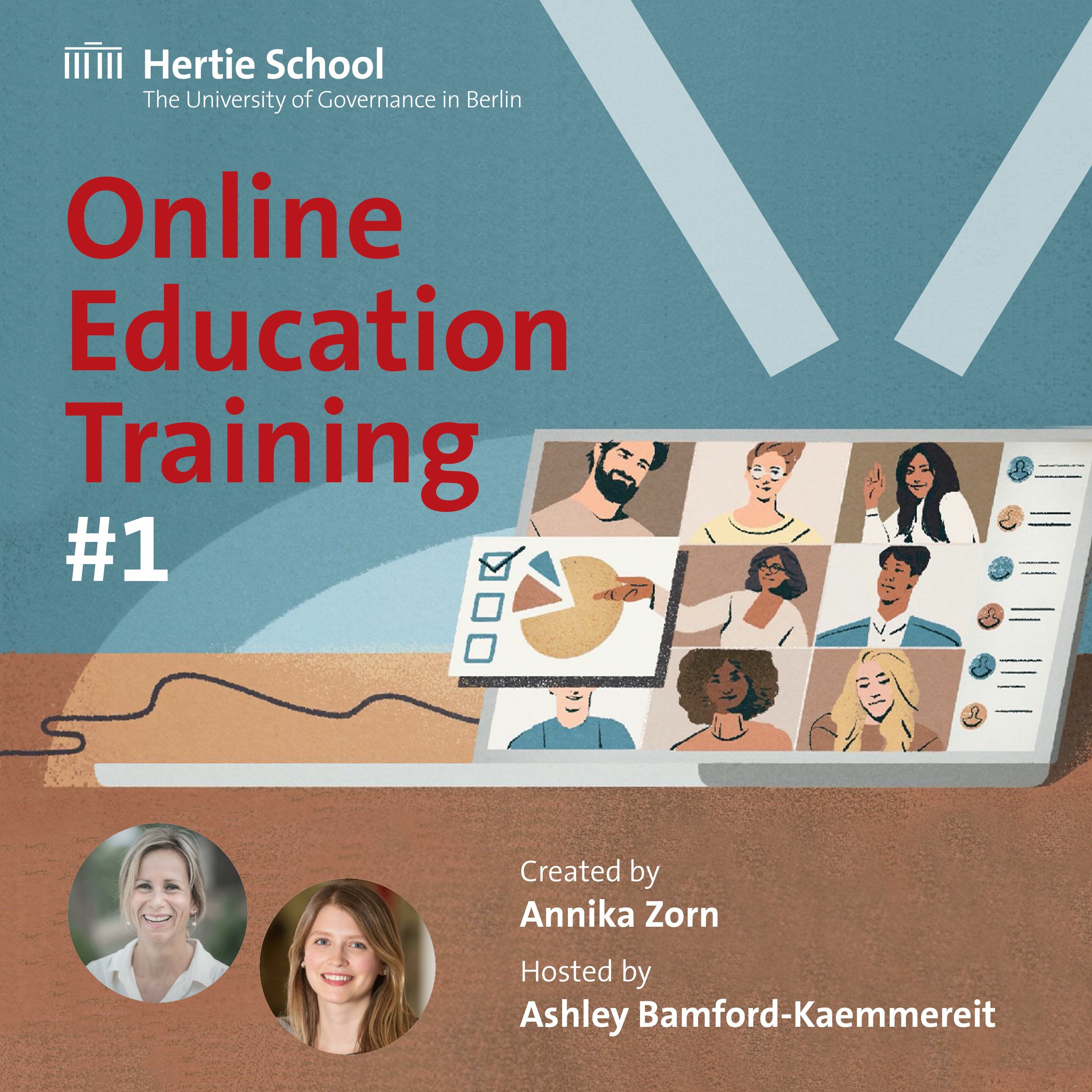 Hertie SchoolGetting your online class off the ground | Online Education Training Series #1In Episode 1 of our Hertie School Online Education Training Series, we talk about why your first class online might be especially challenging.
+++ Tools and ideas in this podcast +++
Create a word cloud in your first class to see where people are connecting from and share it on the main screen. Two tools you can use to do that:
- PollEveryWhere: https://www.polleverywhere.com/word-cloud
- Answergarden: https://answergarden.ch/
This podcast series is created by Annika Zorn, Director Digital Learning and PhD Programmes at the Hertie School. Annika is the founder of the Florence Online School of Regulation, trainer...2020-04-0603 min
Hertie SchoolGetting your online class off the ground | Online Education Training Series #1In Episode 1 of our Hertie School Online Education Training Series, we talk about why your first class online might be especially challenging.
+++ Tools and ideas in this podcast +++
Create a word cloud in your first class to see where people are connecting from and share it on the main screen. Two tools you can use to do that:
- PollEveryWhere: https://www.polleverywhere.com/word-cloud
- Answergarden: https://answergarden.ch/
This podcast series is created by Annika Zorn, Director Digital Learning and PhD Programmes at the Hertie School. Annika is the founder of the Florence Online School of Regulation, trainer...2020-04-0603 min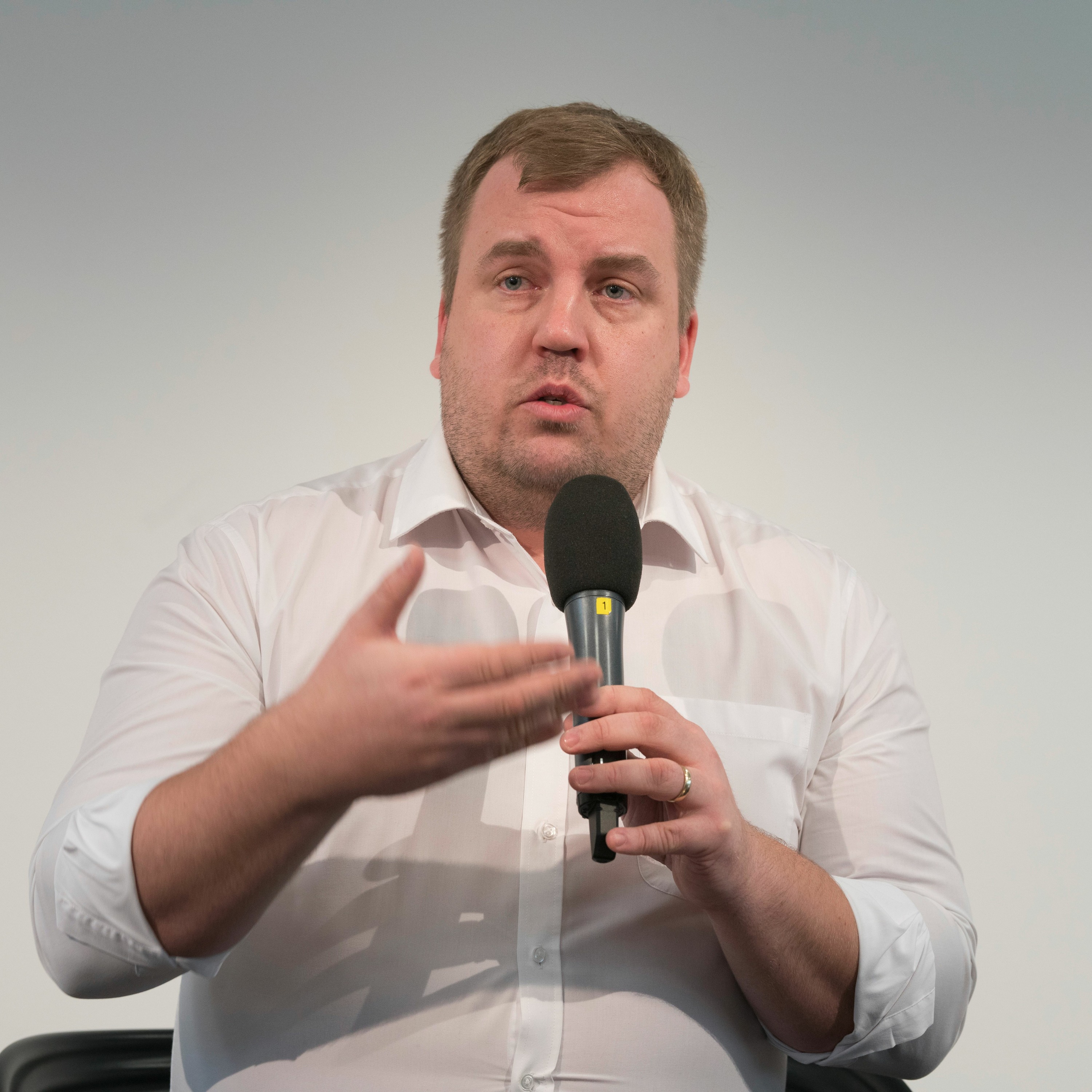 Hertie SchoolThe next state of digital public services: Experiences from EstoniaEstonian govt CIO Siim Sikkut and Gerhard Hammerschmid discuss Estonia’s digital transformation.
Siim Sikkut, the Republic of Estonia's Chief Information Officer and Gerhard Hammerschmid, Professor of Public and Financial Management and Director of the Hertie School Centre for Digital Governance discussed on 11 March what lessons Germany and other countries might draw from Estonia's digital transformation of its public administration. Their discussion is available as a podcast.
After a series of extensive reforms over the last decade, Estonia has become one of the most advanced digital societies in the world. Recently, Estonia also presented its vision of how public services sh...2020-03-121h 28
Hertie SchoolThe next state of digital public services: Experiences from EstoniaEstonian govt CIO Siim Sikkut and Gerhard Hammerschmid discuss Estonia’s digital transformation.
Siim Sikkut, the Republic of Estonia's Chief Information Officer and Gerhard Hammerschmid, Professor of Public and Financial Management and Director of the Hertie School Centre for Digital Governance discussed on 11 March what lessons Germany and other countries might draw from Estonia's digital transformation of its public administration. Their discussion is available as a podcast.
After a series of extensive reforms over the last decade, Estonia has become one of the most advanced digital societies in the world. Recently, Estonia also presented its vision of how public services sh...2020-03-121h 28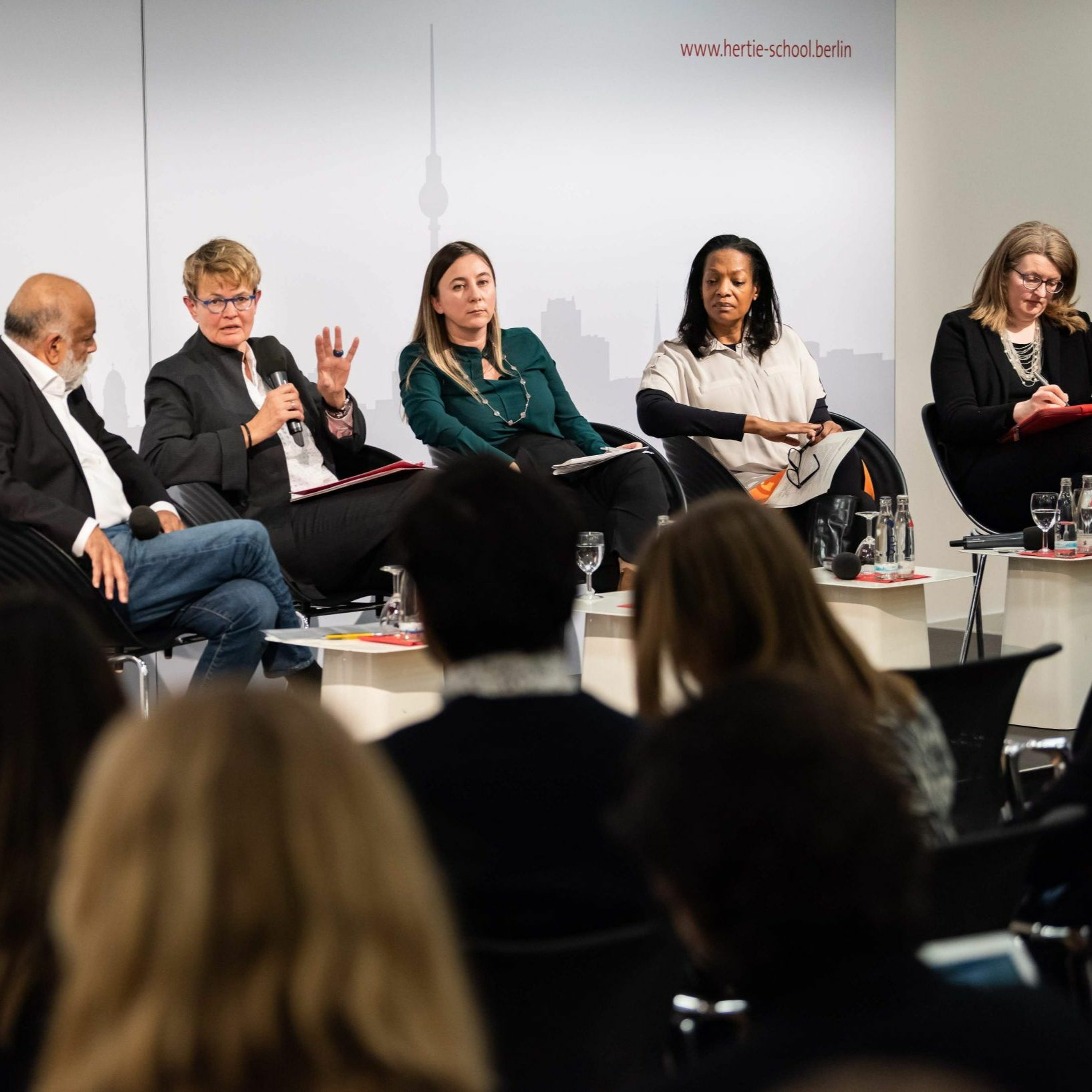 Hertie SchoolCentre for Fundamental Rights: Are fundamental rights losing or gaining ground?Global trends suggest that norms and institutions of fundamental rights are losing ground. Many governments and political movements explicitly deny fundamental rights' primacy, and some even violate them with impunity. Some political actors and scholars question the centrality and utility of fundamental rights, claiming that they undermine other values such as security, cultural identity, economic development and social justice.
Yet there remain strong voices who insist that fundamental rights have a vital role in addressing new and enduring challenges – migration, the climate crisis and new technologies, to name a few. Such rights are embedded in the very ethos of courts, hu...2020-02-211h 27
Hertie SchoolCentre for Fundamental Rights: Are fundamental rights losing or gaining ground?Global trends suggest that norms and institutions of fundamental rights are losing ground. Many governments and political movements explicitly deny fundamental rights' primacy, and some even violate them with impunity. Some political actors and scholars question the centrality and utility of fundamental rights, claiming that they undermine other values such as security, cultural identity, economic development and social justice.
Yet there remain strong voices who insist that fundamental rights have a vital role in addressing new and enduring challenges – migration, the climate crisis and new technologies, to name a few. Such rights are embedded in the very ethos of courts, hu...2020-02-211h 27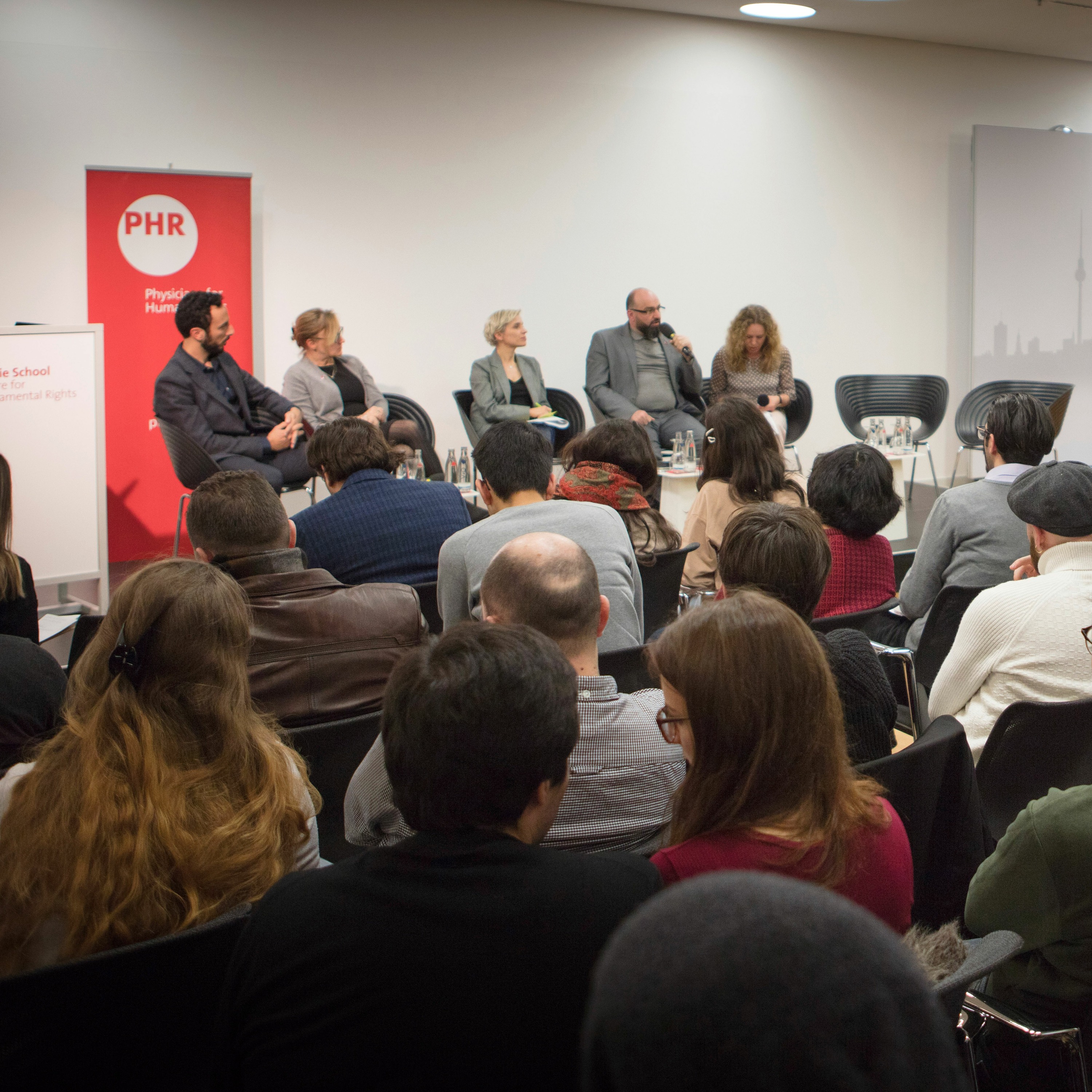 Hertie SchoolThe arrest, detention, and torture of health workers by the Syrian governmentPanel discusses findings of the Physicians for Human Rights report at Centre for Fundamental Rights event.
Physicians for Human Rights (PHR) presented research into the arrest, detention, and torture of health workers by the Syrian government at an event on 4 December hosted by the Hertie School Centre for Fundamental Rights. The report, “'My only crime was that I was a doctor': How the Syrian government targets health workers for arrest, detention, and torture", was part of a discussion on accountability for violations of human rights and international humanitarian law during the Syrian conflict, as currently being considered by international and na...2019-12-091h 25
Hertie SchoolThe arrest, detention, and torture of health workers by the Syrian governmentPanel discusses findings of the Physicians for Human Rights report at Centre for Fundamental Rights event.
Physicians for Human Rights (PHR) presented research into the arrest, detention, and torture of health workers by the Syrian government at an event on 4 December hosted by the Hertie School Centre for Fundamental Rights. The report, “'My only crime was that I was a doctor': How the Syrian government targets health workers for arrest, detention, and torture", was part of a discussion on accountability for violations of human rights and international humanitarian law during the Syrian conflict, as currently being considered by international and na...2019-12-091h 25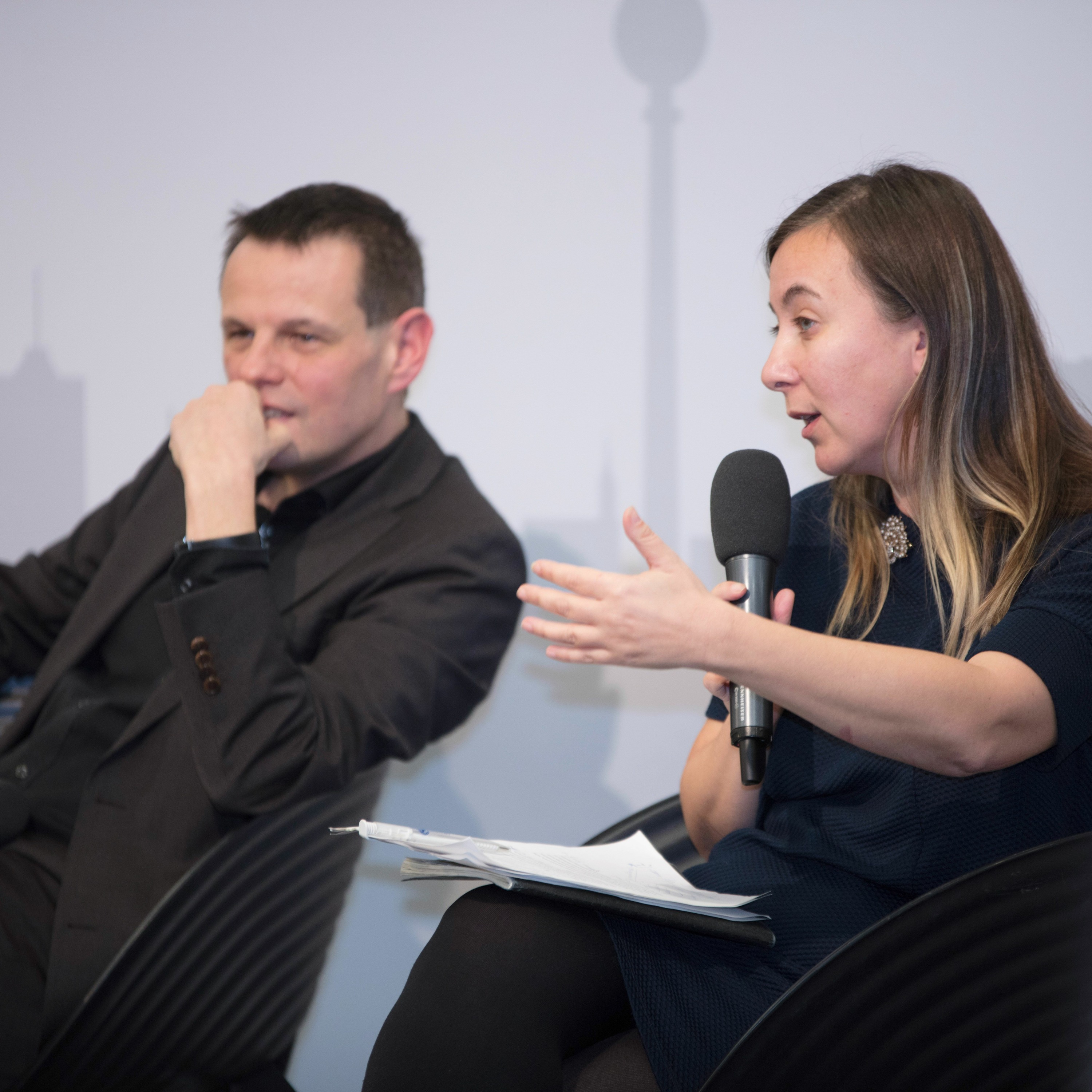 Hertie SchoolSquaring the circle? Fundamental right to a minimum standard of living and welfare conditionalityA discussion following the German Federal Constitutional Court’s decision on 5 November 2019 declaring the sanctions imposed on recipients of unemployment benefits in part unconstitutional.
Hosted by the Hertie School Centre for Fundamental Rights.
The “Hartz IV” German labour market reform of 2005 has long been controversial - in particular, placing conditions on welfare recipients to receive benefits. Recipients of the standard welfare benefits in Germany can see their benefits reduced by 30%, if they refuse to take up or continue an employment opportunity with the possibility of a further reduction of 60%. Benefits can also be suspend in full if they grossly fail their...2019-12-031h 00
Hertie SchoolSquaring the circle? Fundamental right to a minimum standard of living and welfare conditionalityA discussion following the German Federal Constitutional Court’s decision on 5 November 2019 declaring the sanctions imposed on recipients of unemployment benefits in part unconstitutional.
Hosted by the Hertie School Centre for Fundamental Rights.
The “Hartz IV” German labour market reform of 2005 has long been controversial - in particular, placing conditions on welfare recipients to receive benefits. Recipients of the standard welfare benefits in Germany can see their benefits reduced by 30%, if they refuse to take up or continue an employment opportunity with the possibility of a further reduction of 60%. Benefits can also be suspend in full if they grossly fail their...2019-12-031h 00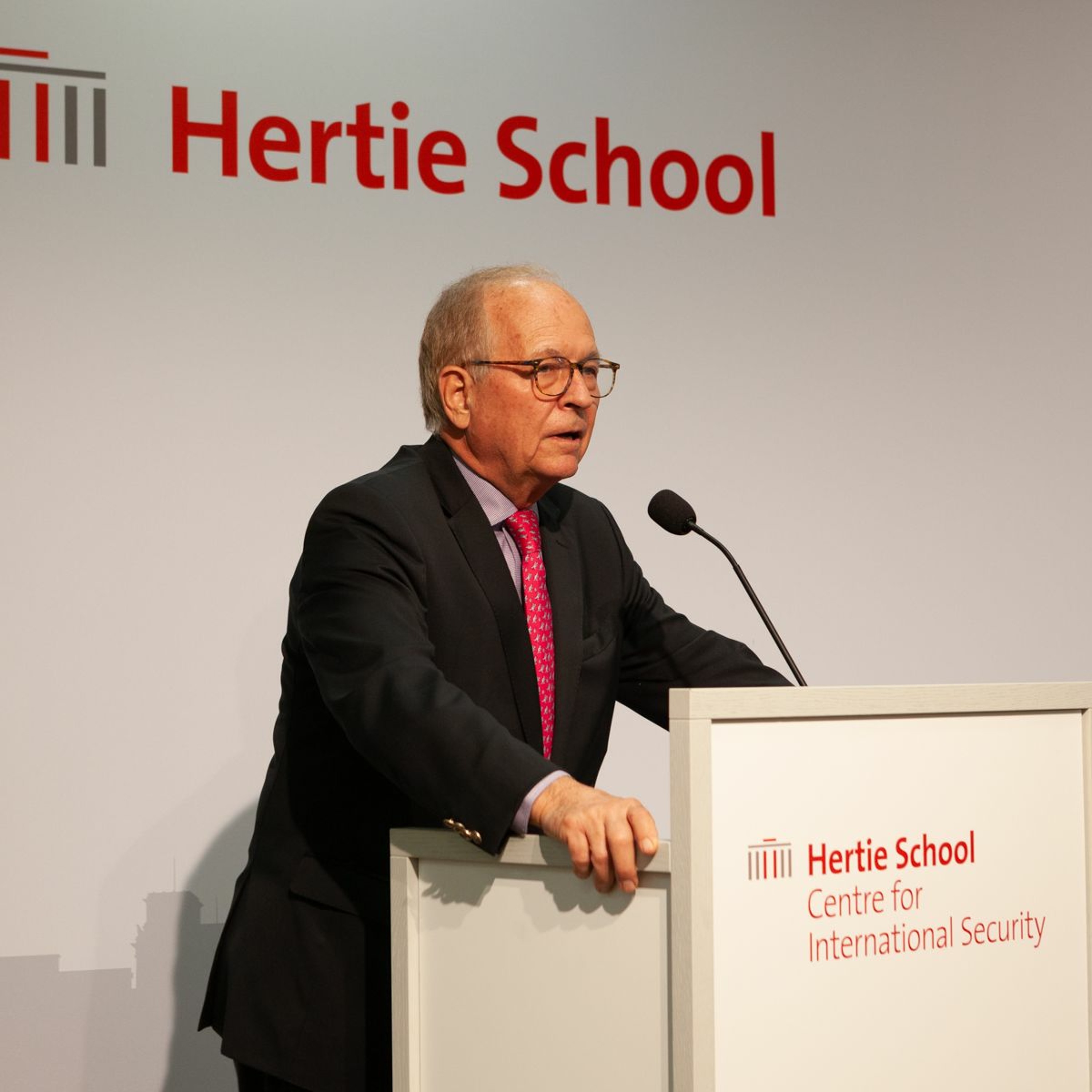 Hertie SchoolSecurity and climate change: Fixing the missing links?Climate change is increasingly considered a security threat with potentially far-reaching implications for the geostrategic environment. Through large-scale migration, increased border tensions, and greater demands for rescue and evacuation efforts, climate change potentially impacts the individual security of people and the viability of vulnerable states to an extent that exceeds existing disaster-response capabilities. As a result, Germany has announced that one focus of its membership in the United Nations Security Council will be on climate related security risks.
Links to climate change have slowly started to enter UN resolutions in recent years, but there is still controversy about the extent...2019-11-141h 13
Hertie SchoolSecurity and climate change: Fixing the missing links?Climate change is increasingly considered a security threat with potentially far-reaching implications for the geostrategic environment. Through large-scale migration, increased border tensions, and greater demands for rescue and evacuation efforts, climate change potentially impacts the individual security of people and the viability of vulnerable states to an extent that exceeds existing disaster-response capabilities. As a result, Germany has announced that one focus of its membership in the United Nations Security Council will be on climate related security risks.
Links to climate change have slowly started to enter UN resolutions in recent years, but there is still controversy about the extent...2019-11-141h 13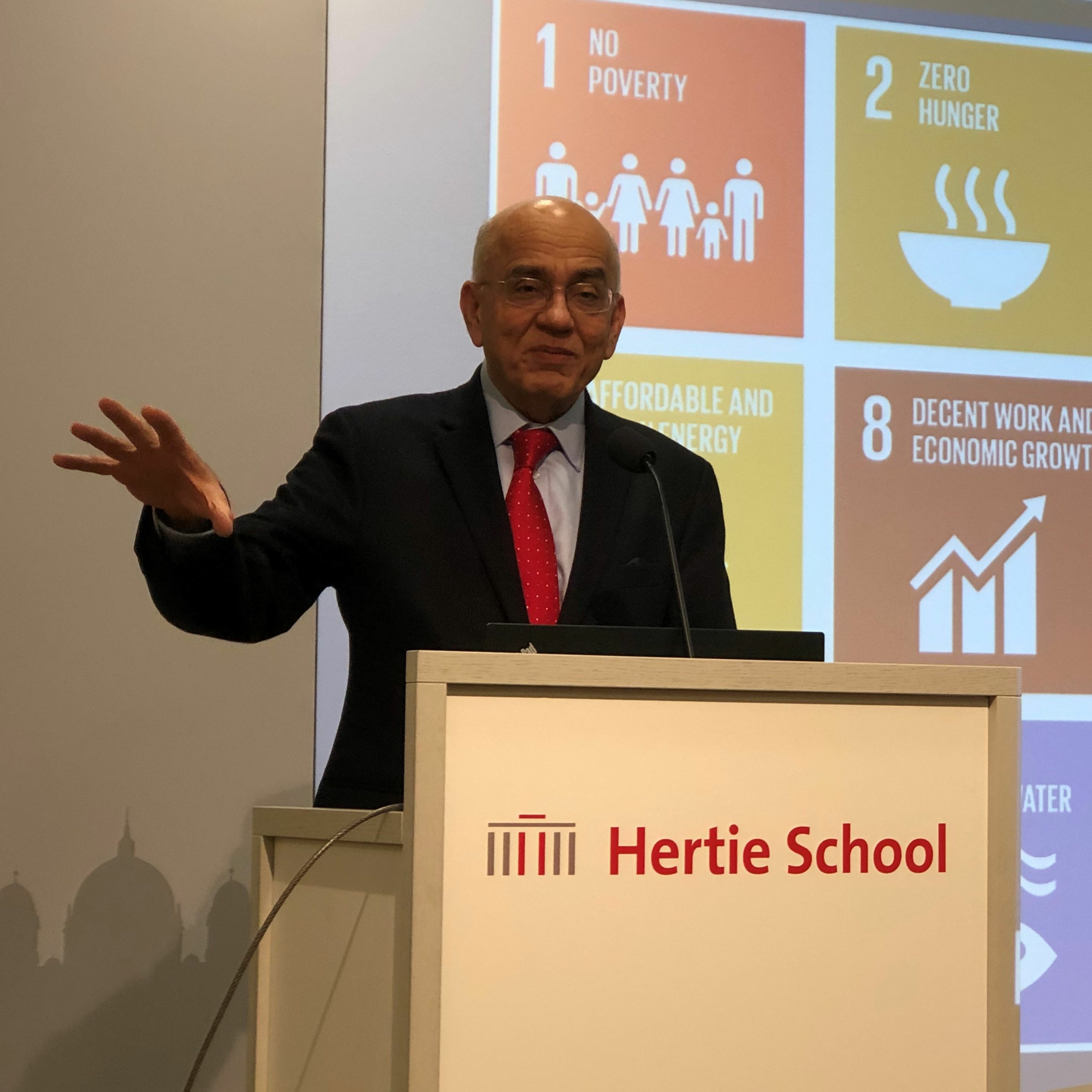 Hertie SchoolClosing the SDG financing gapKeynote and discussion with Masood Ahmed, President of the Center for Global Development.
Major constraints to achieving the Sustainable Development Goals (SDGs) include limited financing, inadequate infrastructure, poor quality institutions, and social norms. In this talk, Masood Ahmed focuses on the financing challenges related to achieving the SDGs. He discusses the low levels of private investment that have thus far been mobilised, challenges related to domestic resource mobilisation, and debt sustainability issues. Against this backdrop, he examines the key issue of how development finance institutions and developing countries can make progress in achieving the SDGs.
More about this event: https...2019-11-041h 36
Hertie SchoolClosing the SDG financing gapKeynote and discussion with Masood Ahmed, President of the Center for Global Development.
Major constraints to achieving the Sustainable Development Goals (SDGs) include limited financing, inadequate infrastructure, poor quality institutions, and social norms. In this talk, Masood Ahmed focuses on the financing challenges related to achieving the SDGs. He discusses the low levels of private investment that have thus far been mobilised, challenges related to domestic resource mobilisation, and debt sustainability issues. Against this backdrop, he examines the key issue of how development finance institutions and developing countries can make progress in achieving the SDGs.
More about this event: https...2019-11-041h 36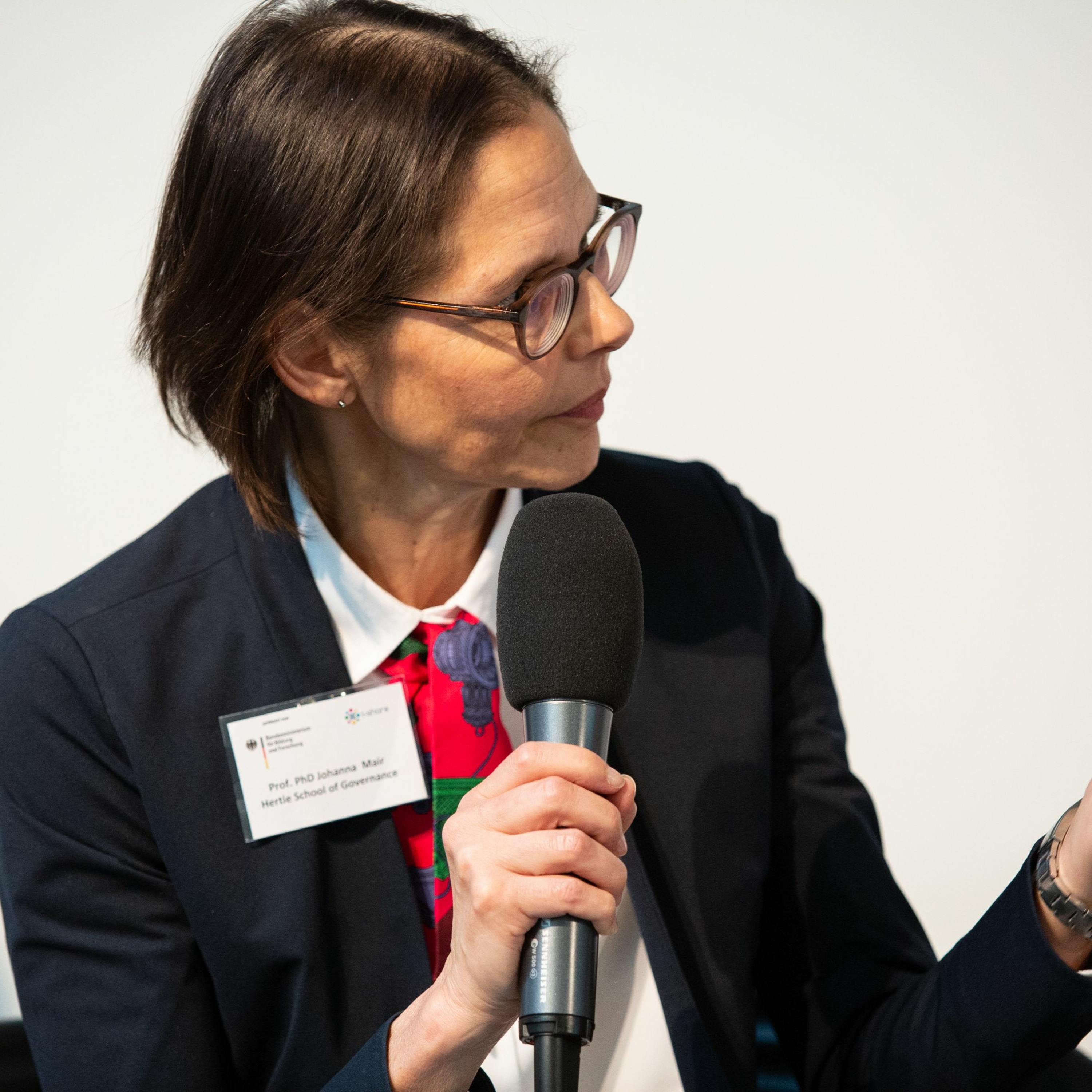 Hertie SchoolWhy do some ideas catch on? Johanna Mair examines systemic power in fields.Why do some ideas take hold in fields and become standard practice while others are passed over and forgotten? What happened to these ideas that were “lost” along the way and may have pointed to an alternative path, one that was not necessarily wrong or bad? Hertie School Professor of Organization, Strategy and Leadership Johanna Mair and co-authors look at how forms of systemic power arise in a particular field, using the field of impact investing as a lens, in new research forthcoming in the Academy of Management Journal and available online as of September 2019.
More about this research: https://www...2019-10-2911 min
Hertie SchoolWhy do some ideas catch on? Johanna Mair examines systemic power in fields.Why do some ideas take hold in fields and become standard practice while others are passed over and forgotten? What happened to these ideas that were “lost” along the way and may have pointed to an alternative path, one that was not necessarily wrong or bad? Hertie School Professor of Organization, Strategy and Leadership Johanna Mair and co-authors look at how forms of systemic power arise in a particular field, using the field of impact investing as a lens, in new research forthcoming in the Academy of Management Journal and available online as of September 2019.
More about this research: https://www...2019-10-2911 min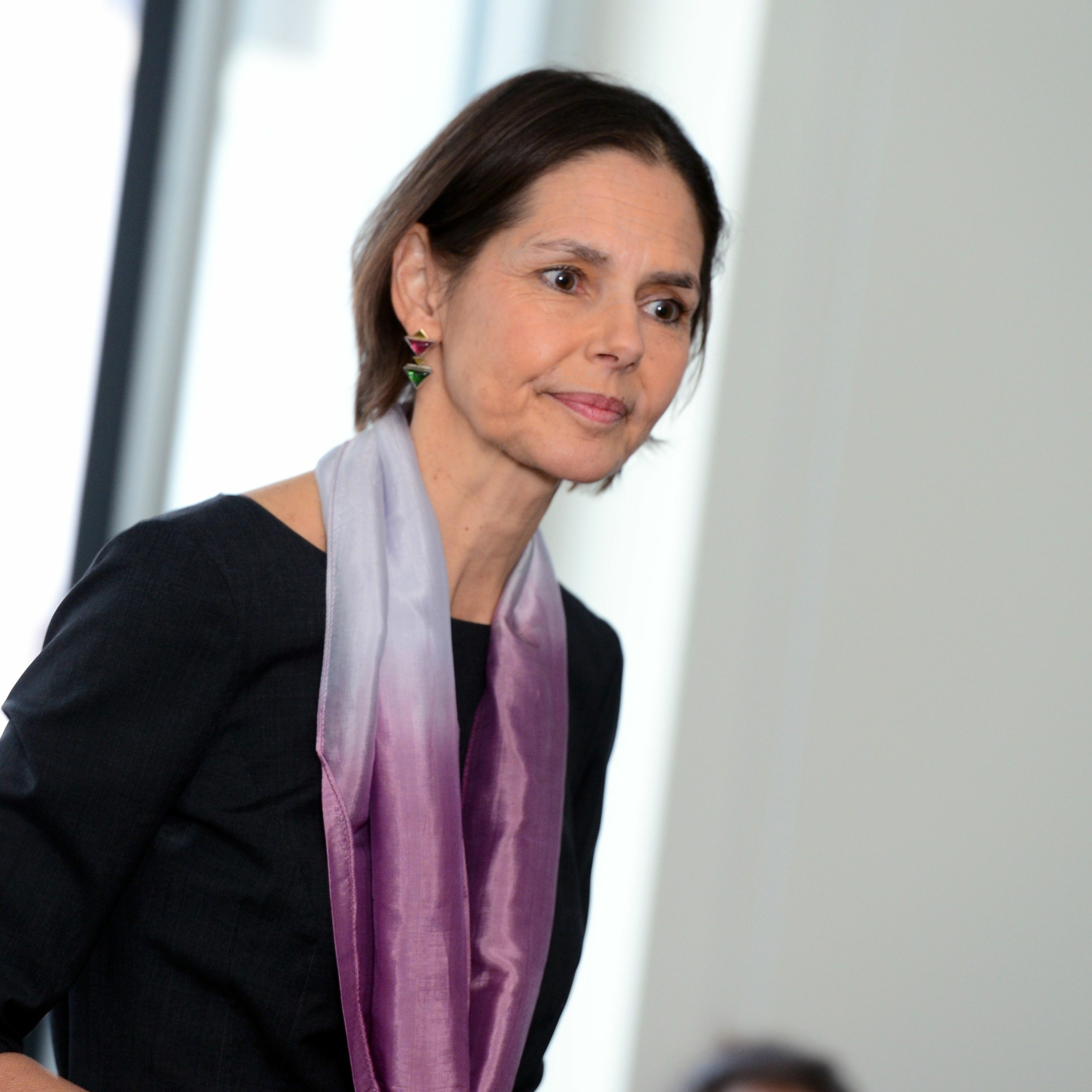 Hertie SchoolOrganising in and for society — Johanna Mair on social innovation and "wicked problems"How do you solve some of the world's most "wicked problems"? In her keynote on social innovation at the Hertie School's 2019/2020 Opening of the Academic Year, Johanna Mair, Professor for Organization, Strategy and Leadership, discusses insights from her research. Social innovation on its own is not enough to solve these big world problems, she says. Instead, we need "scaling" to really make an impact. Read about what her decade-long research in the field has uncovered.
More about Johanna Mair: https://www.hertie-school.org/en/research/faculty-and-researchers/profile/person/mair/2019-09-0637 min
Hertie SchoolOrganising in and for society — Johanna Mair on social innovation and "wicked problems"How do you solve some of the world's most "wicked problems"? In her keynote on social innovation at the Hertie School's 2019/2020 Opening of the Academic Year, Johanna Mair, Professor for Organization, Strategy and Leadership, discusses insights from her research. Social innovation on its own is not enough to solve these big world problems, she says. Instead, we need "scaling" to really make an impact. Read about what her decade-long research in the field has uncovered.
More about Johanna Mair: https://www.hertie-school.org/en/research/faculty-and-researchers/profile/person/mair/2019-09-0637 min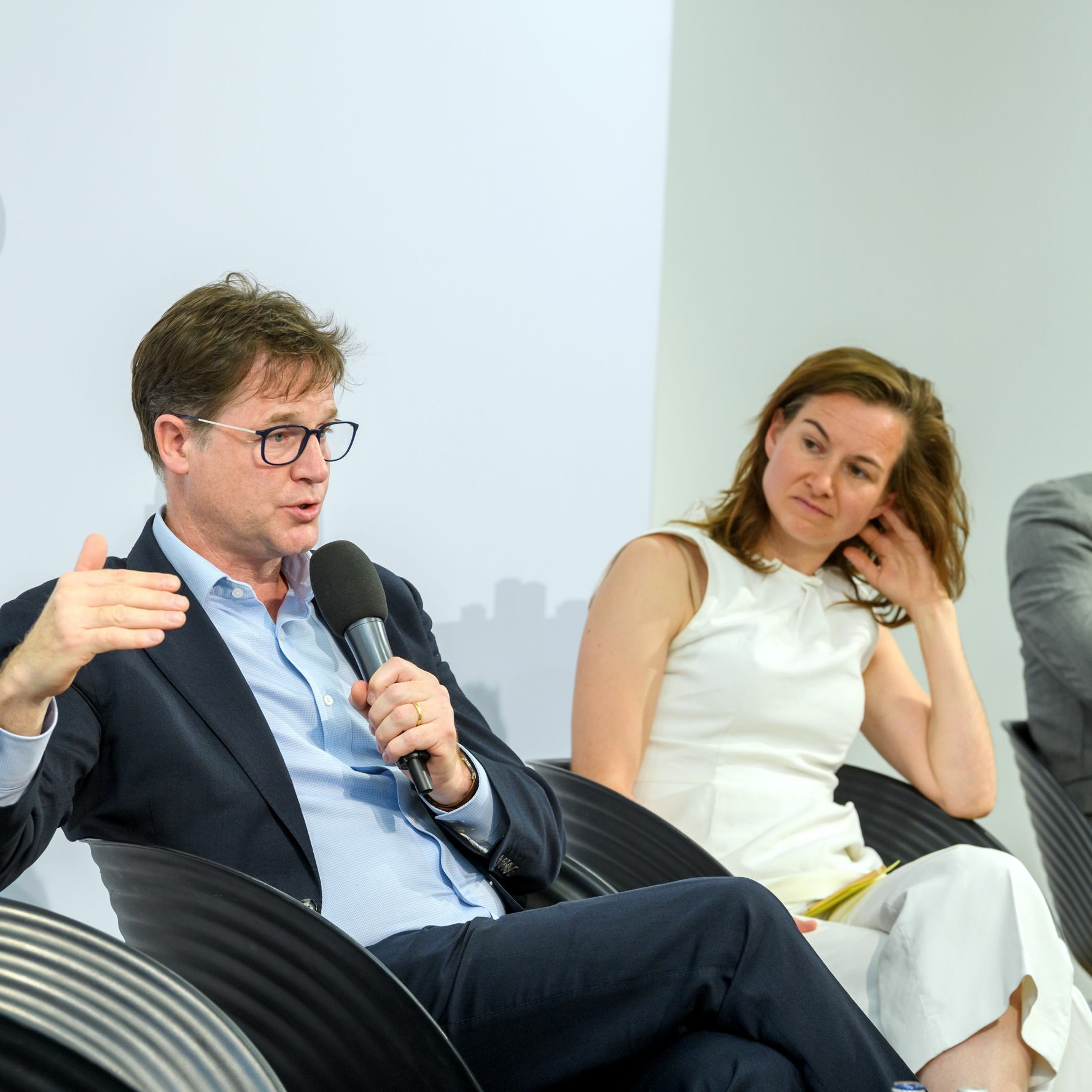 Hertie SchoolHow to regulate the internet?Tech companies have recently been criticised for not doing enough to control the negative effects of the internet. Spreading false information and hate speech, fomenting conflict, discontent and polarisation, and threatening peace and stability are among some of the most discussed issues. On the other hand, many tech companies have invested in this field and argue that it shouldn’t be them, but governments, who decide how the internet should be regulated.
But who should decide these rules and who should enforce them? Current ideas include the creation of oversight authorities, imposing fines, increasing access to data for independent observers an...2019-06-251h 18
Hertie SchoolHow to regulate the internet?Tech companies have recently been criticised for not doing enough to control the negative effects of the internet. Spreading false information and hate speech, fomenting conflict, discontent and polarisation, and threatening peace and stability are among some of the most discussed issues. On the other hand, many tech companies have invested in this field and argue that it shouldn’t be them, but governments, who decide how the internet should be regulated.
But who should decide these rules and who should enforce them? Current ideas include the creation of oversight authorities, imposing fines, increasing access to data for independent observers an...2019-06-251h 18 The Data LabJoanna Bryson, Professor of Ethics and Technology at the Hertie School of Governance in BerlinJoanna J. Bryson is a transdisciplinary researcher on the structure and dynamics of human- and animal-like intelligence. Her research covers topics ranging from artificial intelligence, through autonomy and robot ethics, and on to human cooperation. Her work has appeared in venues ranging from a reddit to Science.Bryson's first degree is in Behavioural Science (non-clinical psychology) from Chicago (1986), she also holds an MSc in Artificial Intelligence and an MPhil in Psychology from Edinburgh (1992, 2000) and a PhD in Artificial Intelligence from MIT (2001).
She joined Bath in 2002 in their Department of Computer Science, where she was promoted to Reader...2019-06-1731 min
The Data LabJoanna Bryson, Professor of Ethics and Technology at the Hertie School of Governance in BerlinJoanna J. Bryson is a transdisciplinary researcher on the structure and dynamics of human- and animal-like intelligence. Her research covers topics ranging from artificial intelligence, through autonomy and robot ethics, and on to human cooperation. Her work has appeared in venues ranging from a reddit to Science.Bryson's first degree is in Behavioural Science (non-clinical psychology) from Chicago (1986), she also holds an MSc in Artificial Intelligence and an MPhil in Psychology from Edinburgh (1992, 2000) and a PhD in Artificial Intelligence from MIT (2001).
She joined Bath in 2002 in their Department of Computer Science, where she was promoted to Reader...2019-06-1731 min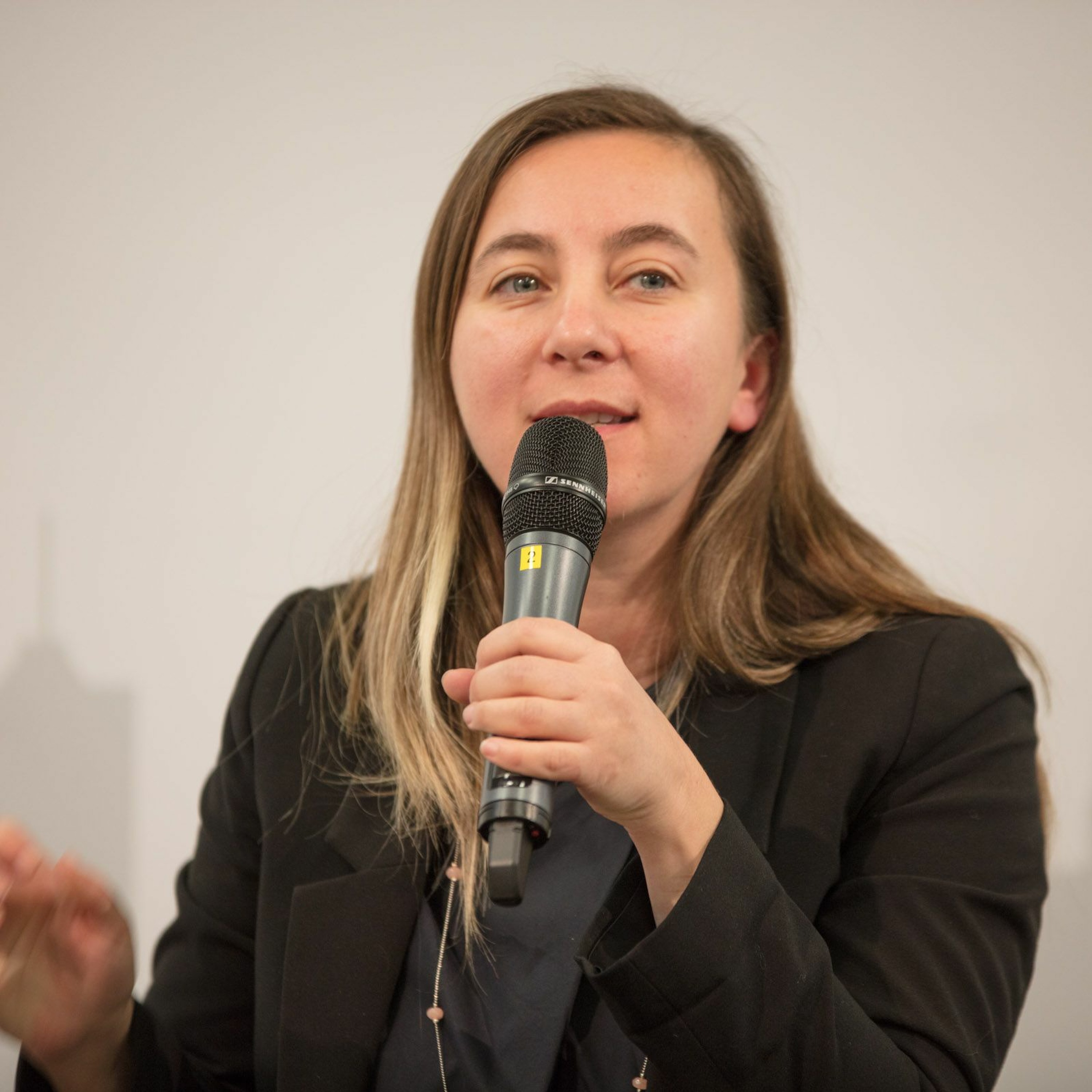 Hertie SchoolDebating the future of strategic human rights litigationTurning to domestic and international courts through strategic litigation has been central to global human rights activism for decades. It is a strategy that has been used to create long lasting social change in laws and public policies with the goal of advancing human rights. For some, litigation in the name of human rights has been a great success, making the human rights movement stronger by increasing its judicial power. For others, human rights litigation remains a 'hollow hope'. It brings minimalistic, slow and fragile gains at best or, at worst, gives rise to social and political backlash. The recent...2019-06-141h 28
Hertie SchoolDebating the future of strategic human rights litigationTurning to domestic and international courts through strategic litigation has been central to global human rights activism for decades. It is a strategy that has been used to create long lasting social change in laws and public policies with the goal of advancing human rights. For some, litigation in the name of human rights has been a great success, making the human rights movement stronger by increasing its judicial power. For others, human rights litigation remains a 'hollow hope'. It brings minimalistic, slow and fragile gains at best or, at worst, gives rise to social and political backlash. The recent...2019-06-141h 28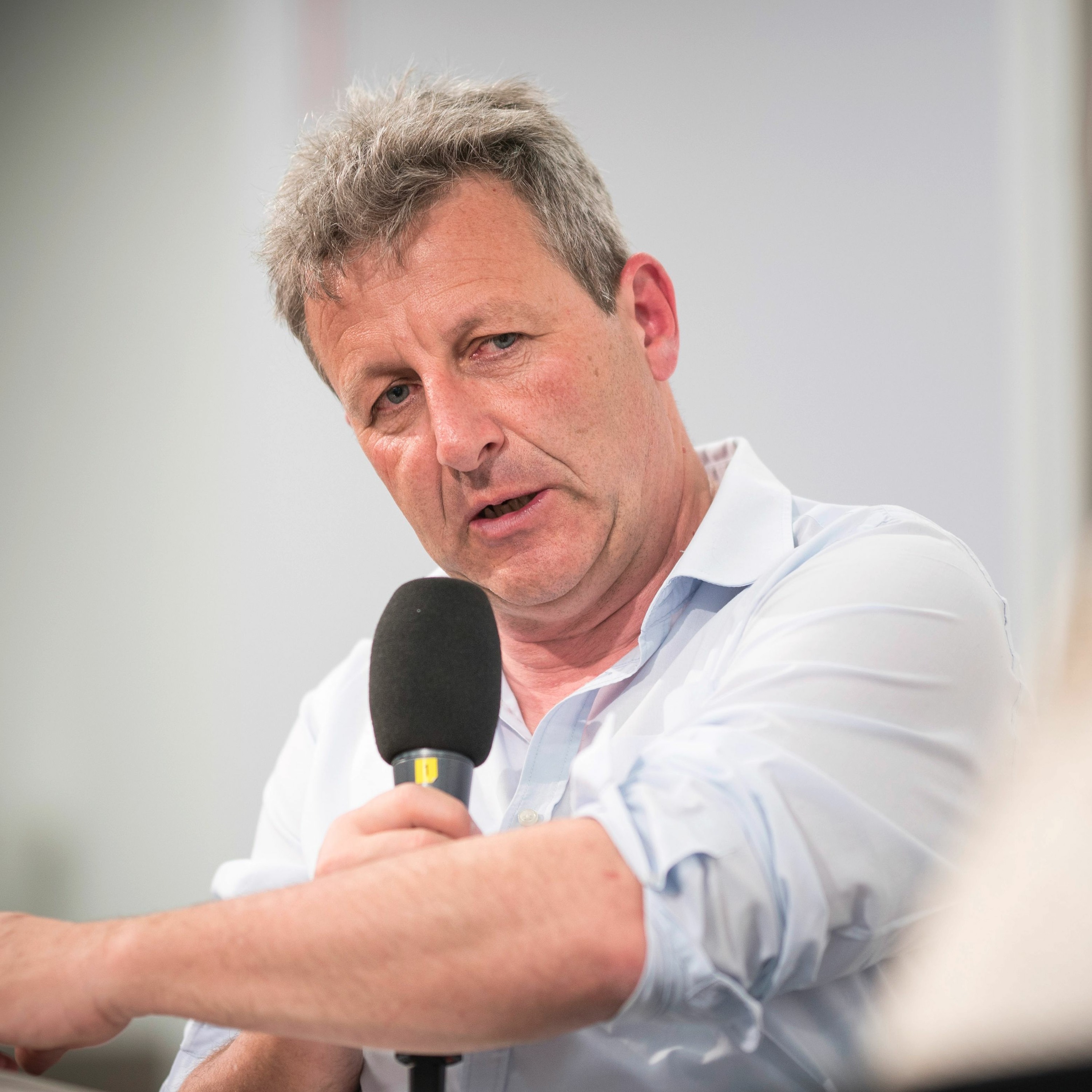 Hertie SchoolThe political economy of populismHow can we explain the geographical variation of populism in Europe? In the North, right-wing populism dominates, while for many years left-wing populism has been the common in the South. Outside Europe, for example in Latin America, governments frequently shift between left and right populist presidents. In a talk at the Hertie School, Philip Manow discussed populist protest in various political economies by looking at how vulnerable they are to the two most powerful features of globalisation: the movement of goods and capital across borders and migration.
This event was part of the Examining populism series, which invites speakers of...2019-05-021h 27
Hertie SchoolThe political economy of populismHow can we explain the geographical variation of populism in Europe? In the North, right-wing populism dominates, while for many years left-wing populism has been the common in the South. Outside Europe, for example in Latin America, governments frequently shift between left and right populist presidents. In a talk at the Hertie School, Philip Manow discussed populist protest in various political economies by looking at how vulnerable they are to the two most powerful features of globalisation: the movement of goods and capital across borders and migration.
This event was part of the Examining populism series, which invites speakers of...2019-05-021h 27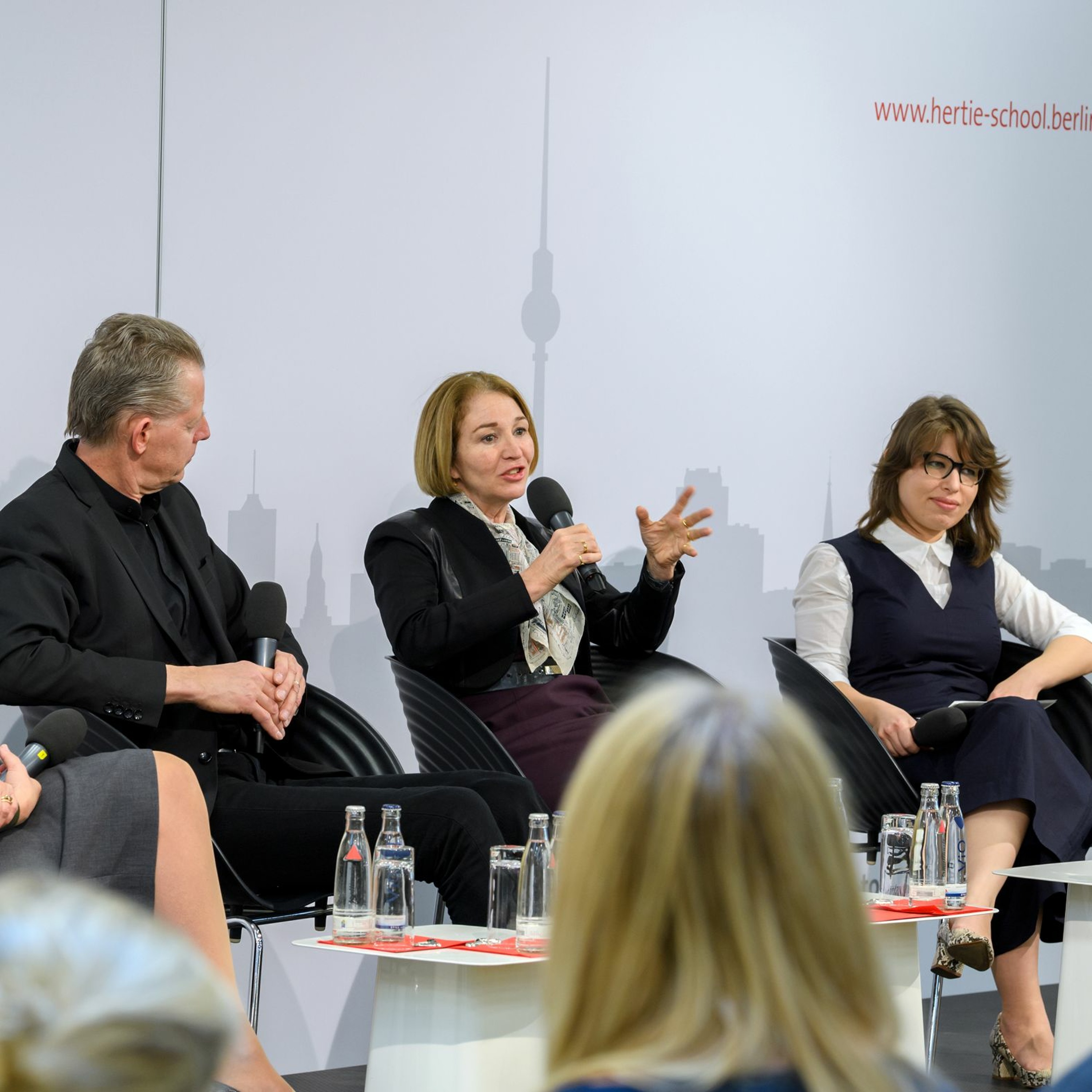 Hertie SchoolAnne-Marie Slaughter speaks on changing roles of men and women in societyPanel discussion centres on work, care-giving and how to bring about real equality in today’s world.
Long-held notions of both women’s and men’s roles in society need re-thinking to allow people to reach their full potential, both privately and professionally, said Anne-Marie Slaughter, CEO of the New America Foundation and the 2018 recipient of the Dr. Michael Endres Prize, in a panel discussion on 9 April at the Hertie School.
Conventional notions of men’s and women’s roles in society, the gender pay gap, the problem of sexual harassment, and other persistent issues of gender bias were the subject of...2019-04-171h 24
Hertie SchoolAnne-Marie Slaughter speaks on changing roles of men and women in societyPanel discussion centres on work, care-giving and how to bring about real equality in today’s world.
Long-held notions of both women’s and men’s roles in society need re-thinking to allow people to reach their full potential, both privately and professionally, said Anne-Marie Slaughter, CEO of the New America Foundation and the 2018 recipient of the Dr. Michael Endres Prize, in a panel discussion on 9 April at the Hertie School.
Conventional notions of men’s and women’s roles in society, the gender pay gap, the problem of sexual harassment, and other persistent issues of gender bias were the subject of...2019-04-171h 24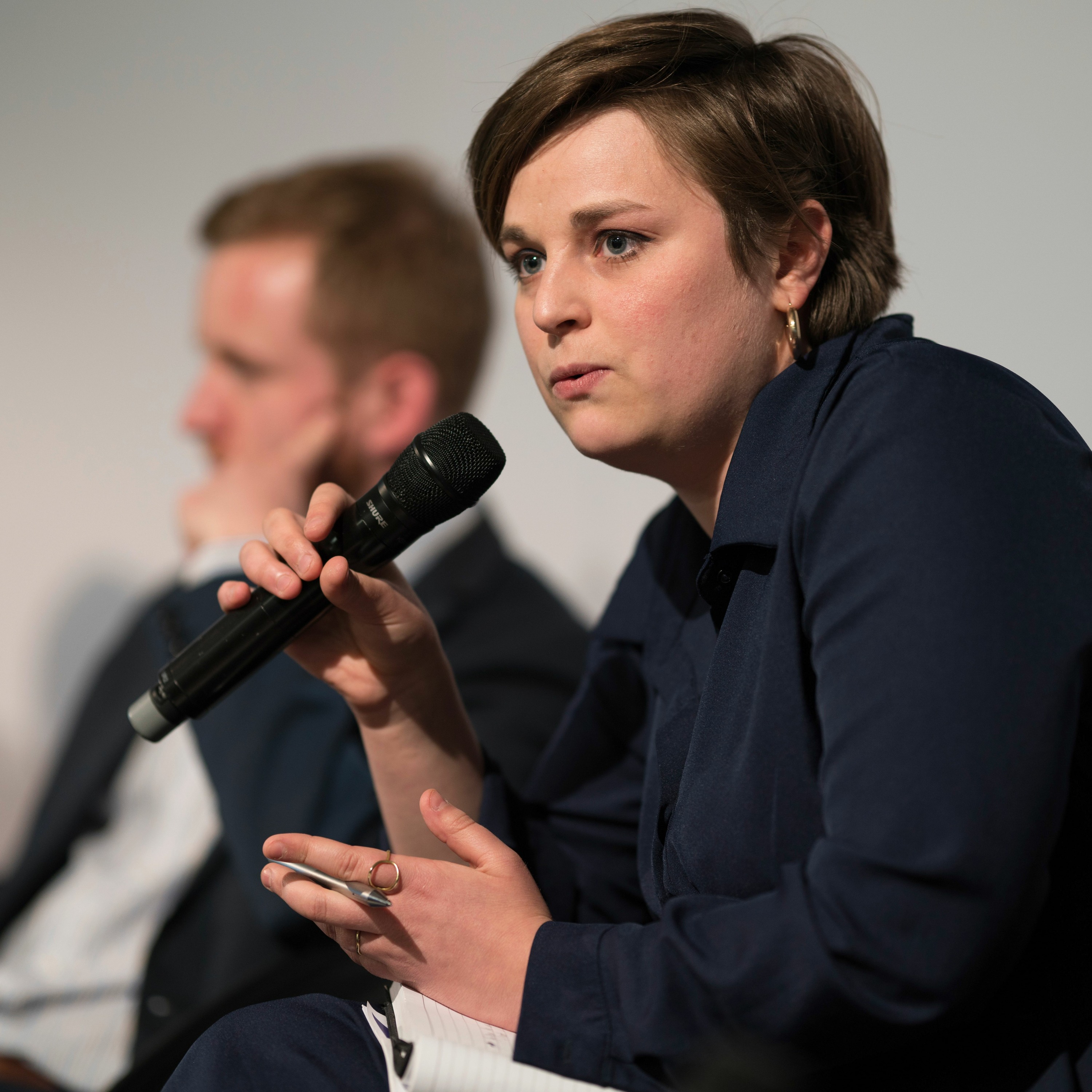 Hertie SchoolA young vision for EuropeFour young European Parliament candidates discussed their vision for Europe at the Hertie School on 11 April. On the panel were Hannah Neumann, 35, from Bündnis 90/Die Grünen in Germany, Vojtěch Vais, 26, a member of TOP 09 Party from Czechia, Marco Candela, 34, with Podemos in Spain, and Caroline Flohr, 25, a candidate for the pan-European party Volt in Germany.
The event was part of the The Governance Post event series, a student-led public initiative at the Hertie School together with European Horizons, the Hertie School chapter of a global, student-led policy incubator with a mission to give young people a voice in...2019-04-121h 34
Hertie SchoolA young vision for EuropeFour young European Parliament candidates discussed their vision for Europe at the Hertie School on 11 April. On the panel were Hannah Neumann, 35, from Bündnis 90/Die Grünen in Germany, Vojtěch Vais, 26, a member of TOP 09 Party from Czechia, Marco Candela, 34, with Podemos in Spain, and Caroline Flohr, 25, a candidate for the pan-European party Volt in Germany.
The event was part of the The Governance Post event series, a student-led public initiative at the Hertie School together with European Horizons, the Hertie School chapter of a global, student-led policy incubator with a mission to give young people a voice in...2019-04-121h 34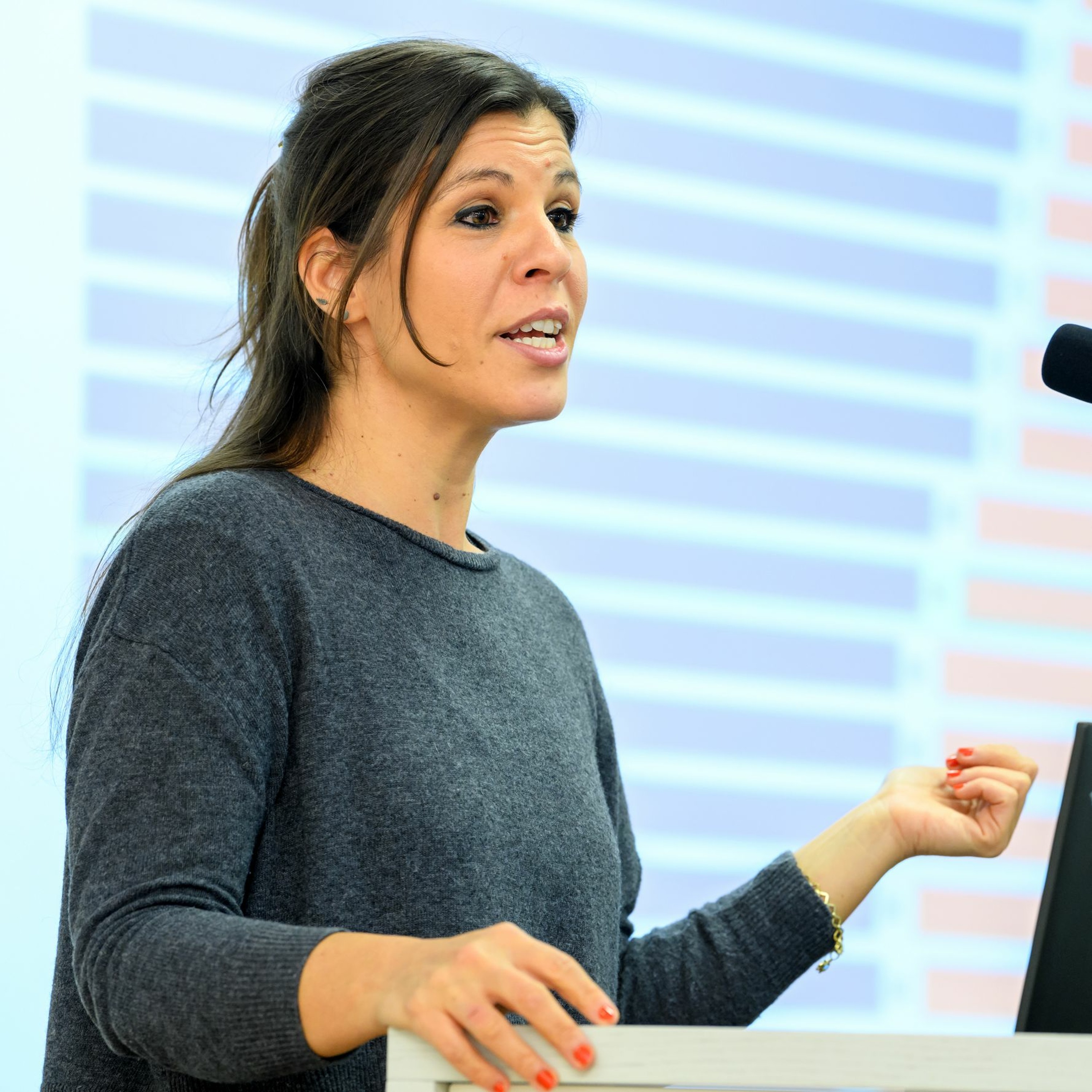 Hertie SchoolThe rise of populism and the 2019 European Parliament election: Causes and implications for EuropeThe upcoming 2019 European parliament election is increasingly portrayed as a fundamental turning point in the process of European integration. Following electoral gains in previous European and national elections in recent years, anti-EU populist parties are expected to increase their support even further, challenging the European project at its core. How can we explain the support of these parties and what are the implications for the future of Europe?
In this talk, Daphne Halikiopoulou addresses these questions by focusing on multiple dimensions of populism. She argues that since the EP elections are considered “second order elections,” they will be used to cast...2019-04-031h 25
Hertie SchoolThe rise of populism and the 2019 European Parliament election: Causes and implications for EuropeThe upcoming 2019 European parliament election is increasingly portrayed as a fundamental turning point in the process of European integration. Following electoral gains in previous European and national elections in recent years, anti-EU populist parties are expected to increase their support even further, challenging the European project at its core. How can we explain the support of these parties and what are the implications for the future of Europe?
In this talk, Daphne Halikiopoulou addresses these questions by focusing on multiple dimensions of populism. She argues that since the EP elections are considered “second order elections,” they will be used to cast...2019-04-031h 25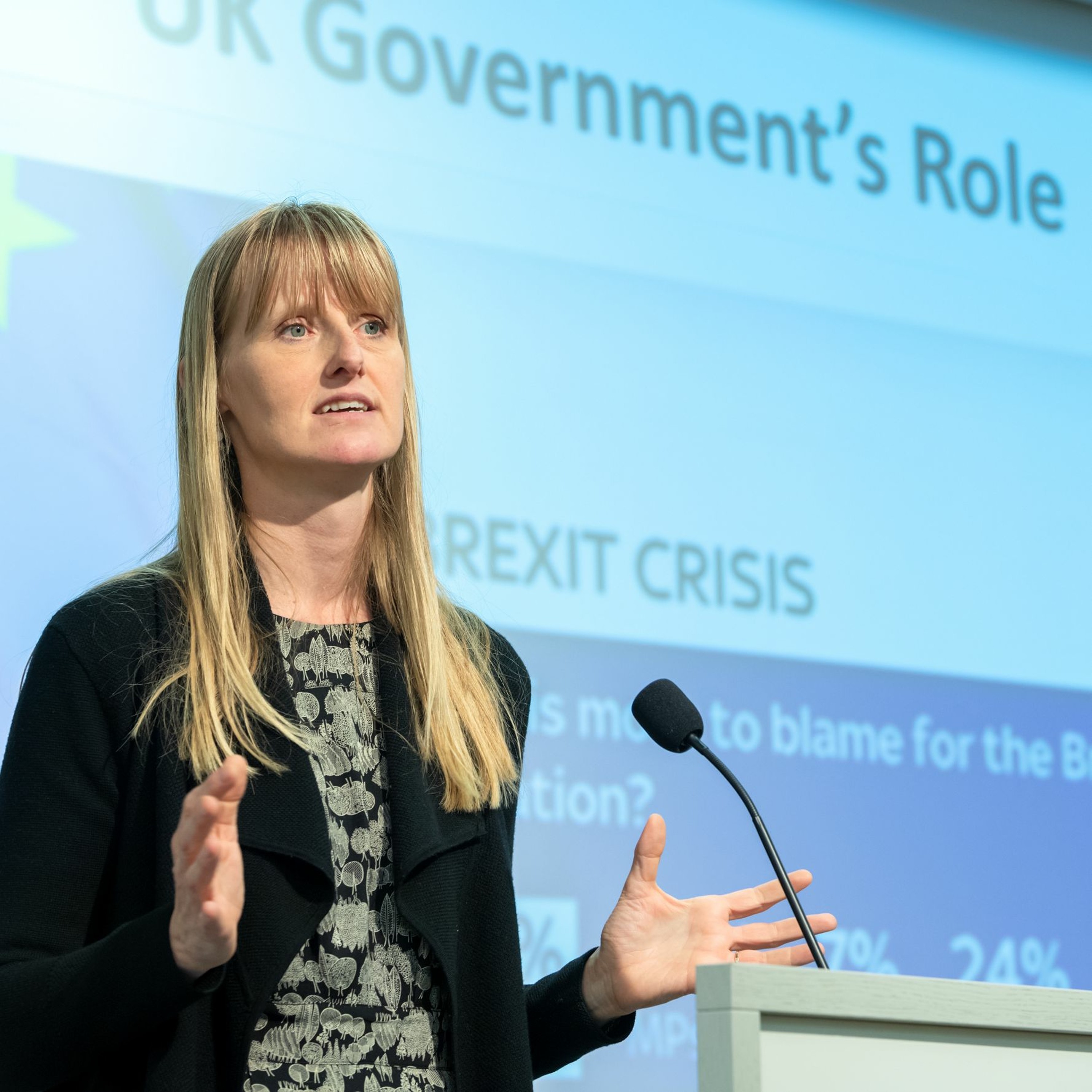 Hertie SchoolBrexit, euroscepticism and the rise of populismCatherine de Vries discusses how to move the European project forward ahead of the EP elections.
Catherine de Vries is Professor of Political Behaviour in Europe at the Vrije Universiteit Amsterdam and a Hertie School Board member.2019-03-261h 31
Hertie SchoolBrexit, euroscepticism and the rise of populismCatherine de Vries discusses how to move the European project forward ahead of the EP elections.
Catherine de Vries is Professor of Political Behaviour in Europe at the Vrije Universiteit Amsterdam and a Hertie School Board member.2019-03-261h 31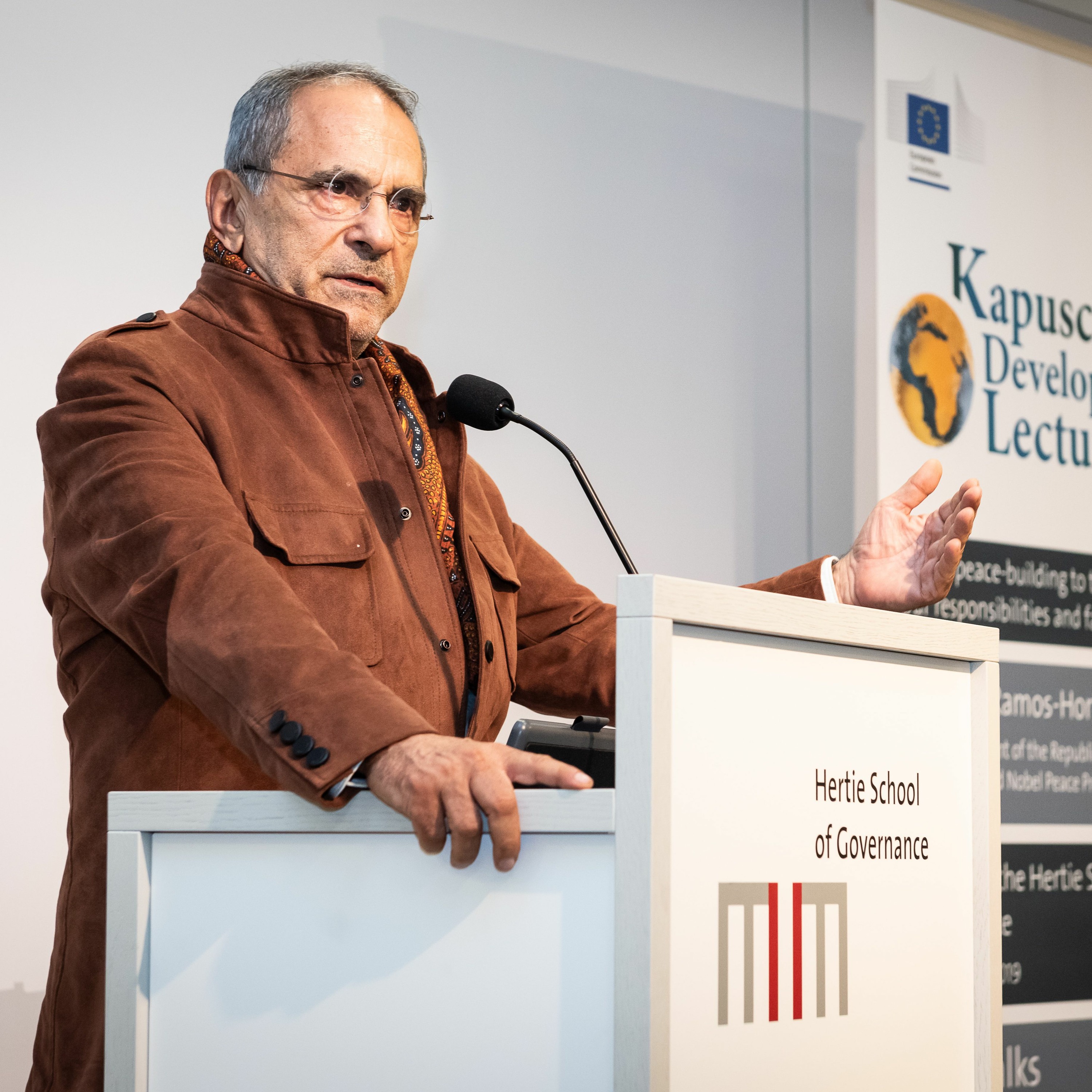 Hertie SchoolTaking peace-building to the world: Our responsibilities and failuresKapuscinski Development Lecture with H.E. José Ramos-Horta, former President of the Republic of Timor-Leste and Nobel Peace Prize Laureate.
"We are living in very dangerous times. Right here in the heart of Europe forces of good and of intolerance are on a collision course. Across the English Channel there are forces bent on wrecking a magnificent social, political and security architecture built over many decades pushing Europe towards the abyss of chaos and irrelevance. In the course of over 40 years, starting as an innocent and romantic believer in the promises and possibilities of the United Nations, I have seen t...2019-02-281h 49
Hertie SchoolTaking peace-building to the world: Our responsibilities and failuresKapuscinski Development Lecture with H.E. José Ramos-Horta, former President of the Republic of Timor-Leste and Nobel Peace Prize Laureate.
"We are living in very dangerous times. Right here in the heart of Europe forces of good and of intolerance are on a collision course. Across the English Channel there are forces bent on wrecking a magnificent social, political and security architecture built over many decades pushing Europe towards the abyss of chaos and irrelevance. In the course of over 40 years, starting as an innocent and romantic believer in the promises and possibilities of the United Nations, I have seen t...2019-02-281h 49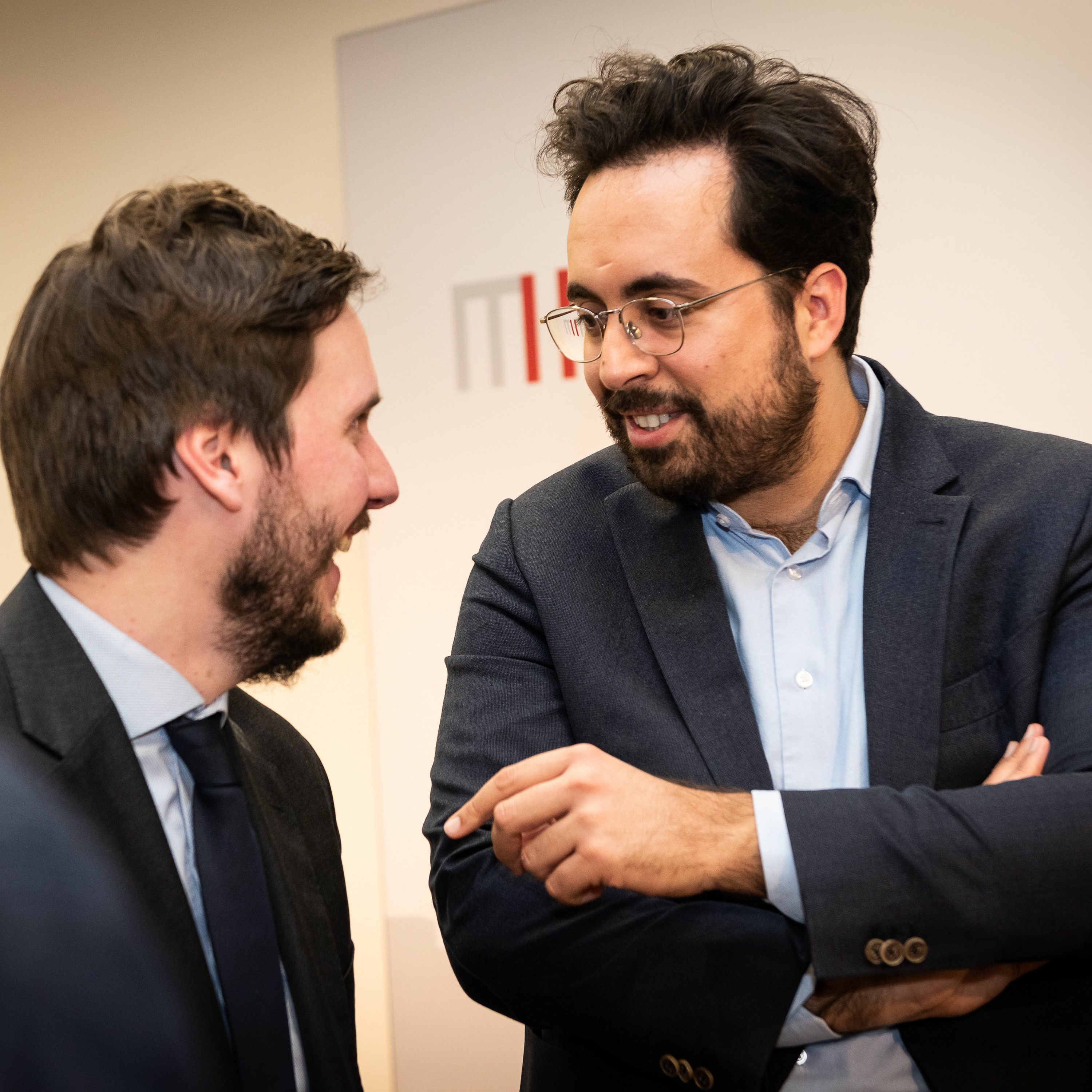 Hertie SchoolDigital dictates: What digital priorities should the next European Commission set?The next European Commission faces a broad array of challenges in regulating the evolving digital world. What are the ethical implications of artificial intelligence, how can you regulate competition and what are the implications for diversity in the digital era? In a discussion between France’s State Secretary for Digital Affairs Mounir Mahjoubi, Stephanie Kaiser, Founder and Managing Director of the digital health platform Heartbeat Labs, and Slava Jankin Mikhaylov, Professor of Data Science and Public Policy, we looked ahead to the EC priorities after the European Parliament elections in May.2019-02-271h 00
Hertie SchoolDigital dictates: What digital priorities should the next European Commission set?The next European Commission faces a broad array of challenges in regulating the evolving digital world. What are the ethical implications of artificial intelligence, how can you regulate competition and what are the implications for diversity in the digital era? In a discussion between France’s State Secretary for Digital Affairs Mounir Mahjoubi, Stephanie Kaiser, Founder and Managing Director of the digital health platform Heartbeat Labs, and Slava Jankin Mikhaylov, Professor of Data Science and Public Policy, we looked ahead to the EC priorities after the European Parliament elections in May.2019-02-271h 00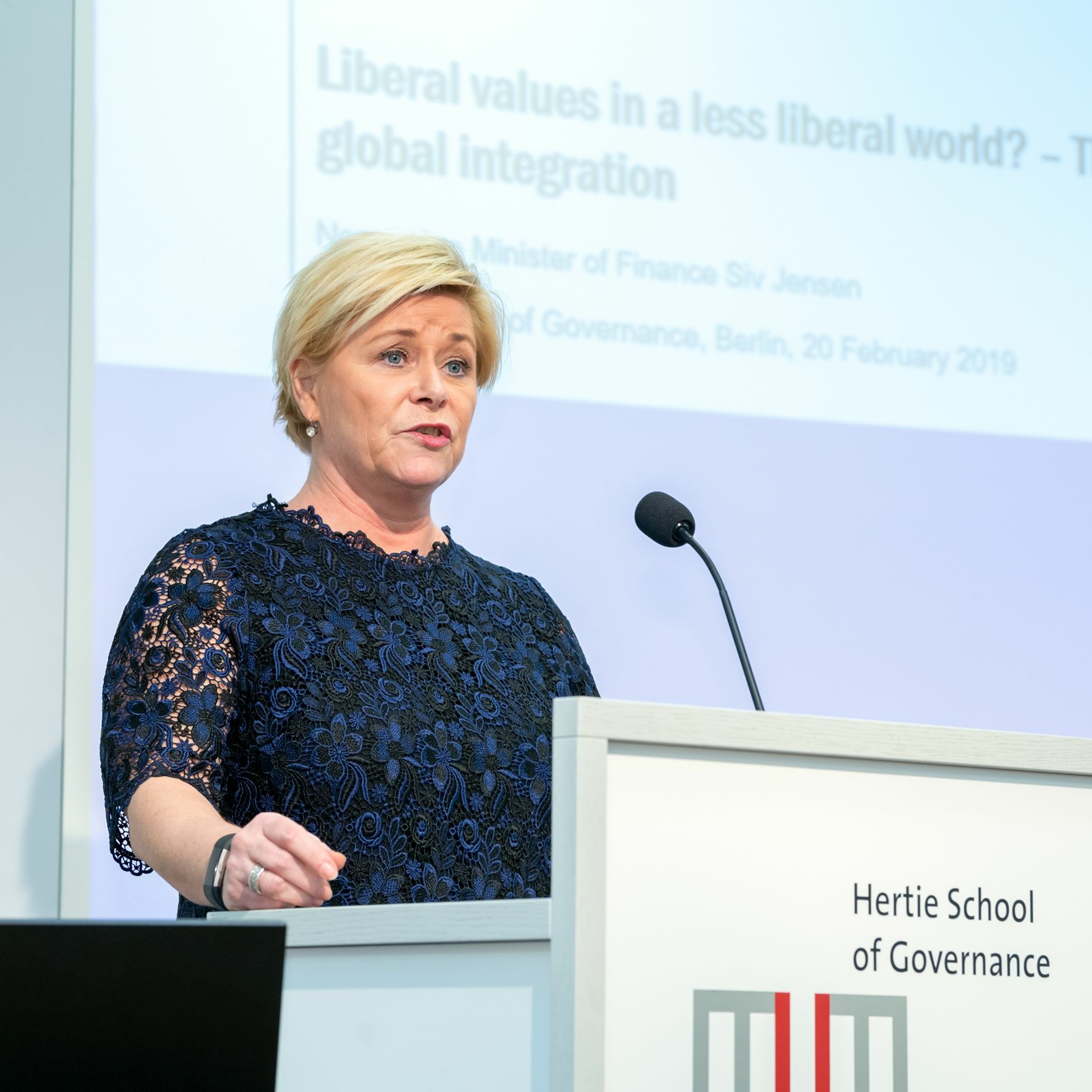 Hertie SchoolLiberal values in a less liberal world? The economic case for rules-based global integration.Siv Jensen, Norwegian Minister of Finance, and Mark Hallerberg discussed the economic case for rules-based global integration.
Liberal values have guided international cooperation over decades, based on the view that an open economic architecture with common rules is a shared interest, both regionally and globally. A common set of rules has promoted the development of free and open markets across borders, delivering tremendous gains. Yet, signs of less support for liberal core values and the rise of new powers in the global economy might suggest the tide is turning. What is at stake? And how can we best pursue politics...2019-02-2559 min
Hertie SchoolLiberal values in a less liberal world? The economic case for rules-based global integration.Siv Jensen, Norwegian Minister of Finance, and Mark Hallerberg discussed the economic case for rules-based global integration.
Liberal values have guided international cooperation over decades, based on the view that an open economic architecture with common rules is a shared interest, both regionally and globally. A common set of rules has promoted the development of free and open markets across borders, delivering tremendous gains. Yet, signs of less support for liberal core values and the rise of new powers in the global economy might suggest the tide is turning. What is at stake? And how can we best pursue politics...2019-02-2559 min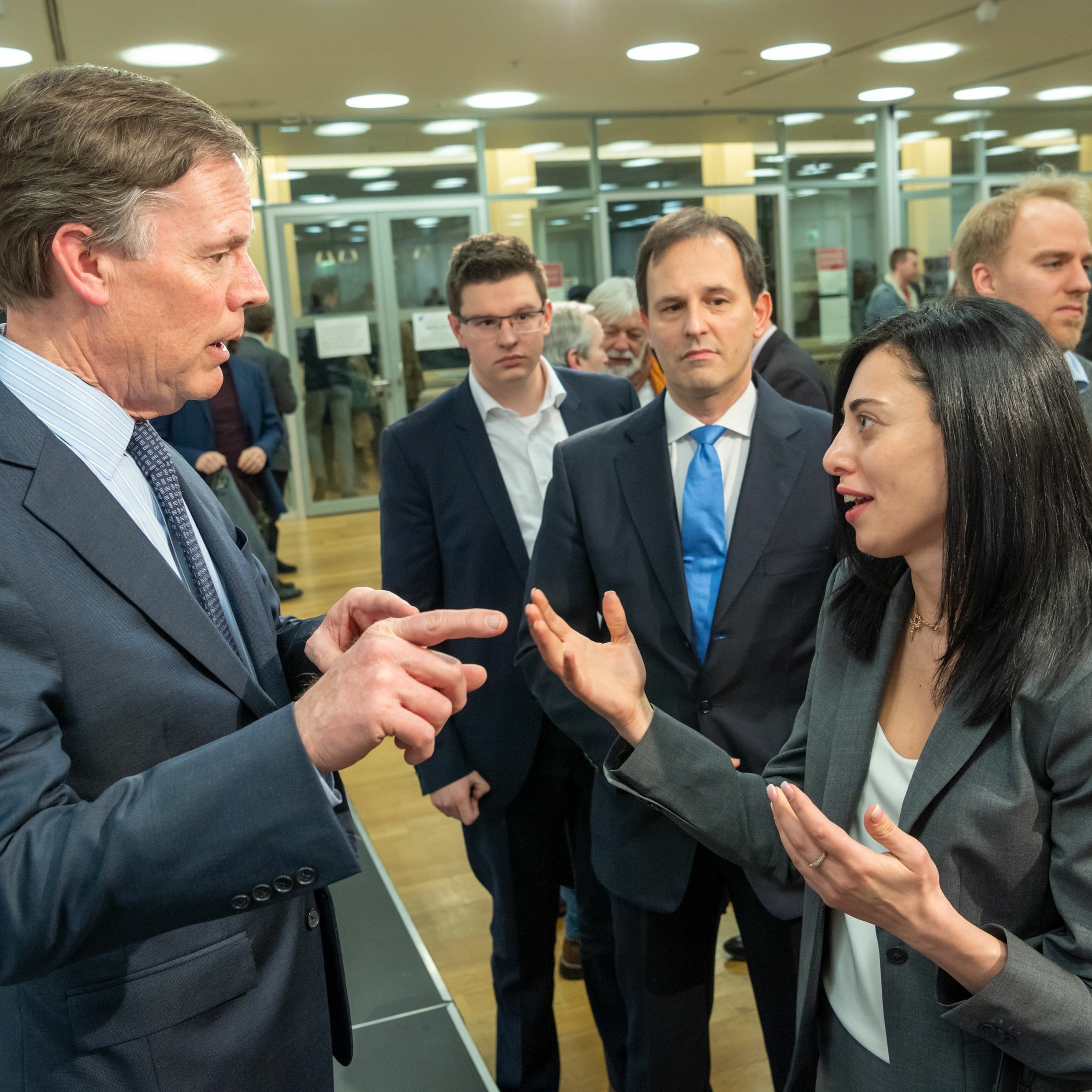 Hertie SchoolPost-MSC talk: Picking up the pieces — What's ahead for global securityThe Hertie School of the Governance convened top foreign policy thinkers from the United States and Germany on 18 February, directly after the 55th Munich Security Conference. Discussants reflected on the key issues, conclusions and critical challenges to international security raised at the conference, before a packed audience hosted by the school’s Centre for International Security Policy (CISP).
The post-MSC discussion at the Hertie School offered an insider’s view into the conference, bringing together Nicholas Burns, former US Ambassador to NATO and Professor of Diplomacy and International Relations at Harvard’s Kennedy School of Government, Daniela Schwarzer, Director of the Ge...2019-02-211h 18
Hertie SchoolPost-MSC talk: Picking up the pieces — What's ahead for global securityThe Hertie School of the Governance convened top foreign policy thinkers from the United States and Germany on 18 February, directly after the 55th Munich Security Conference. Discussants reflected on the key issues, conclusions and critical challenges to international security raised at the conference, before a packed audience hosted by the school’s Centre for International Security Policy (CISP).
The post-MSC discussion at the Hertie School offered an insider’s view into the conference, bringing together Nicholas Burns, former US Ambassador to NATO and Professor of Diplomacy and International Relations at Harvard’s Kennedy School of Government, Daniela Schwarzer, Director of the Ge...2019-02-211h 18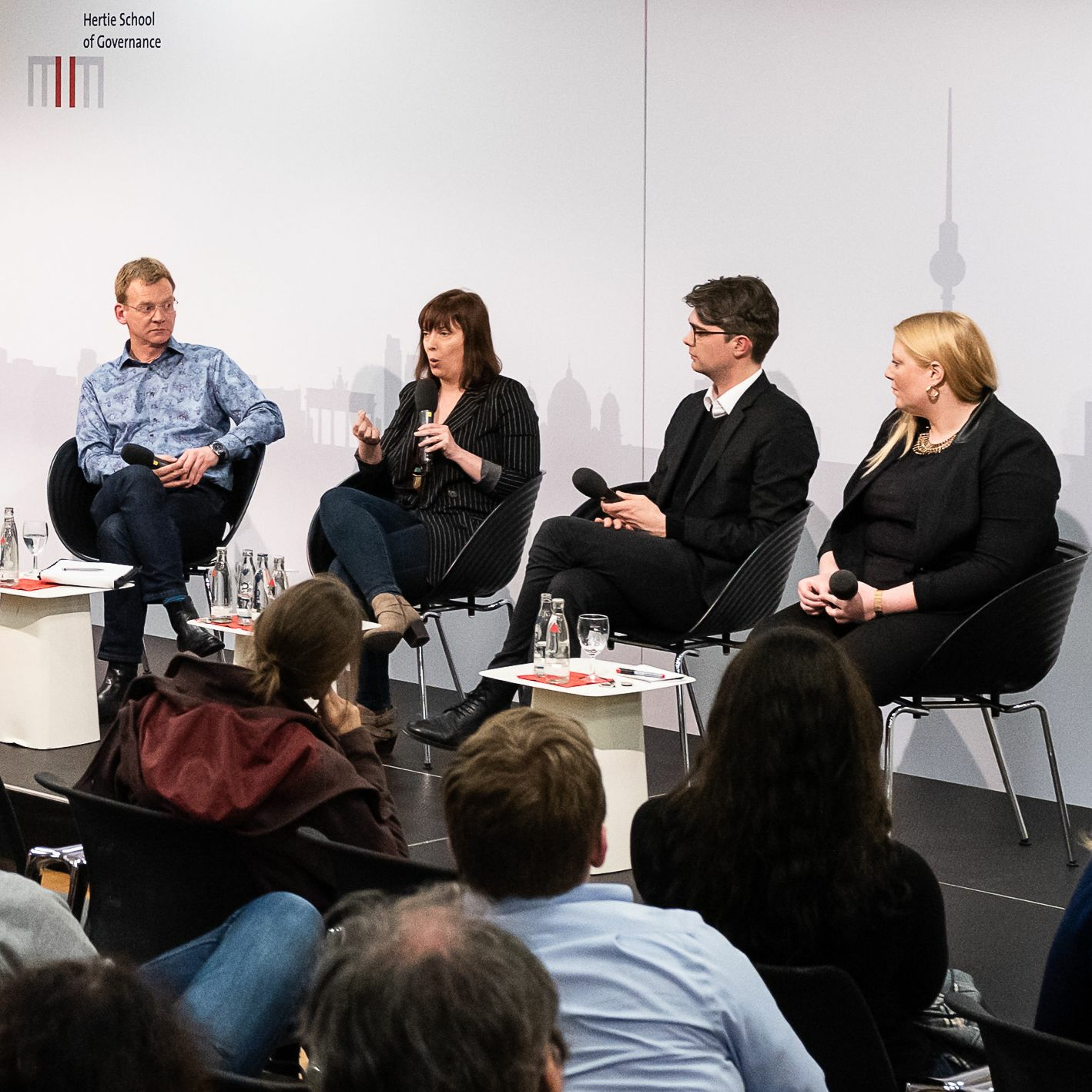 Hertie SchoolGetting our facts straight: Disinformation and the 2019 European ElectionsAt the end of 2018 the European Union launched a “war against disinformation” in an attempt to protect the upcoming European Parliament elections in May 2019. The proposed measures include a rapid alert system to support member states in identifying disinformation campaigns, an increased budget of €5m for the detection of disinformation, and pressure on tech companies to get on board with weeding out “fake news.”
Are these measures too little, too late? How concerned do we actually need to be about disinformation in Europe? Russia has often been pointed to as a main source of disinformation but are there other countries or actors...2019-02-201h 17
Hertie SchoolGetting our facts straight: Disinformation and the 2019 European ElectionsAt the end of 2018 the European Union launched a “war against disinformation” in an attempt to protect the upcoming European Parliament elections in May 2019. The proposed measures include a rapid alert system to support member states in identifying disinformation campaigns, an increased budget of €5m for the detection of disinformation, and pressure on tech companies to get on board with weeding out “fake news.”
Are these measures too little, too late? How concerned do we actually need to be about disinformation in Europe? Russia has often been pointed to as a main source of disinformation but are there other countries or actors...2019-02-201h 17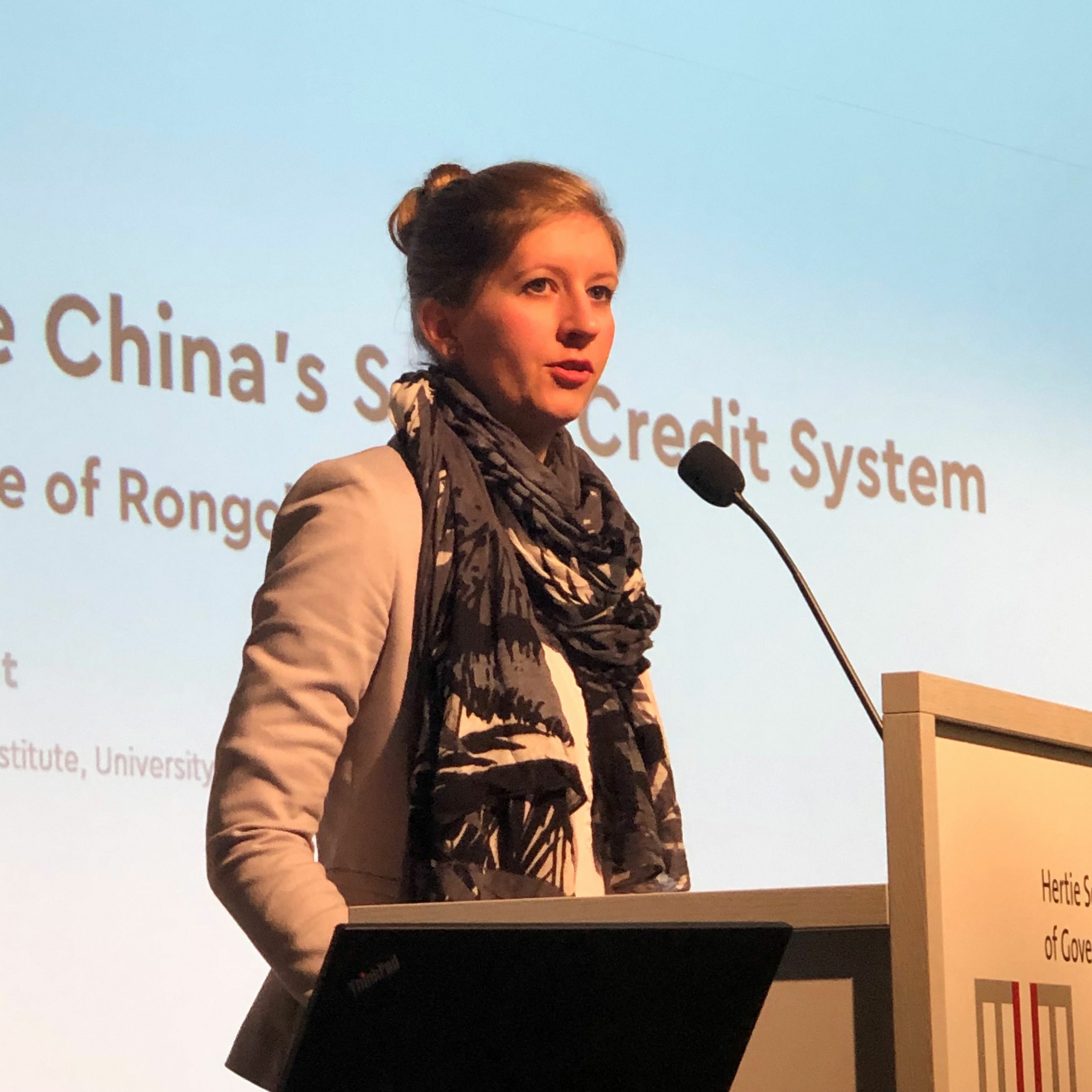 Hertie SchoolReward and punishment: Inside China’s social credit systemReward and punishment: Inside China’s social credit system by Hertie School2018-12-141h 32
Hertie SchoolReward and punishment: Inside China’s social credit systemReward and punishment: Inside China’s social credit system by Hertie School2018-12-141h 32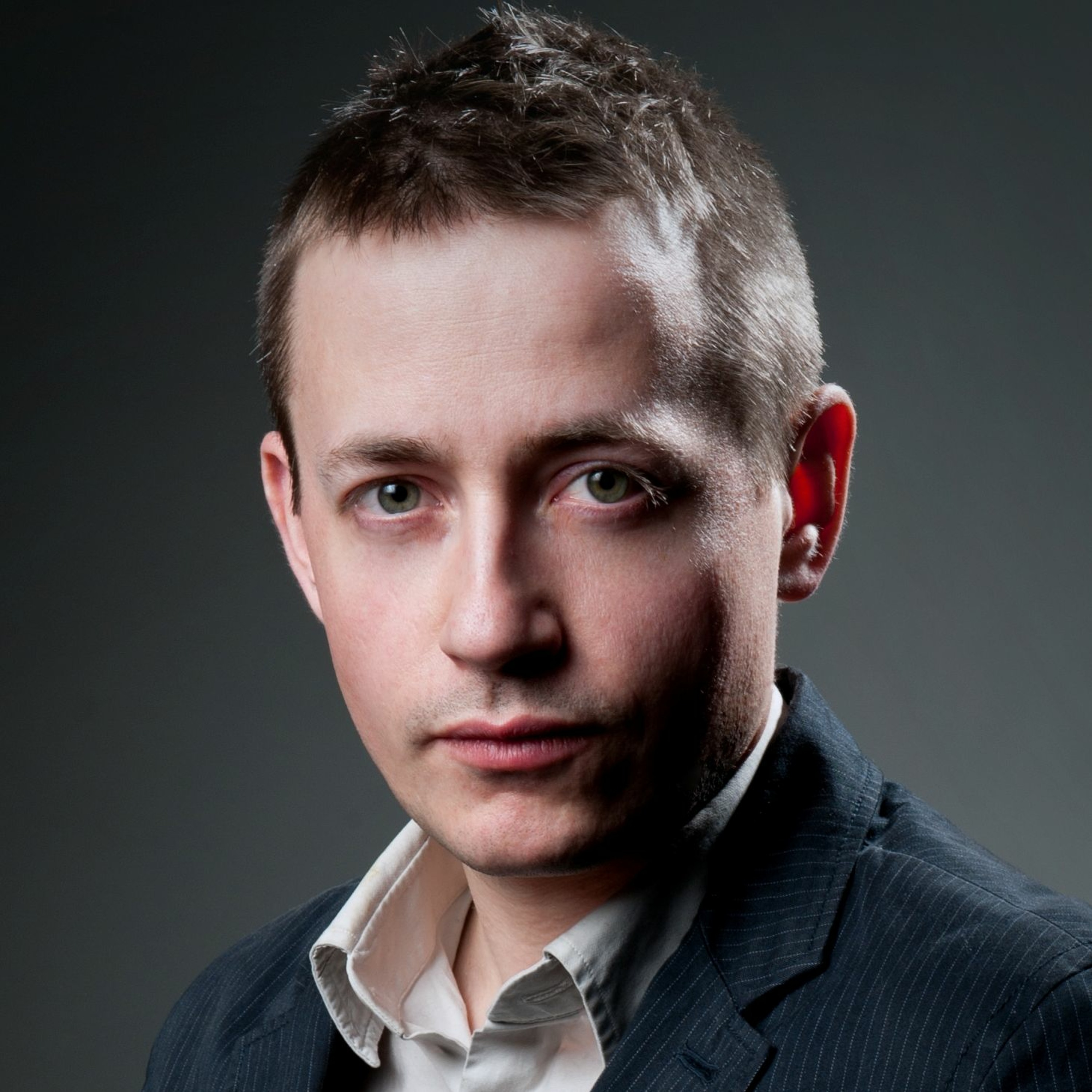 Hertie SchoolThe European jihadism wave of the 2010s: Lessons and prospectsA lecture by Thomas Hegghammer on 3 December 2018 on the causes, evolution, and revival prospects of the latest jihadism wave. This event is chaired by Julian Wucherpfennig, Assistant Professor of International Affairs and Security at the Hertie School of Governance, and was a continuation of the lecture series 'Frontline research on terrorism' at the Centre for International Security Policy at the Hertie School.
Thomas Hegghammer is Senior Research Fellow at the Norwegian Defence Research Establishment (FFI) and Adjunct Professor of Political Science at the University of Oslo. Trained in Middle East Studies at Oxford University and Sciences-Po in Paris, he has...2018-12-051h 02
Hertie SchoolThe European jihadism wave of the 2010s: Lessons and prospectsA lecture by Thomas Hegghammer on 3 December 2018 on the causes, evolution, and revival prospects of the latest jihadism wave. This event is chaired by Julian Wucherpfennig, Assistant Professor of International Affairs and Security at the Hertie School of Governance, and was a continuation of the lecture series 'Frontline research on terrorism' at the Centre for International Security Policy at the Hertie School.
Thomas Hegghammer is Senior Research Fellow at the Norwegian Defence Research Establishment (FFI) and Adjunct Professor of Political Science at the University of Oslo. Trained in Middle East Studies at Oxford University and Sciences-Po in Paris, he has...2018-12-051h 02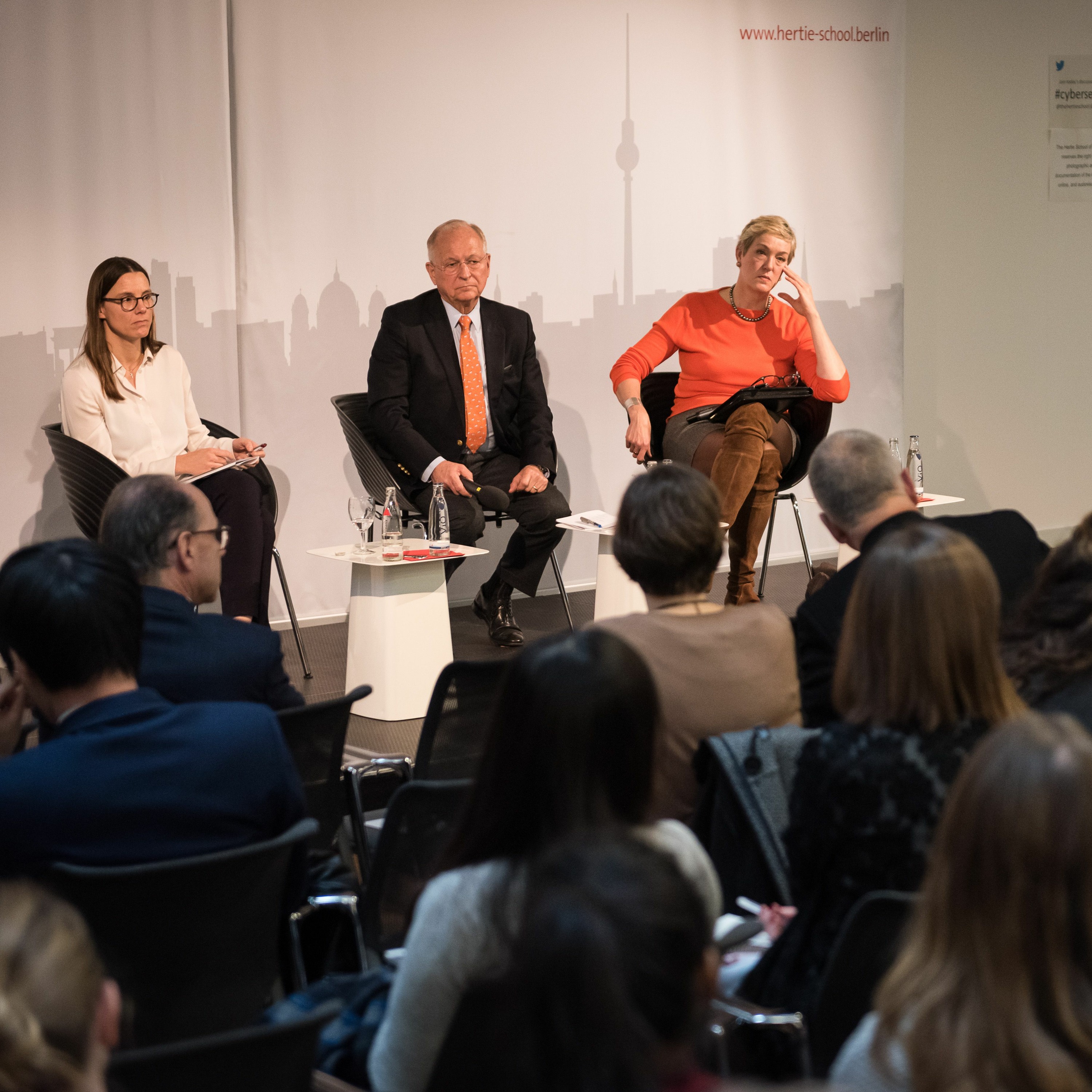 Hertie SchoolDefence, cybersecurity and artificial intelligencePanelists Katrin Suder, Chairperson of the Advisory Council on Digitalisation to the German Federal Government, Constanze Stelzenmüller, inaugural Robert Bosch Senior Fellow in the Center on the United States and Europe at the Brookings Institution, and Ambassador Wolfgang Ischinger, Senior Professor for Security Policy and Diplomatic Practice at the Hertie School of Governance and Director of the school’s Centre for International Security Policy (CISP), discuss future priorities of German and European security policies.
Digitalisation causes fundamental changes to the global state of security and means of war; cyber-attacks have become a major threat, increasingly addressing critical infrastructures of our...2018-11-1359 min
Hertie SchoolDefence, cybersecurity and artificial intelligencePanelists Katrin Suder, Chairperson of the Advisory Council on Digitalisation to the German Federal Government, Constanze Stelzenmüller, inaugural Robert Bosch Senior Fellow in the Center on the United States and Europe at the Brookings Institution, and Ambassador Wolfgang Ischinger, Senior Professor for Security Policy and Diplomatic Practice at the Hertie School of Governance and Director of the school’s Centre for International Security Policy (CISP), discuss future priorities of German and European security policies.
Digitalisation causes fundamental changes to the global state of security and means of war; cyber-attacks have become a major threat, increasingly addressing critical infrastructures of our...2018-11-1359 min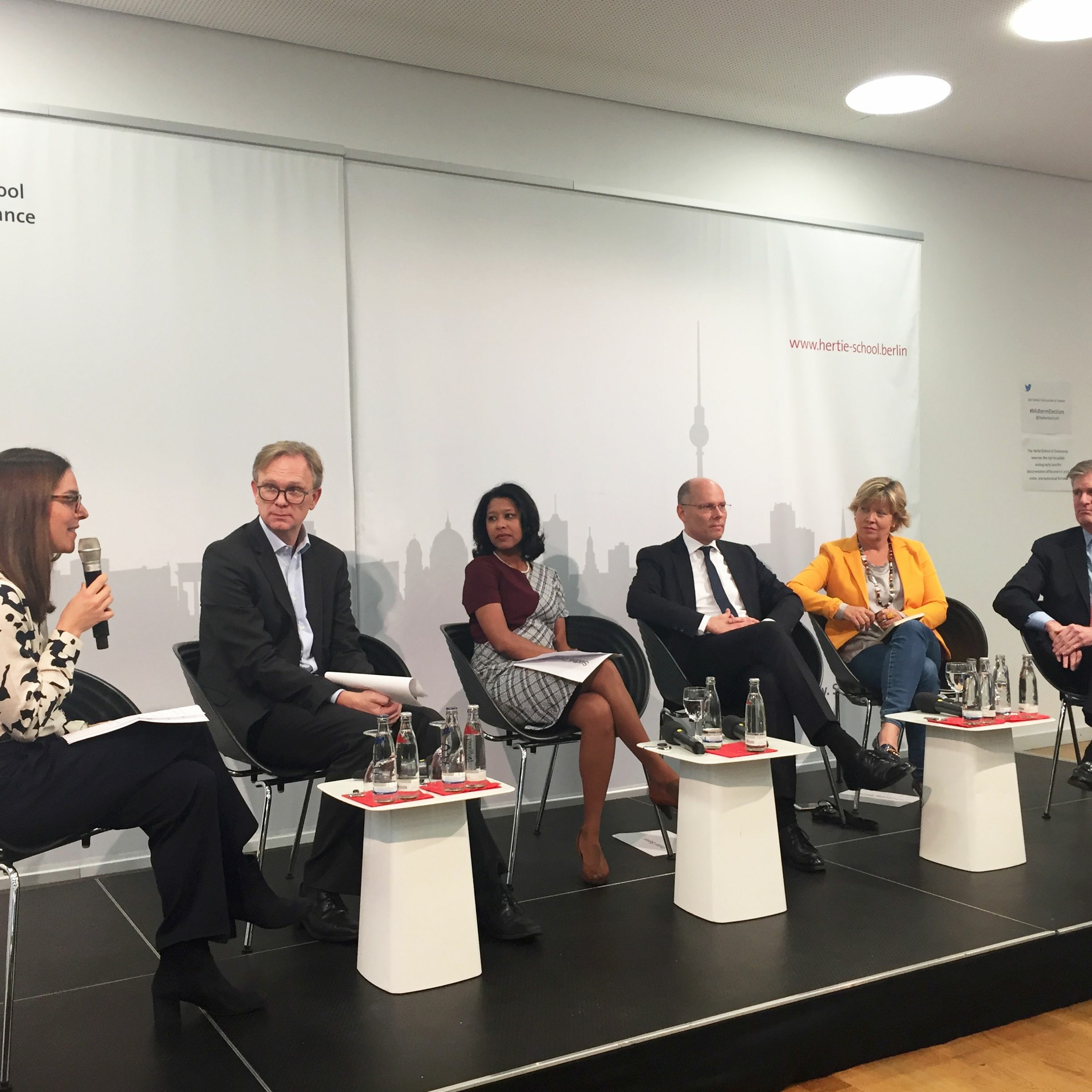 Hertie School"Blue wave" meets "red wall" in US mid-term electionPanelists discuss future of US political parties, implications for transatlantic relations and what’s in store for 2020.
A "blue wave" has now met a "red wall" – this is how Nelson Cunningham, former advisor to President Bill Clinton and co-founder of political consultancy McLarty Associates, described the election results to an audience of 130 at a 2018 US election post-mortem at the Hertie School on 7 November. Cunningham, alongside Sudha David-Wilp, Senior Transatlantic Fellow and Deputy Director of the Berlin office of the German Marshall Fund; Peter Beyer, member of the German Bundestag and Coordinator of Transatlantic Cooperation at the Federal Foreign Office; Mark Hall...2018-11-071h 28
Hertie School"Blue wave" meets "red wall" in US mid-term electionPanelists discuss future of US political parties, implications for transatlantic relations and what’s in store for 2020.
A "blue wave" has now met a "red wall" – this is how Nelson Cunningham, former advisor to President Bill Clinton and co-founder of political consultancy McLarty Associates, described the election results to an audience of 130 at a 2018 US election post-mortem at the Hertie School on 7 November. Cunningham, alongside Sudha David-Wilp, Senior Transatlantic Fellow and Deputy Director of the Berlin office of the German Marshall Fund; Peter Beyer, member of the German Bundestag and Coordinator of Transatlantic Cooperation at the Federal Foreign Office; Mark Hall...2018-11-071h 28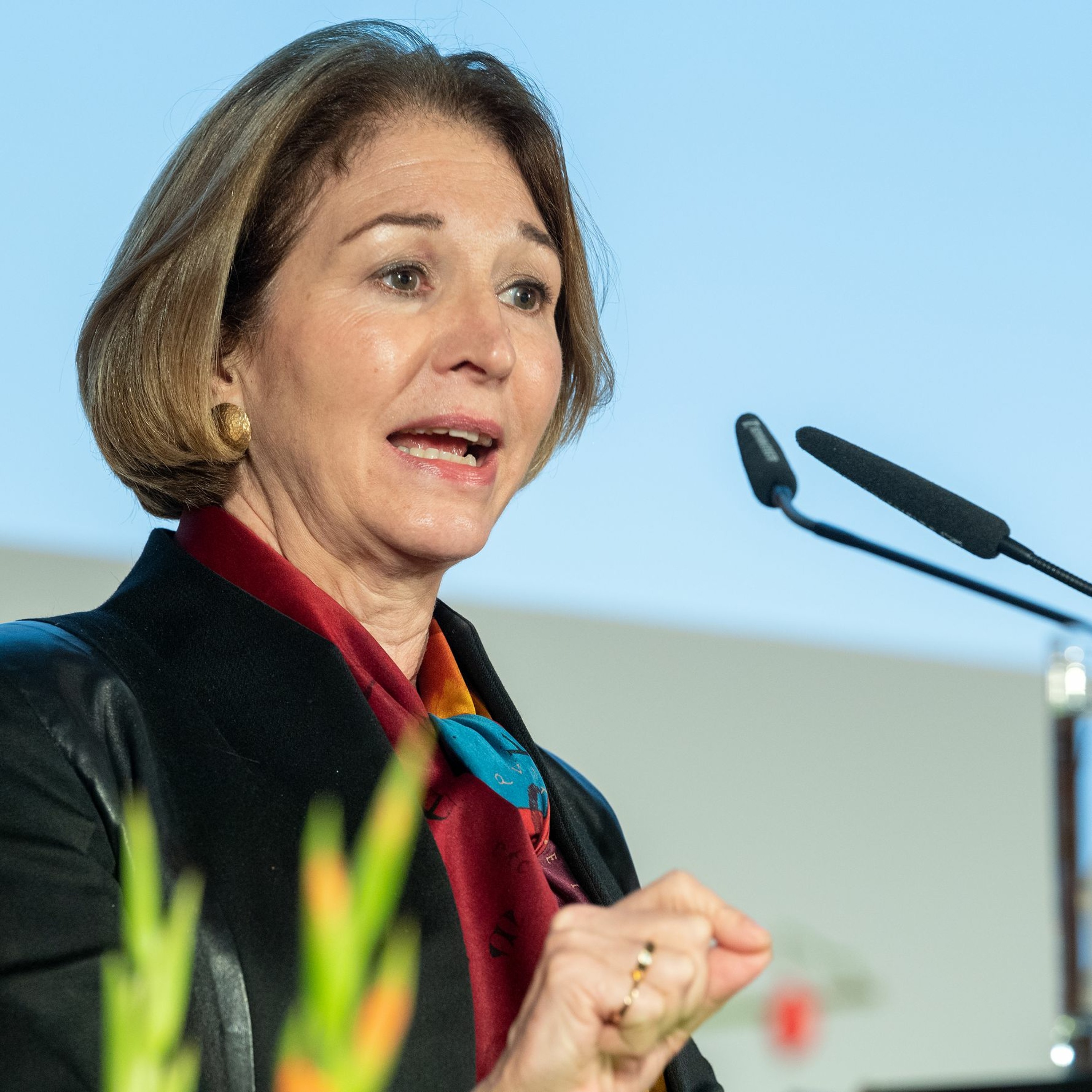 Hertie SchoolAnne-Marie Slaughter, CEO of New America, accepts Dr Michael Endres prize“People-centred, inclusive, experimental, data-enabled and connected,” – these are the five elements of the “new practice of public problem-solving,” according to US political scientist Anne-Marie Slaughter. Slaughter outlined her vision for how government, civil society and the private sector must work together to solve problems like climate change, homelessness or work-life balance, in an acceptance speech for the 2018 Dr. Michael Endres Prize, awarded by the Hertie School of Governance on 8 October.
More information: https://www.hertie-school.org/en/anne-marie_slaughter_receives_endres_prize/
Understand today. Shape tomorrow.
https://www.hertie-school.org2018-10-1518 min
Hertie SchoolAnne-Marie Slaughter, CEO of New America, accepts Dr Michael Endres prize“People-centred, inclusive, experimental, data-enabled and connected,” – these are the five elements of the “new practice of public problem-solving,” according to US political scientist Anne-Marie Slaughter. Slaughter outlined her vision for how government, civil society and the private sector must work together to solve problems like climate change, homelessness or work-life balance, in an acceptance speech for the 2018 Dr. Michael Endres Prize, awarded by the Hertie School of Governance on 8 October.
More information: https://www.hertie-school.org/en/anne-marie_slaughter_receives_endres_prize/
Understand today. Shape tomorrow.
https://www.hertie-school.org2018-10-1518 min Hertie SchoolInternational security: CounterterrorismIn his spring 2018 International Security course, Professor Julian Wucherpfennig tasked first-year Master of International Affairs (MIA) students to produce podcasts focussing on a singular aspect of security – climate change, digital technology, migration, to name a few. This is an example of the students’ work.
Understand today. Shape tomorrow.
https://www.hertie-school.org
This podcast is for educational purposes only.2018-07-0210 min
Hertie SchoolInternational security: CounterterrorismIn his spring 2018 International Security course, Professor Julian Wucherpfennig tasked first-year Master of International Affairs (MIA) students to produce podcasts focussing on a singular aspect of security – climate change, digital technology, migration, to name a few. This is an example of the students’ work.
Understand today. Shape tomorrow.
https://www.hertie-school.org
This podcast is for educational purposes only.2018-07-0210 min Hertie SchoolInternational security: In the darkIn his spring 2018 International Security course, Professor Julian Wucherpfennig tasked first-year Master of International Affairs (MIA) students to produce podcasts focussing on a singular aspect of security – climate change, digital technology, migration, to name a few. This is an example of the students’ work.
Understand today. Shape tomorrow.
https://www.hertie-school.org
This podcast is for educational purposes only.2018-07-0209 min
Hertie SchoolInternational security: In the darkIn his spring 2018 International Security course, Professor Julian Wucherpfennig tasked first-year Master of International Affairs (MIA) students to produce podcasts focussing on a singular aspect of security – climate change, digital technology, migration, to name a few. This is an example of the students’ work.
Understand today. Shape tomorrow.
https://www.hertie-school.org
This podcast is for educational purposes only.2018-07-0209 min Hertie SchoolInternational security: Climate and securityIn his spring 2018 International Security course, Professor Julian Wucherpfennig tasked first-year Master of International Affairs (MIA) students to produce podcasts focussing on a singular aspect of security – climate change, digital technology, migration, to name a few. This is an example of the students’ work.
Understand today. Shape tomorrow.
https://www.hertie-school.org
This podcast is for educational purposes only.
Intro music credit: „Intro 1N15“ by Setuniman is licensed under CC BY-NC 3.0.2018-07-0208 min
Hertie SchoolInternational security: Climate and securityIn his spring 2018 International Security course, Professor Julian Wucherpfennig tasked first-year Master of International Affairs (MIA) students to produce podcasts focussing on a singular aspect of security – climate change, digital technology, migration, to name a few. This is an example of the students’ work.
Understand today. Shape tomorrow.
https://www.hertie-school.org
This podcast is for educational purposes only.
Intro music credit: „Intro 1N15“ by Setuniman is licensed under CC BY-NC 3.0.2018-07-0208 min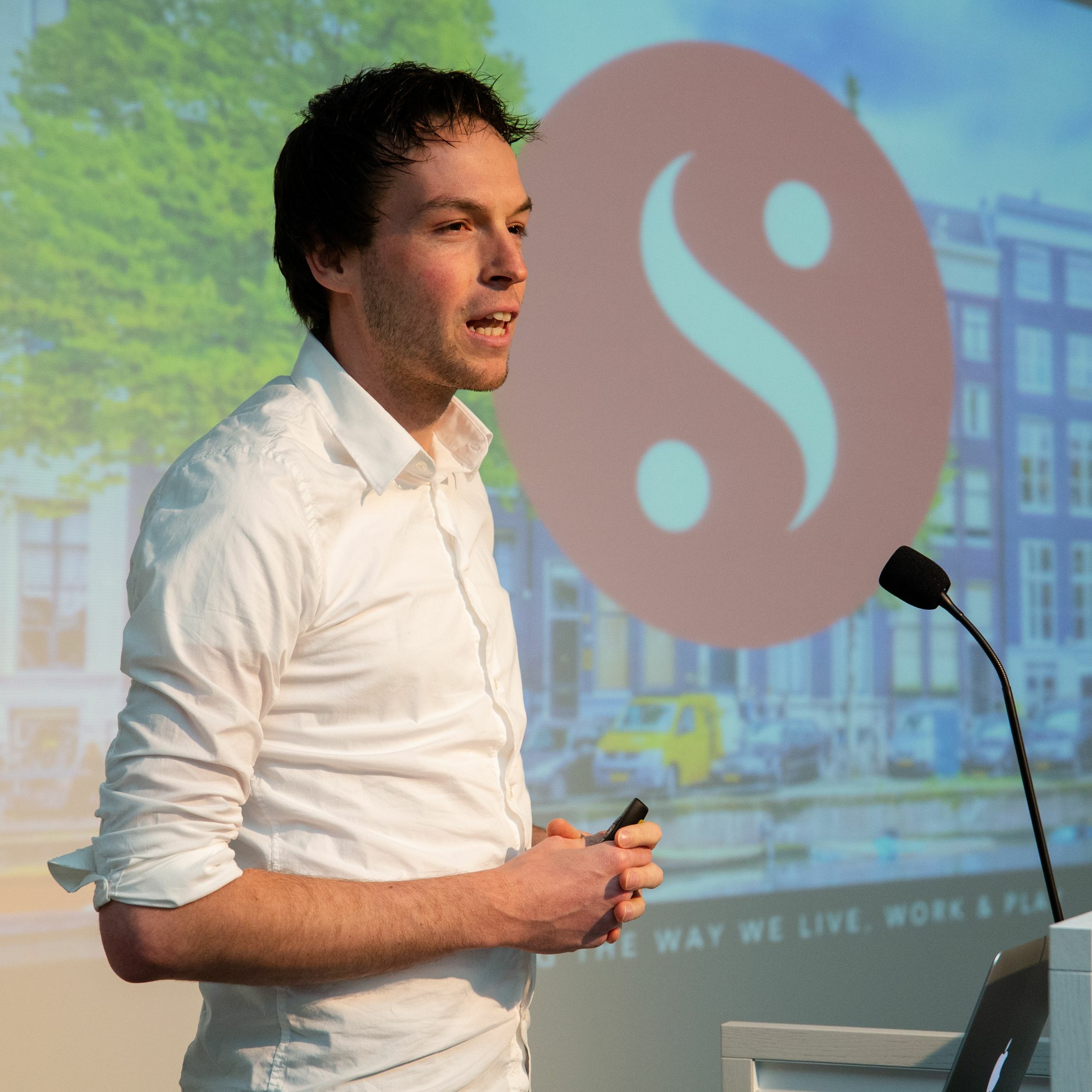 Hertie SchoolPieter van de Glind on future of the sharing economyPieter van de Glind gave this keynote as part of the 4th symposium of the research project “i-share: The sharing economy’s impact in Germany” that is sponsored by the German Federal Ministry of Education and Research. The symposium took place at the Hertie School of Governance on 26 April 2018.
*This keynote lecture has been edited slightly for the purpose of this podcast.
Understand today. Shape tomorrow.
https://www.hertie-school.org2018-05-2450 min
Hertie SchoolPieter van de Glind on future of the sharing economyPieter van de Glind gave this keynote as part of the 4th symposium of the research project “i-share: The sharing economy’s impact in Germany” that is sponsored by the German Federal Ministry of Education and Research. The symposium took place at the Hertie School of Governance on 26 April 2018.
*This keynote lecture has been edited slightly for the purpose of this podcast.
Understand today. Shape tomorrow.
https://www.hertie-school.org2018-05-2450 min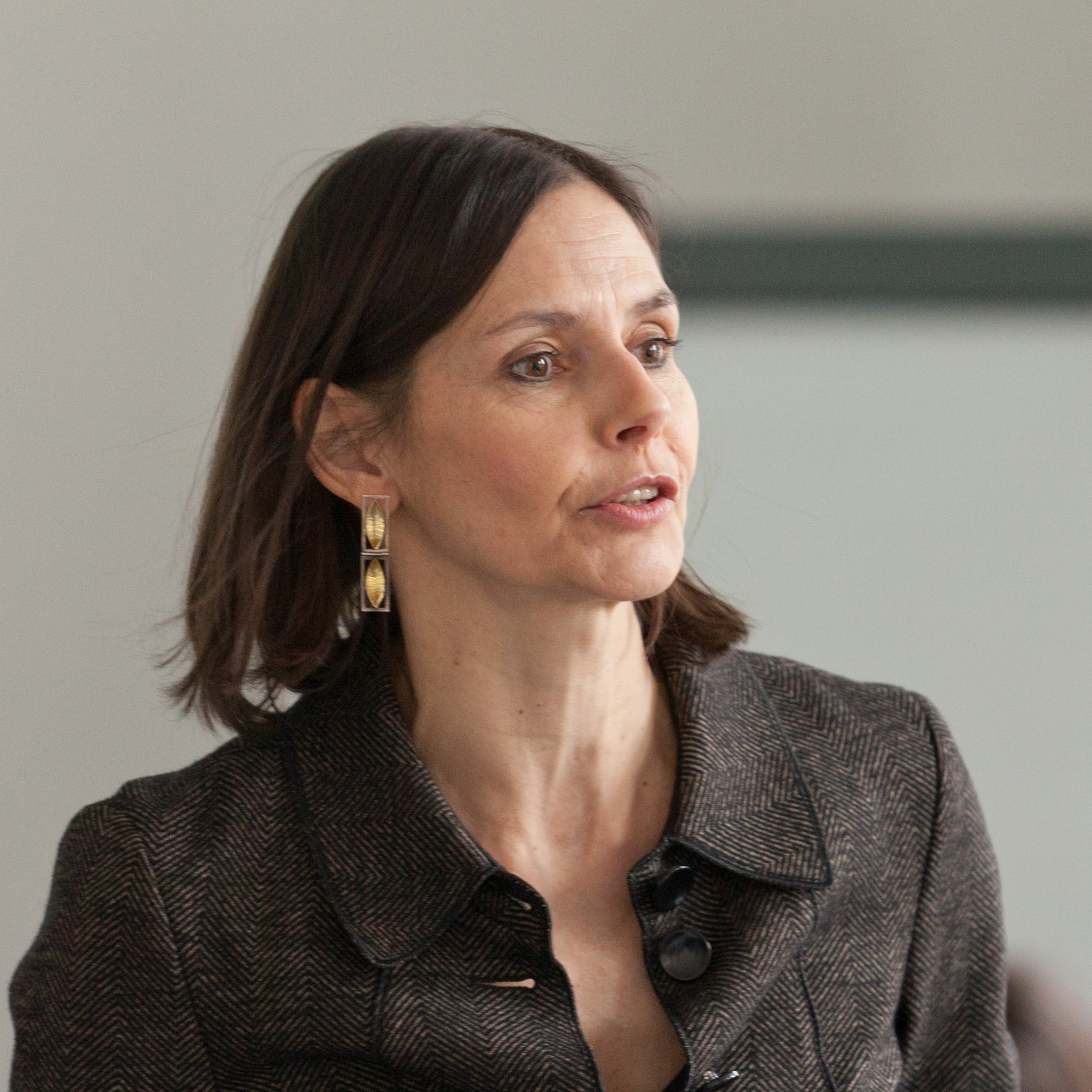 Hertie SchoolA learning journey towards social innovation – Johanna MairJohanna Mair guides Executive MPA students on a quest to discover the secret to creating impact.
Learn more about the seminar: https://www.hertie-school.org/en/socialinnovationseminar/
Understand today. Shape tomorrow.
https://www.hertie-school.org2018-03-1303 min
Hertie SchoolA learning journey towards social innovation – Johanna MairJohanna Mair guides Executive MPA students on a quest to discover the secret to creating impact.
Learn more about the seminar: https://www.hertie-school.org/en/socialinnovationseminar/
Understand today. Shape tomorrow.
https://www.hertie-school.org2018-03-1303 min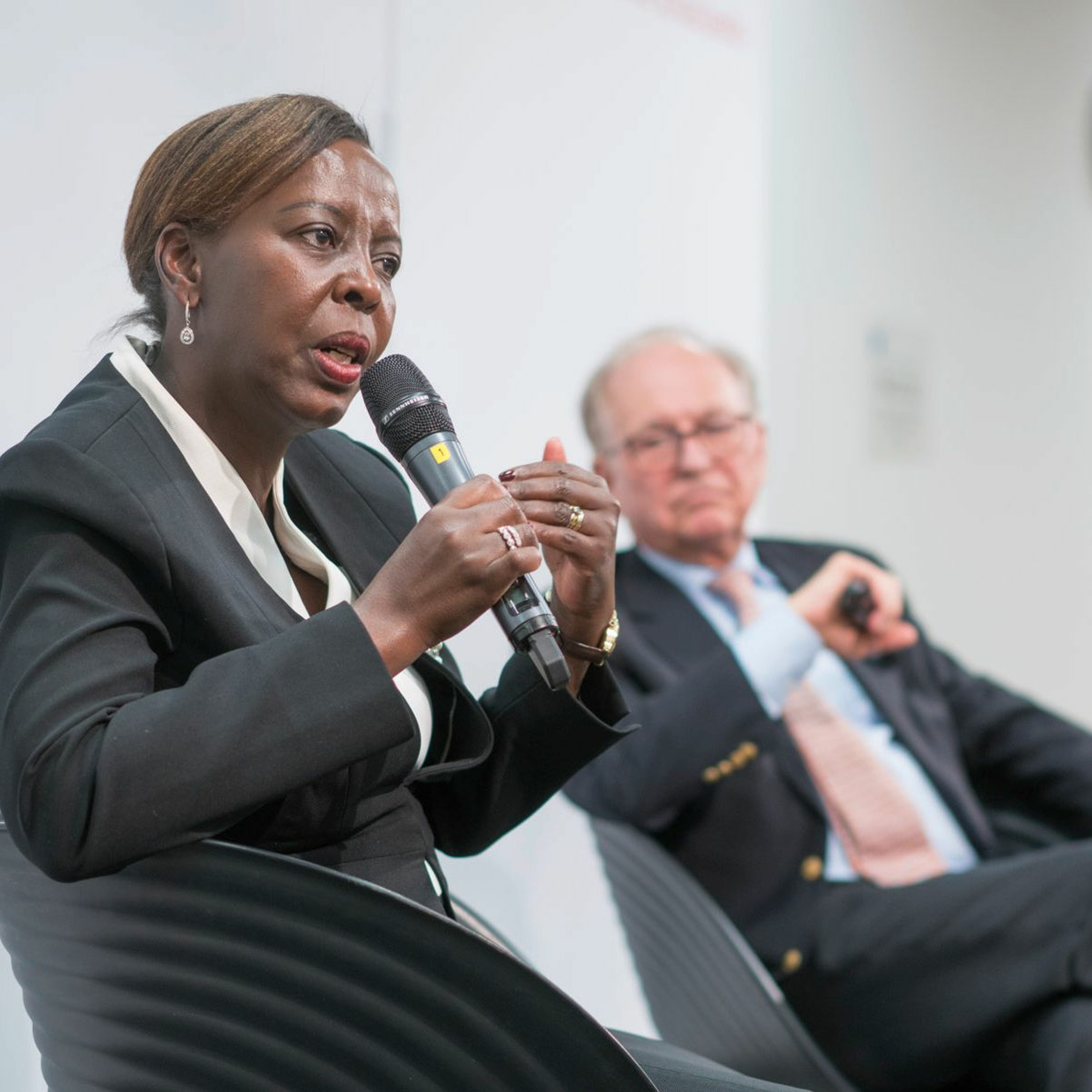 Hertie SchoolPost-MSC 2018 discussion: Louise Mushikiwabo & Wolfgang IschingerIn a post-Munich Security Conference discussion held at the Hertie School of Governance in Berlin on 19 February, Wolfgang Ischinger asked Louise Mushikiwabo, Minister of Foreign Affairs of the Republic of Rwanda, about the possibility of permanent UN Security Council representation for Africa.
Understand today. Shape tomorrow.
https://www.hertie-school.org
*This audio highlight has been edited for a podcast format.2018-02-2606 min
Hertie SchoolPost-MSC 2018 discussion: Louise Mushikiwabo & Wolfgang IschingerIn a post-Munich Security Conference discussion held at the Hertie School of Governance in Berlin on 19 February, Wolfgang Ischinger asked Louise Mushikiwabo, Minister of Foreign Affairs of the Republic of Rwanda, about the possibility of permanent UN Security Council representation for Africa.
Understand today. Shape tomorrow.
https://www.hertie-school.org
*This audio highlight has been edited for a podcast format.2018-02-2606 min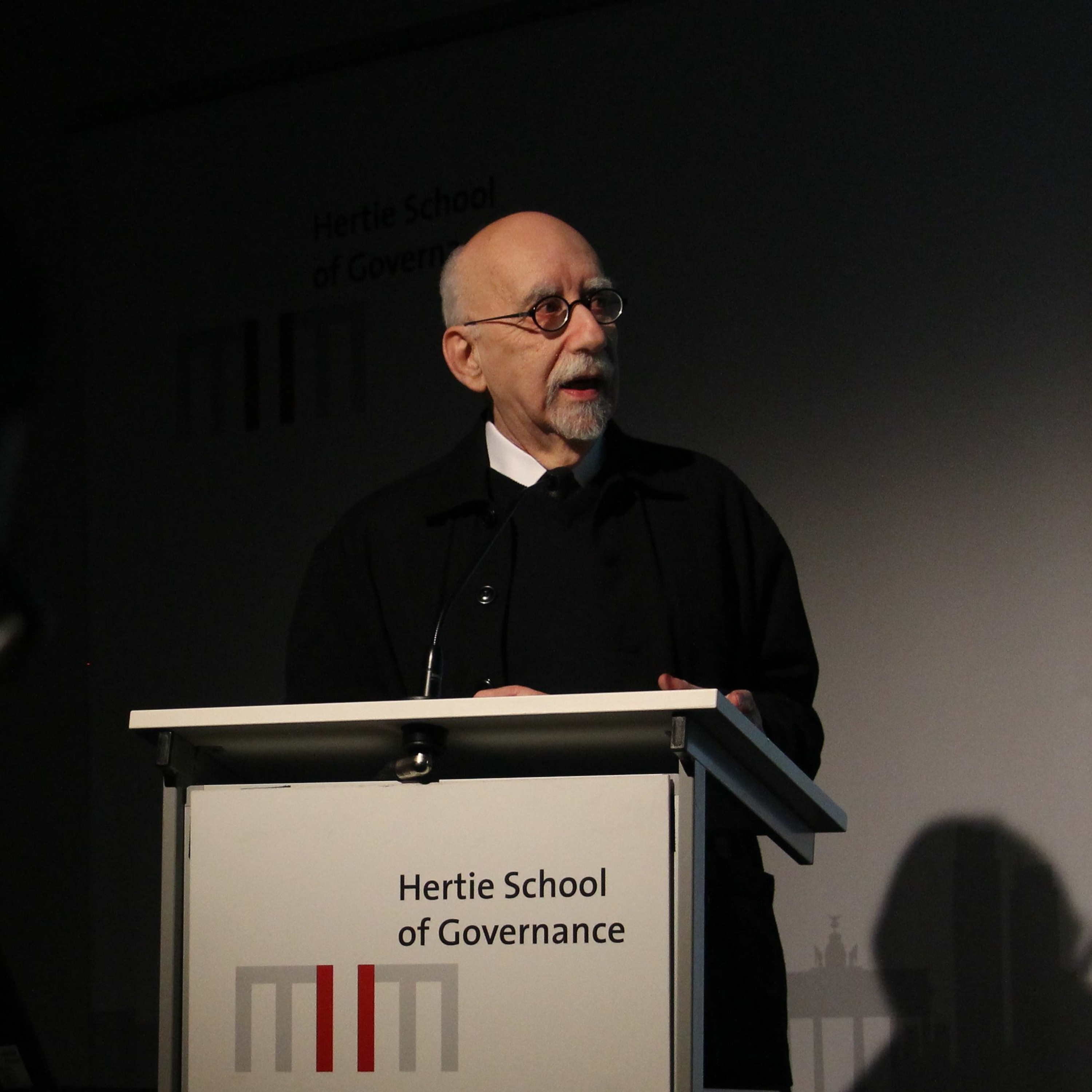 Hertie SchoolIra Katznelson – Who is the people?Ira Katznelson delivered this lecture*, "Who is the people? Reflections on popular sovereignty," on 8 February at the Hertie School of Governance in Berlin. The event was co-organised with Bard College Berlin with the generous support of the American Social Science Research Council.
More information can be found here: https://www.hertie-school.org/en/events/event-previews/event-previews/whoisthepeople/
Understand today. Shape tomorrow.
https://www.hertie-school.org
*This lecture has been edited slightly for a podcast format.2018-02-201h 03
Hertie SchoolIra Katznelson – Who is the people?Ira Katznelson delivered this lecture*, "Who is the people? Reflections on popular sovereignty," on 8 February at the Hertie School of Governance in Berlin. The event was co-organised with Bard College Berlin with the generous support of the American Social Science Research Council.
More information can be found here: https://www.hertie-school.org/en/events/event-previews/event-previews/whoisthepeople/
Understand today. Shape tomorrow.
https://www.hertie-school.org
*This lecture has been edited slightly for a podcast format.2018-02-201h 03